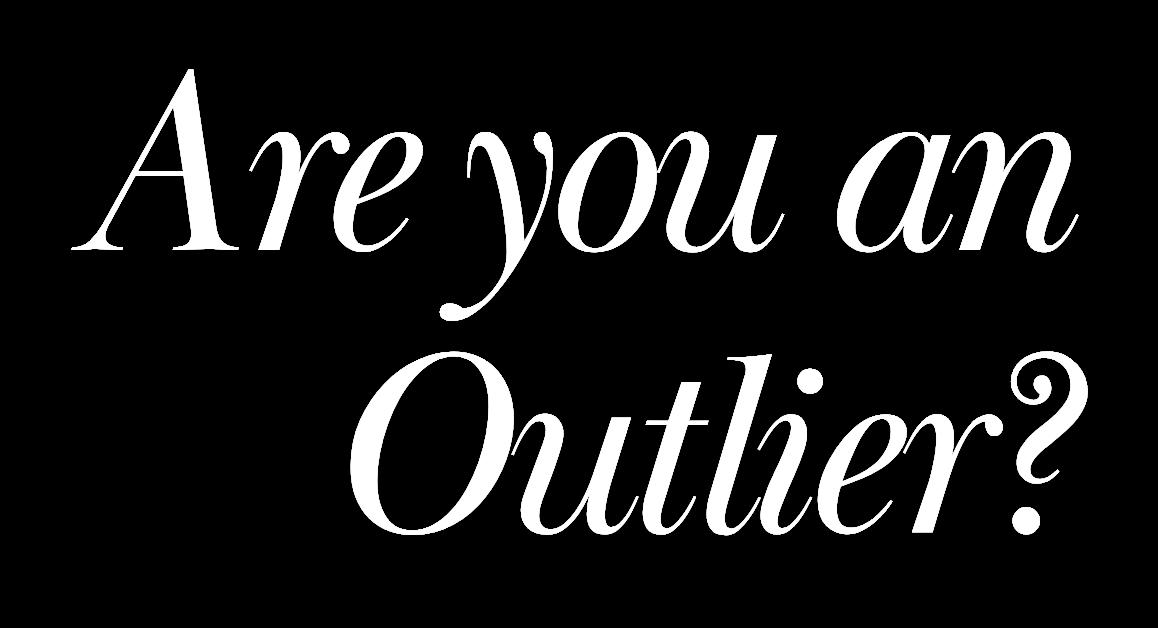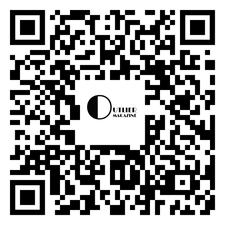


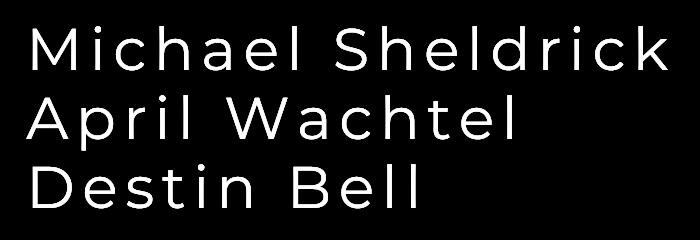

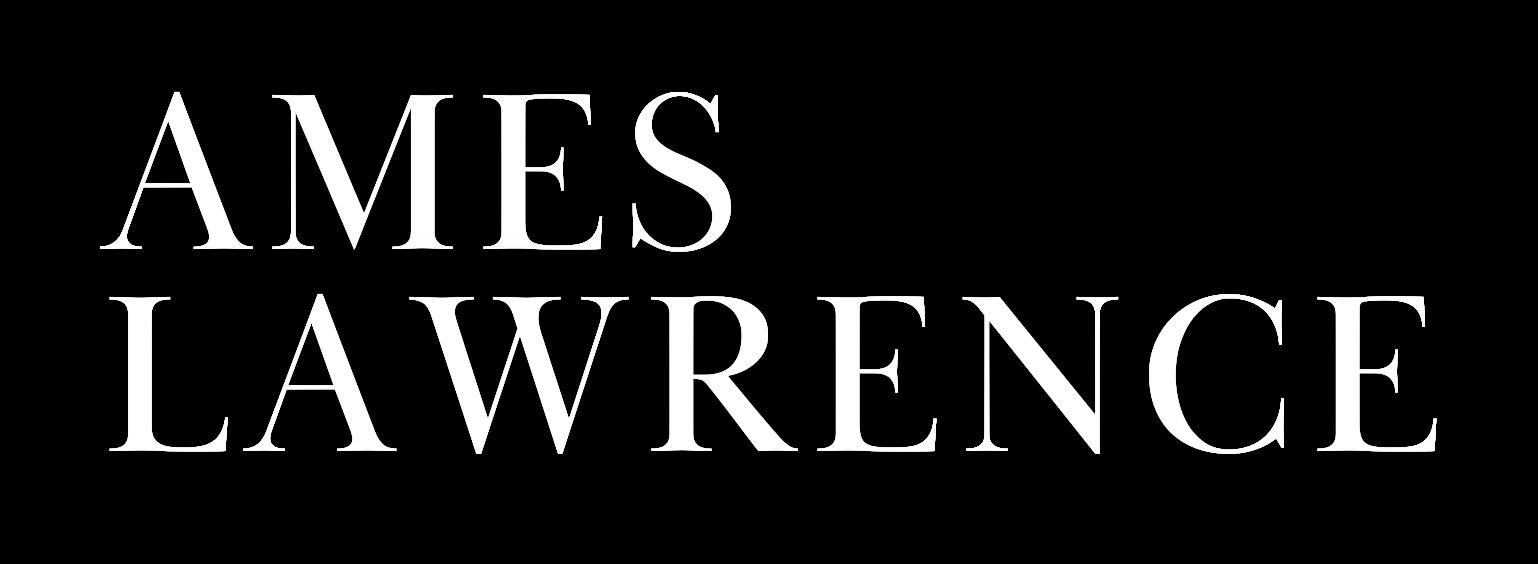

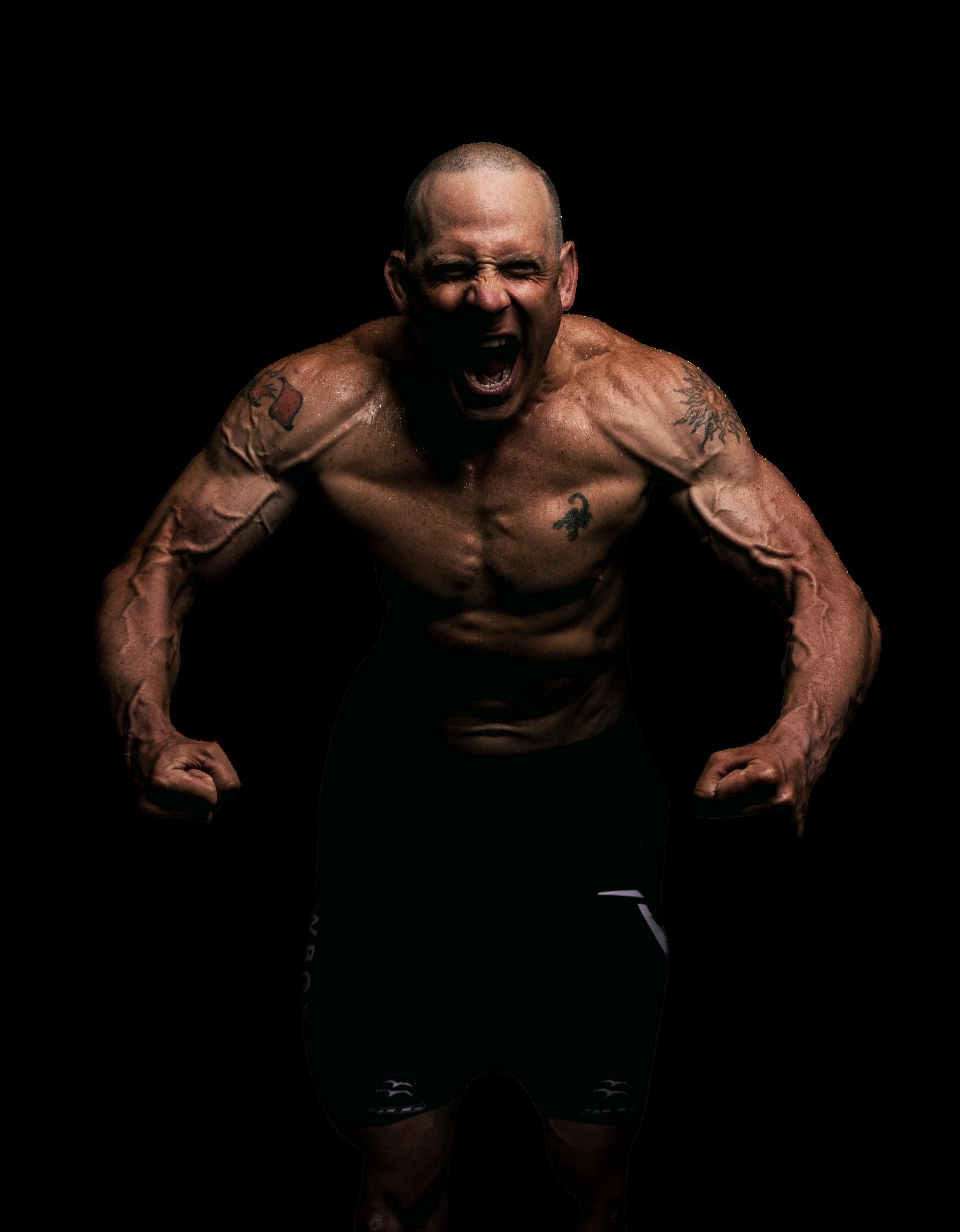

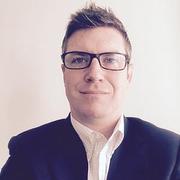
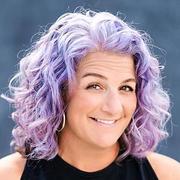
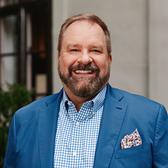
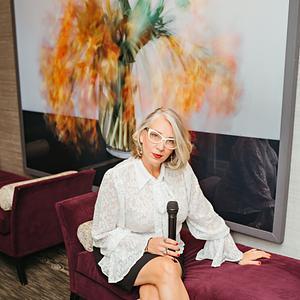

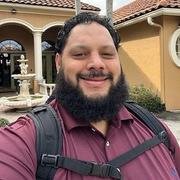
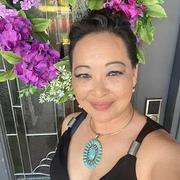

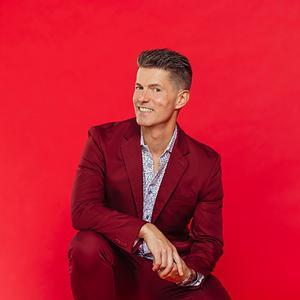
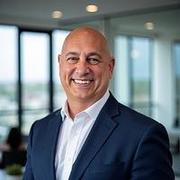
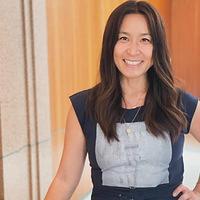
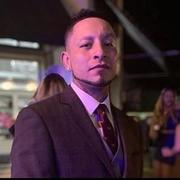
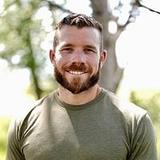
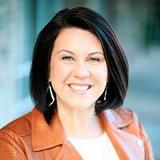

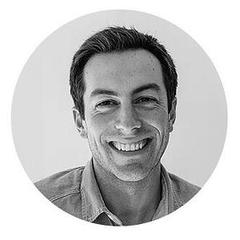
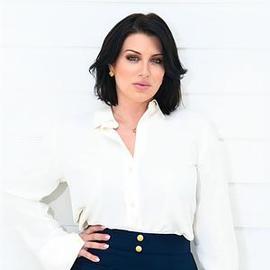
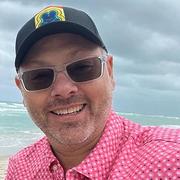
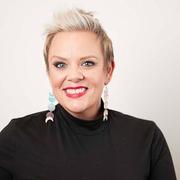
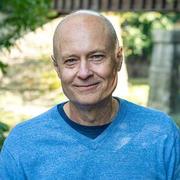
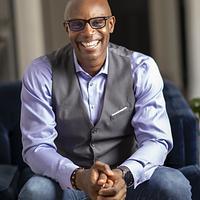

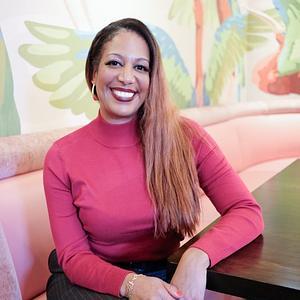

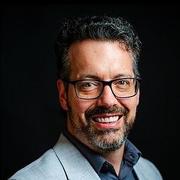
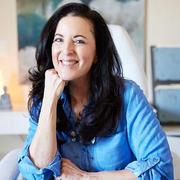
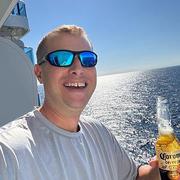
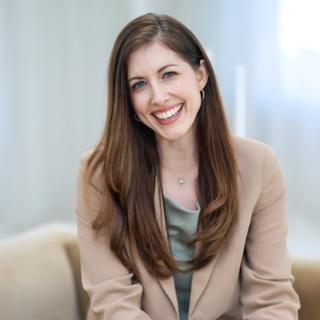
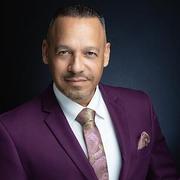
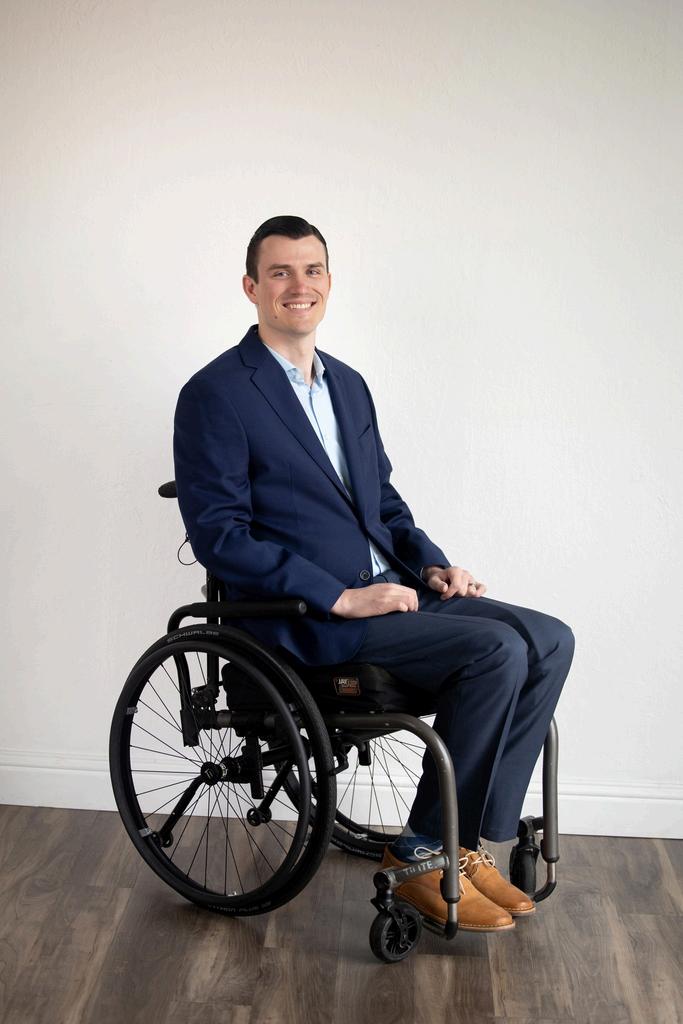
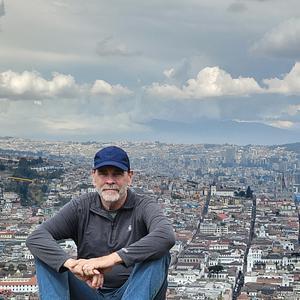
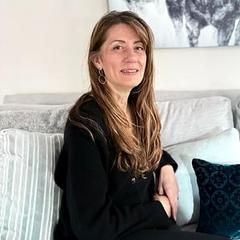
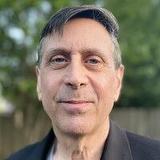

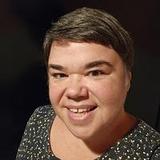
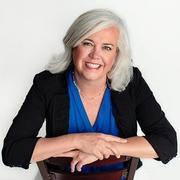

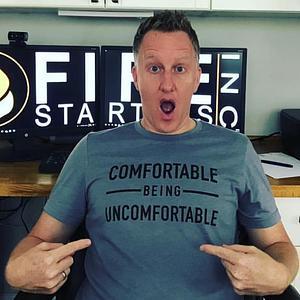

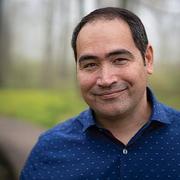


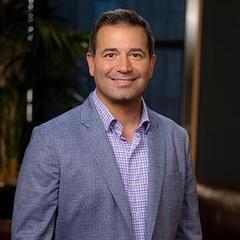

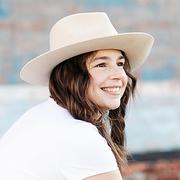
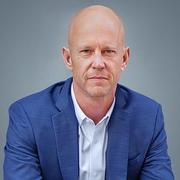
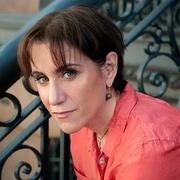
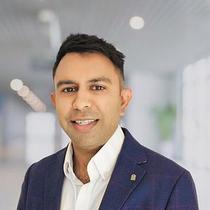

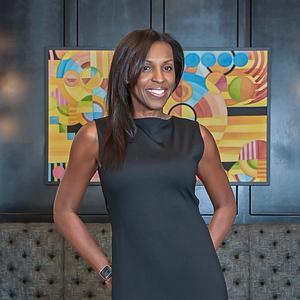
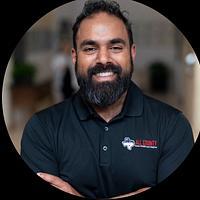
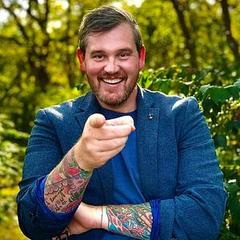


































































05 LETTER FROM THE PUBLISHER Celebrating Trailblazers
06
OUTLIER MAGAZINE STAFF SPOTLIGHT
Jess Vigorito, Chief Marketing Officer
08 EXCLUSIVE FEATURE A Love Letter to My Mom
22 Every Innovation Can Add Value or Risk
FRONTIER MINDS: APRIL WACHTEL
12
FRONTIER MINDS: MICHAEL SHELDRICK
There’s Always Something That Can Be Done
30
FRONTIER MINDS: DESTIN BELL

Become More than the Average

40 COVER STORY: JAMES LAWRENCE
Trailblazing the Impossible
54
FUEL FOR YOUR OUTLIER MINDSET
Hand-Selected Nuggets for Your Noggin
56
FEATURE STORY: WHAT REMAINS IS TODAY
Rebuilding life, one intentional day at a time
64
BONUS FEATURE: MEGAN KLEIN
Building Boldly Through Uncertainty but with Passion
62 80
‘EM OUT(LIERS)...
Follow these outliers who are redefining what it means to truly live an outlier life
OUTLIER POWERHOUSES
Thought-provoking quotes from real outliers



Trailblazers are individuals who dare to venture beyond the known, challenge conventions, and redefine what is possible. Their journeys, marked by resilience and innovation, inspire others to pursue greatness in their own lives
The Power of Trailblazers like James Lawrence, the Iron Cowboy, exemplify the courage to attempt what many deem impossible Lawrence’s feats completing 50 full-distance triathlons in 50 states over 50 consecutive days, and later conquering 101 Ironman-distance triathlons in 101 days demonstrate not just physical endurance, but an extraordinary mental fortitude that many consider the greatest human endurance achievement in history. His story shows that the path of a trailblazer is often met with skepticism, even from experts and coaches, yet unwavering self-belief and support from loved ones can turn doubt into history-making achievement
Celebrating trailblazers means recognizing the collective effort behind individual triumphs Lawrence’s journey was sustained by his family, grassroots supporters, and volunteers across the country His own words, “Nothing great is ever accomplished on your own”, remind us that trailblazing is rarely a solitary act. Communities that rally behind visionaries help transform bold dreams into reality.
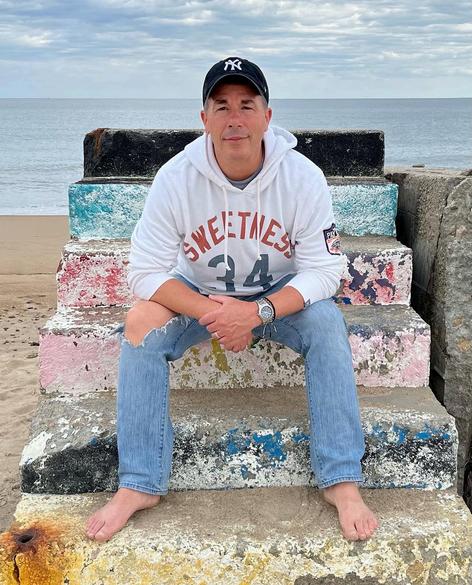
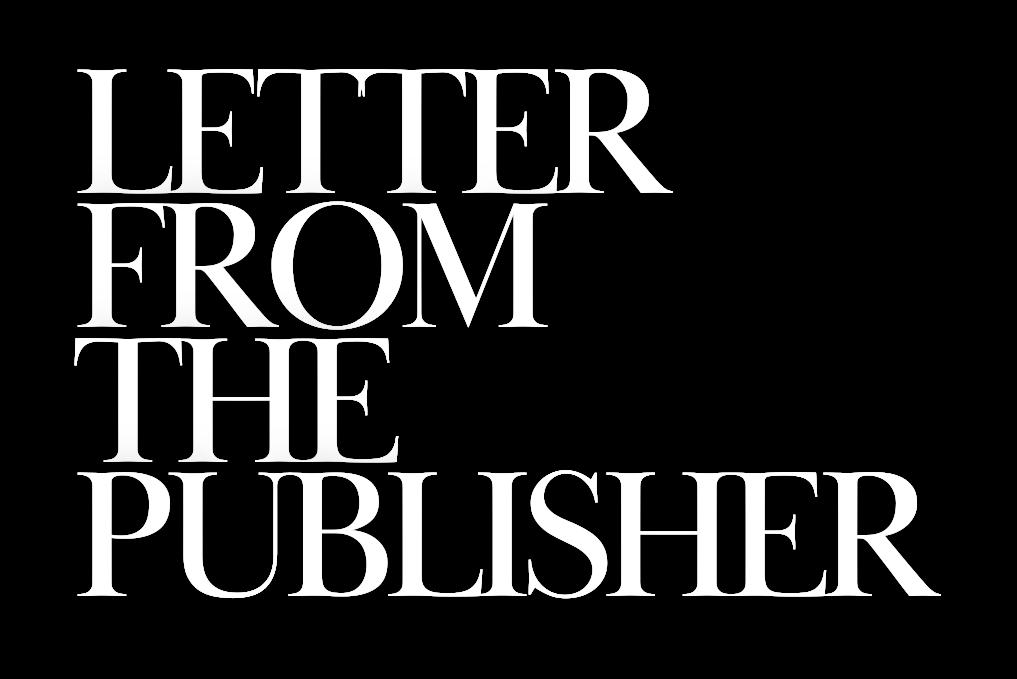
Trailblazers inspire others to confront their own limits. Lawrence’s challenges were not just personal milestones; they raised awareness for causes like childhood obesity and sex trafficking, showing how individual ambition can serve a greater good. By sharing their struggles and lessons, trailblazers provide a roadmap for others to persist through adversity and redefine their own “impossible”
The celebration of trailblazers is a celebration of human potential Their stories encourage us to embrace discomfort, persist through setbacks, and continuously seek new frontiers As Lawrence teaches, everyone’s “hard” is different, but showing up and striving forward is what makes progress possible.
Keep blazing trails, Outliers!
Scott MacGregorPublisherandEditor-in-Chief

As founder of Rising Phoenix Media and Marketing, I help brands rise with story-first strategies that feel as good as they perform!
My tagline is "Crafting Clarity Amid Chaos," and that’s what I do! I turn chaos into clarity and help siloed teams become growth-fueled partnerships.
As a marketing leader, I bridge the gap between sales and marketing, always with one eye on the data and the other on the humans behind it
I’m all about real talk I build community through conversations rooted in authenticity, vulnerability, and growth
I’m a ghostwriter and LinkedIn Live host, lifting executive voices and telling the stories that usually stay behind the curtain. Strategy, heart, and honesty are my signature. I believe in showing up fully. Just be yourself!
Also: podcast host. Creative writer. Mom of six (yes, six!), including kiddos welcomed through foster care and adoption They’re a big part of my why!
Find me on LinkedIn:
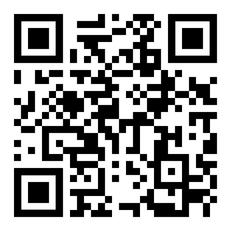



As the Chief Marketing Officer (CMO), I lead strategy, build community, grow our subscriber base, and hunt for co-branding magic I even designed our Times Square billboard (what a surreal moment!). But at the heart of it all, I’m a storyteller.
I amplify the voices and vision of people who dare to do things differently Whether it’s launching campaigns, writing copy that makes people feel, or connecting dots others miss, I thrive in the messy, meaningful middle of creativity and execution.
Ihavemusicalecholalia.It playsinmyhead24/7!I’m "polyjamorous",but especiallylovealtrock, metal,post-punk,and EDM.Myhappyplace? EDCOrlando!����




My mom used to say, “As long as libraries exist, there’s no excuse for ignorance.” That line is etched in my bones. With the world’s knowledge at our fingertips, it feels more true than ever.
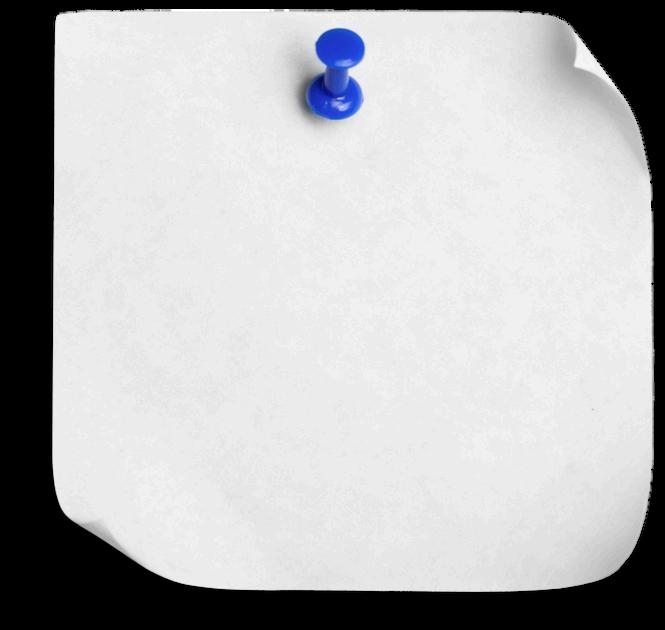
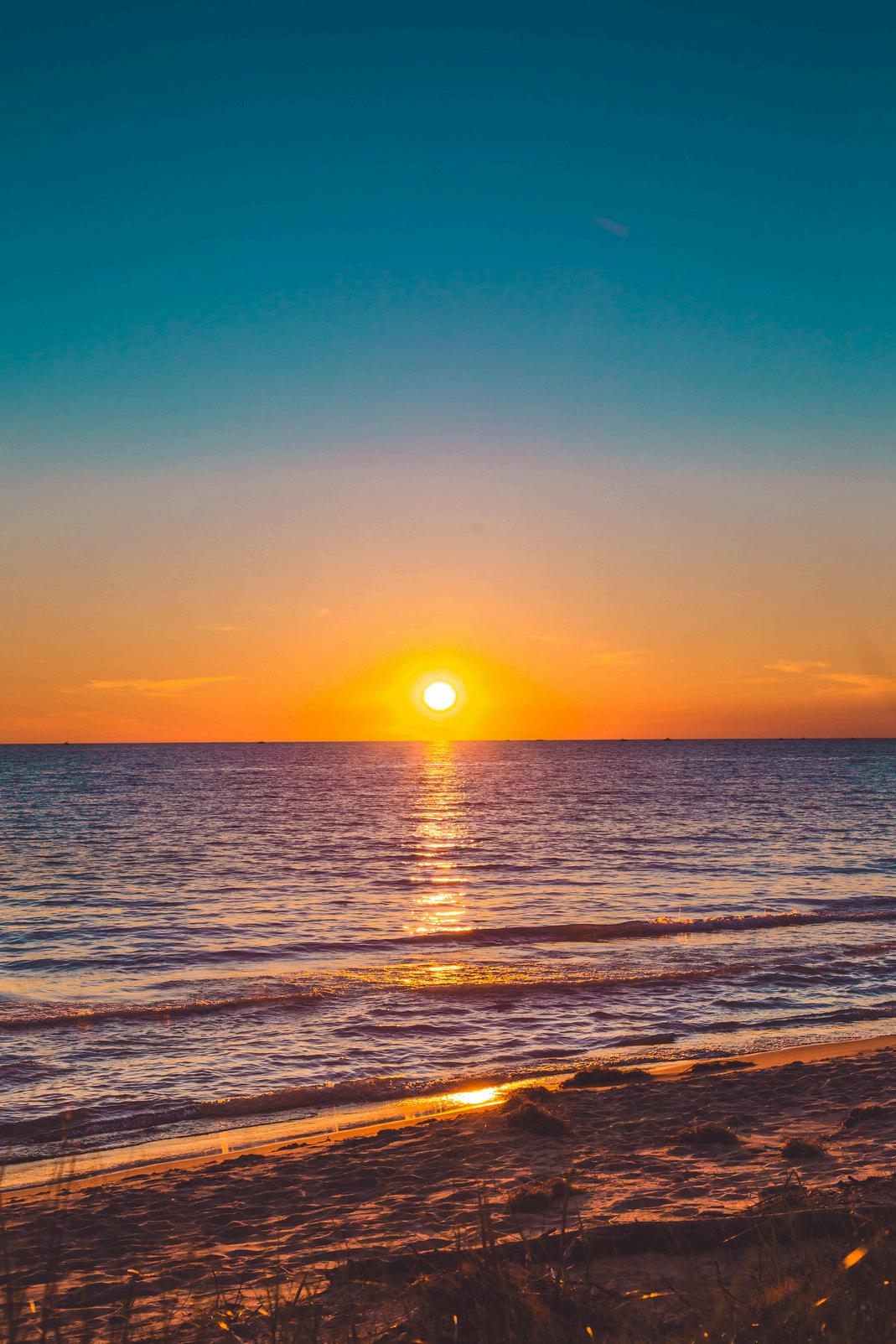

I’m insatiably curious and a lifelong learner who’s never content to coast. I’m the one listening to podcasts back-toback, scribbling notes in book margins, signing up for courses, always asking, “What else can I learn to do this better?”

To me, being an outlier is about evolving, pushing boundaries, and growing on purpose I don’t chase perfection, but I chase daily progress That path can be tough, but it’s what lights me up!
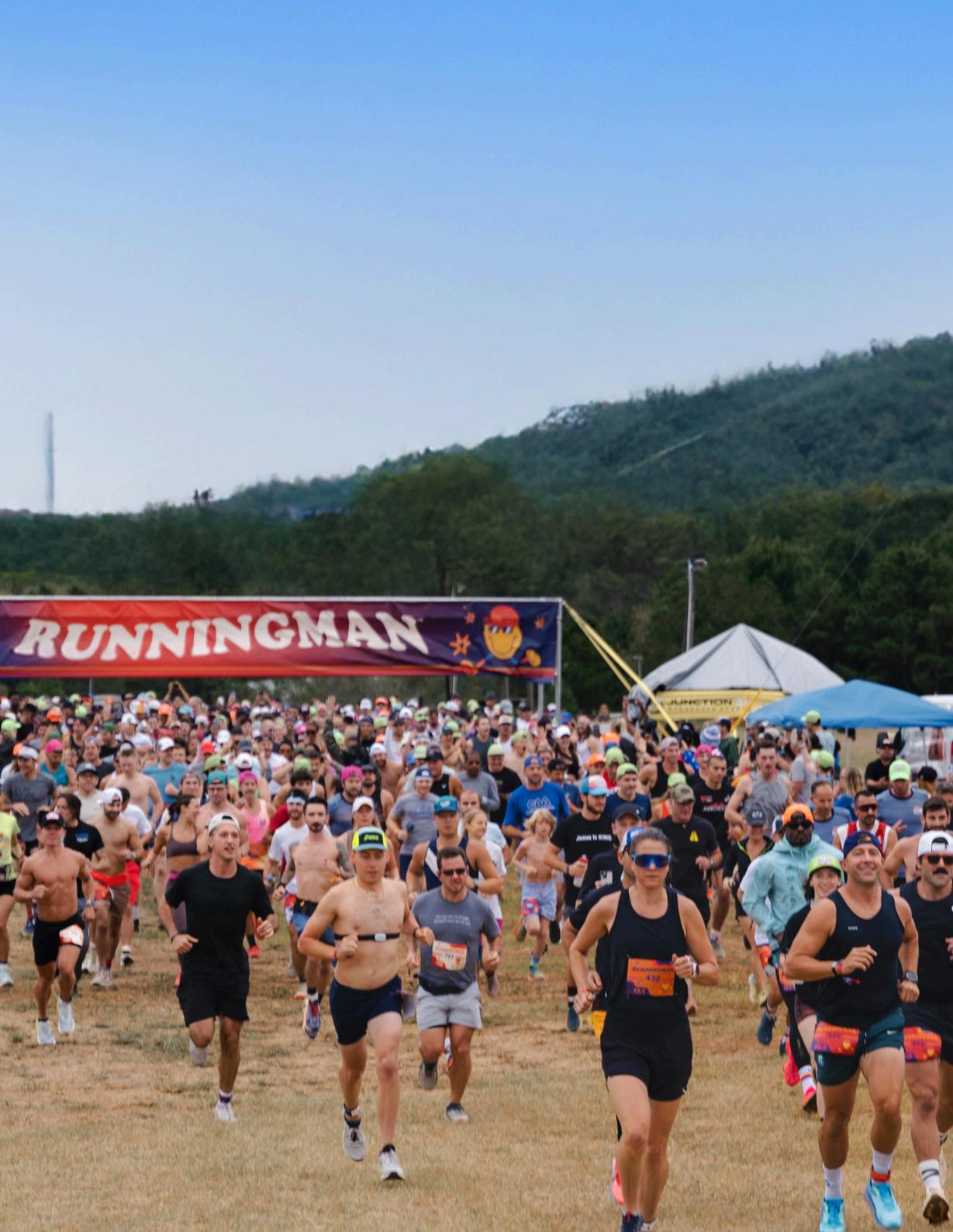


By Marnie Schneider

Some people write memoirs. Some people build monuments. Me? I write this a love letter disguised as a magazine story about the woman who made me, shaped me, and, to this day, whispers strength into my soul when I feel like falling apart. My mom wasn’t just amazing. She was legendary.
Before she was “Mom,” she was Susan Tose Spencer a trailblazer, a historymaker, and a force that refused to be boxed in The first woman ever to serve as vice president and legal counsel of an NFL team The first and only woman in

history to serve as the General Manager of an NFL franchise the Philadelphia Eagles. The daughter of Leonard Tose, sure, but no one’s shadow ever dimmed her light She was a hurricane in heels, equal parts grit and grace, and I was lucky enough to grow up in her orbit
Didn’t
— She Danced on the Shards
My mom walked into rooms she wasn’t “supposed” to be in and didn’t just demand a seat at the table she ran

the damn meeting. When the sports world said, “Not you,” she smiled, rolled up her sleeves, and rewrote the rules. She negotiated contracts, made roster decisions, and did it all in lipstick and pearls She wasn’t trying to prove she could hang with the men she knew she could The question was whether they could keep up with her
But what made her even more rare? She never lost her humanity in the hustle She cared. Deeply. About people. About fairness. About doing things the right way, even when it was the harder way.
And Let’s Be Real — Her Beauty Was Mythological
There’s no other way to say it She was


stunning People would stop in their tracks Think Greek goddess meets classic movie star But she didn’t lean on her beauty it just showed up with her, like a crown she wore so effortlessly She could rock a ballgown or a power suit, and either way, you’d stare and say, “Who is that?” That was my mom.
But the real glow came from the inside. That kind of magnetic, unshakable confidence and kindness that made people feel better just being near her. She could lift a room with her smile and then drop everyone to the floor laughing with her world-class sense of humor
My mom’s wit? Sharper than a diamond blade Quick, dry, clever and unmatched She could turn any situation into a comedy bit, often with just a look She had the timing that comedians dream of, and a delivery that made
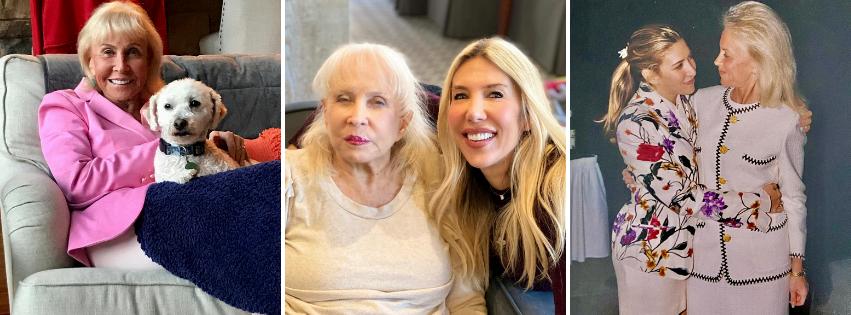
punchlines land like lightning Even in the toughest moments, she found a way to make us laugh Because that’s who she was the kind of woman who could hold your hand through heartbreak and still find something to smile about.
And her laughter? It was contagious. You’d hear it across the room and know everything was going to be okay.
That’s the lesson I carry with me every day. My mom taught me that how you show up matters. But just as important? That you show up. When people count on you When it’s inconvenient When it would be easier to stay home or stay quiet She never flaked Never faded Never wavered
She showed up In boardrooms In courtrooms In classrooms In our kitchen In every moment that mattered With style. With strength. With a presence you couldn’t ignore.

She wasn’t just my mother she was my blueprint My cheerleader My role model My reminder that no matter what’s going on in your life, you get dressed, you show up, and you bring it.
Sure, there were articles written about her. TV segments. Honors. But her true legacy isn’t in what people wrote about her. It’s in what she wrote into us her family, her friends, the people she
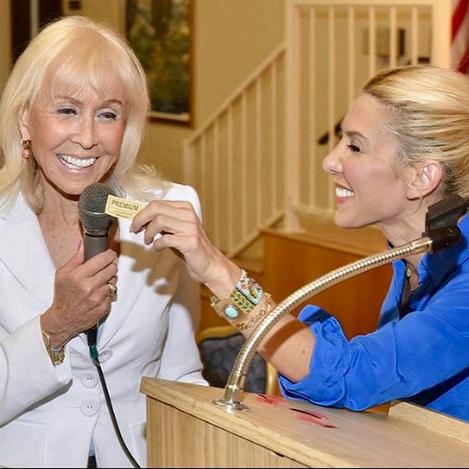
mentored, supported, and made feel seen. It’s in every moment I look at my own children and think, What would Nana do?
She would lead with love. She would laugh through the hard stuff. She would wear lipstick even on laundry day And she would never let anyone ever tell her who she could be

So yes, this is a love letter To my hero My North Star The most incredible woman I’ve ever known
Susan Tose Spencer.
An icon A beauty A pioneer A mom Mine. And I’ll spend the rest of my life trying to make her proud and maybe, if I’m lucky, make people feel half as special as she made me feel every single day.
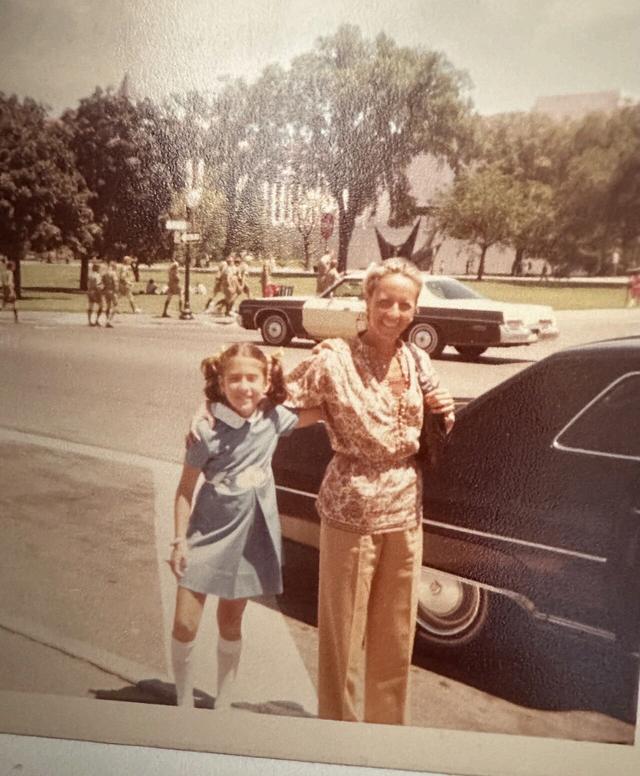

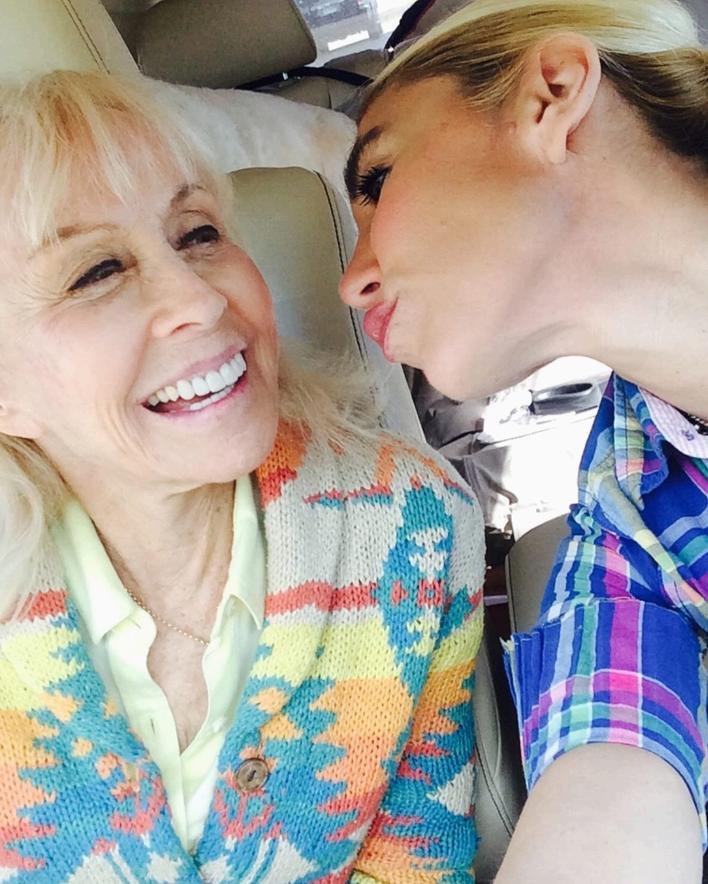

Co-Founder of Global Citizen, Author, Speaker, Board Member
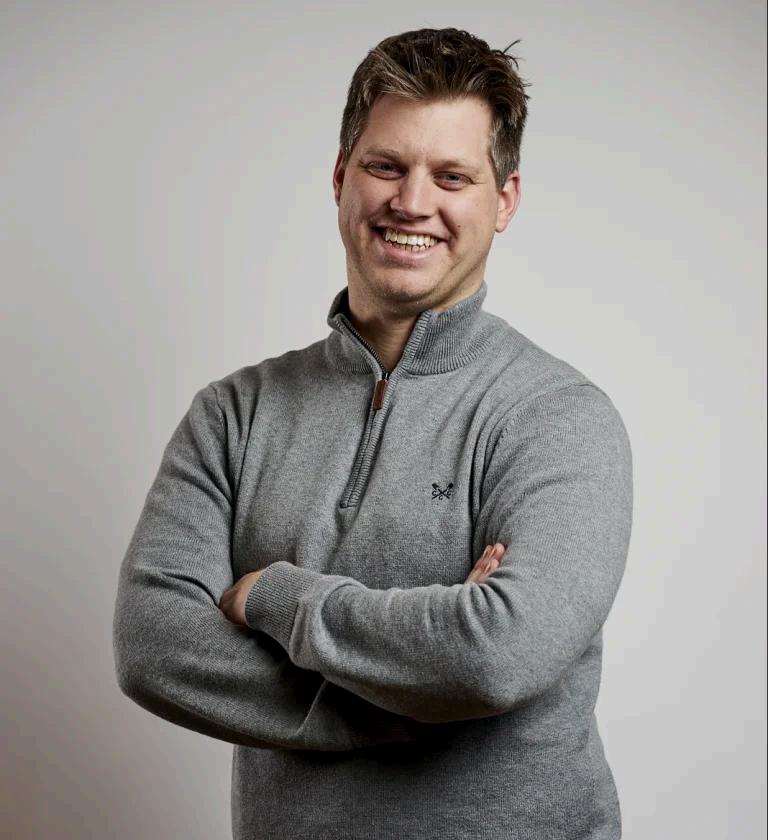

Q:WhatinspiredyoutocofoundGlobalCitizen,andwhat personalexperiencesshaped yourcommitmenttoending extremepoverty?
Growingup,Ilearnedfirsthandhow powerfulitiswhensomeone genuinelybelievesinyou.Earlyin highschool,Iwasstruggling academically,butateachernamed Mr.Burnsawpotentialinmewhen nobodyelsedid,completely changingmytrajectory.Thatpivotal momentshapedmybeliefinhuman potential especiallyformillions aroundtheworldwhoaretrapped
bypovertyandlackofopportunity. Myfirstfundraisingeffortraised $1,000throughaquiznighttobuild schoolsinPapuaNewGuinea.But tripstoIndia,TimorLeste,and Bangladeshtaughtmecharityalone wasn’tenough.Thesystemicnature ofpovertyrequiredsystemic solutions.Thatrealizationledme directlytoco-foundingGlobal Citizen,drivenbyabeliefthat millionsofcitizenactionstogether couldchangepoliciesandunlock systemicimpact.
Q:InwhatwayshasGlobal Citizenbeenatrailblazer?
AtGlobalCitizen,wegrappledwith howtobuildamovementof engaged,informedcitizens committedtoendingextreme poverty Ourbreakthroughcamewith thelaunchofaninnovativeappin 2012,coincidingwiththeveryfirst GlobalCitizenFestival.Themodelwas simpleyetpowerful:bydownloading theappandtakingactions, supporterscouldearnpointsfor festivaltickets.Socialmedia,the generativeAIoftheearly2010s, allowedustoamplifytheseactions dramatically,pressuringbusinesses andgovernmentstomake
“NO ONE CAN DO EVERYTHING, BUT EVERYONE CAN DO SOMETHING.”
-MICHAELSHELDRICK
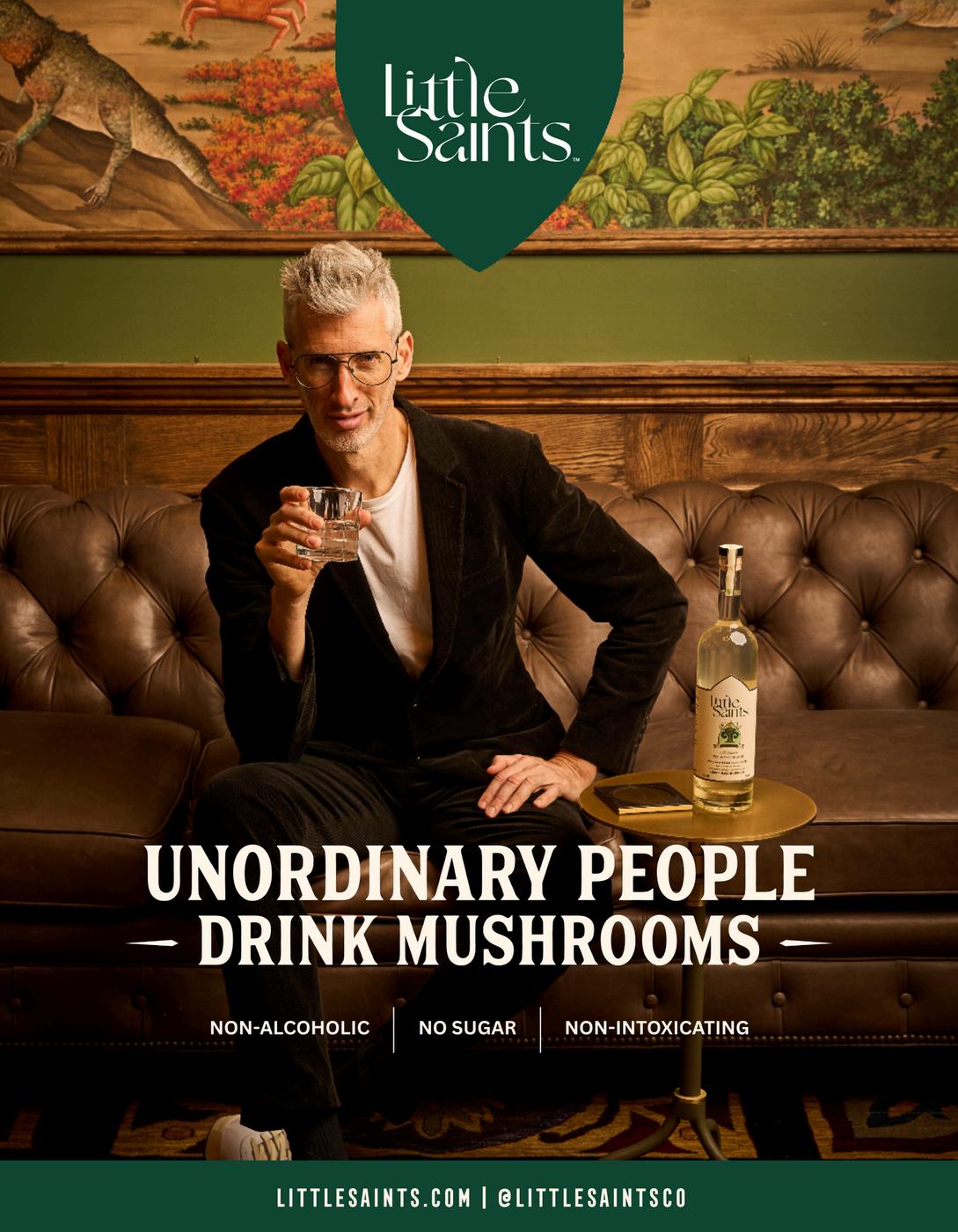
meaningful commitments. In the decade since, more than 40 million citizen-led actions have unlocked over $49 billion, positively impacting the lives of one billion people worldwide. Today, we have grown to over 12.5 million Global Citizens, and our new 5-year goal is to expand this community to 50 million by 2030, driving over 650 million lifesaving interventions. This year, we're bringing the Global Citizen Festival to the Amazon region in Brazil for the first time to address deforestation, and next year we'll produce the halftime show for the FIFA World Cup to mobilize resources aimed at halving the number of children globally who cannot read or write.
Q:Lookingback,which advocacycampaignareyou mostproudof,andwhy?
It'shardtopickafavorite,butone particularlymemorablecampaign
was our work on girls' education in South Africa at the 2018 Global Citizen Festival: Mandela 100. That night, we successfully urged President Ramaphosa, in support of local advocates, to publicly commit to providing significant funding for free period products in schools, thereby addressing one of the most overlooked yet crucial barriers to girls' education Practically, in the years since, this commitment has meant ensuring that over four million girls would no longer have to miss school due to something as fundamental as menstrual hygiene Witnessing the young advocates spearheading the campaign reinforced my belief in the power of partnership, leveraging the strengths of others, asking for help, and the essential realization that creating meaningful change often requires working alongside those with whom you may not always agree

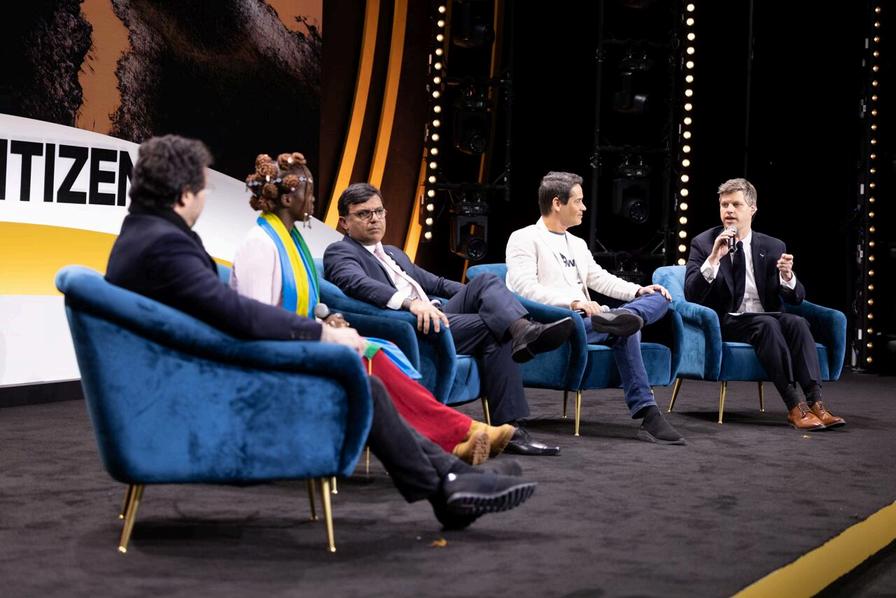
Q:Howdoyoumeasurethe real-worldimpactofGlobal Citizen'scampaignsand initiatives?
Inmybook,'FromIdeastoImpact,'I describethroughtheconceptof'the Implementer'howimportantitisto clearlytrack,monitor,and independentlyverifycommitments toensuregenuineimpact AtGlobal Citizen,weappliedtheselessonsby partneringwith PricewaterhouseCoopers(PwC)to developapracticalframeworkto verifyover$40billionin commitments.Thisapproach enablesustoachieveprecise, measurableresults,suchassecuring funds,implementingpolicychanges, deliveringvaccines,educating children,orprotectingforests.
By utilizing tools like Salesforce for tracking, we maintain transparency and credibility, clearly demonstrating our progress and ensuring that the commitments we secure genuinely improve people’s lives.
Q:Whataresomeofthe biggestchallengesyou've facedinadvocatingforpolicy change,andhowhaveyou overcomethem?
Oneofthebiggestchallengesin advocatingforpolicychangeis navigatingdisagreementsand collaboratingwithindividualswhose viewsmaydifferfundamentallyfrom yourown InarecentTEDxtalk,I discussedthecriticalimportanceof partneringwithunlikelyalliesto
Mydailyroleinvolvesworkingclosely withgovernmentofficials, policymakers,andcommunity leaderstofindpracticalsolutionsto bigproblems.Recently,IvisitedPará stateintheBrazilianAmazon,where recentcutsinforeignaidhavehada achievearealandlastingimpact.A particularlyvividexamplewas workingwithaUS Senatorwhose stanceonwomen'shealthdiffered frommine,butwhosesupportwas crucialtopassinglandmark biodiversitylegislation.Initially,this collaborationfeltdeeply uncomfortableandevenrisked reputationalharmatthetime,but thepracticalresult asignificant advanceinenvironmentalpolicy underscoredthenecessityof engagingacrossdivides. Overcomingthesechallengesmeans choosingpracticalsolutionsover ideologicalpurity,reachingoutto unexpectedpartners,andstaying focusedonachievingmeaningful outcomesratherthangetting sidetrackedbytemporary disagreements.It'sadifficultbut necessarypathforachievingchange andistheonlyrealwayforward.
significantimpactonlocal communities.Despitethese setbacks,localleadersImetwith explainedthatthereareplentyof entrepreneurialopportunitiesto protecttheforestandhelppeople earnagoodlivingbyselling sustainableproductsfromthe Amazon.Forinstance,wediscussed withentrepreneurslikeJohn GoedschalkfromBioTarahow addingjustasinglegramofnative AmazonianTucumãbutterto everydayproducts,suchasbarsof soap,couldsupportthousandsof families,createlocaljobs,and safeguardvastareasofforest.To highlightthesesolutions,werecently announcedtheGlobalCitizen FestivalAmazonia,takingplaceon November1,featuringrenowned BrazilianartistssuchasAnitta,Seu Jorge,andGabyAmarantos,
Q:AsChiefPolicy,Impact,and GovernmentAffairsOfficer, whatdoesyourday-to-day roleinvolve,andhowdoyou balanceadvocacywithpolicy work?
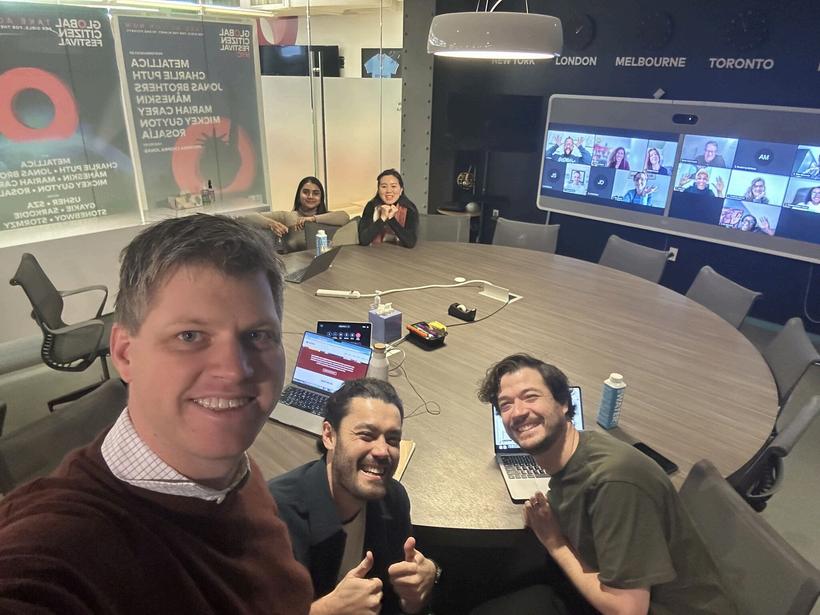
togetherwithColdplay'sChris Martin.Thiscampaignaimsto encouragebusinessesand philanthropiststocontribute$1 billioninsupportofsuchinnovative solutions.
Q:Whatadvicewouldyou givetoaspiringpolicy entrepreneurslookingto makearealimpact?
Readmybook orlistenonAudible; I'mtoldat1.6speed,youcanget throughitinunderfourhours!But seriously,aspiringpolicy entrepreneursshouldbenaively audaciousyetopentopartnership. AsIdiscussin'FromIdeastoImpact,' drivingrealchangerequiressetting clear,boldgoals likeSouthAfrica's successfulfightagainstperiod poverty,whichkeptfourmilliongirls inschool.Itinvolvesfindingunlikely allies,buildingbroadcoalitions,and understandingthepracticalsteps neededtoreachyourvision.Eleanor Rooseveltwiselysaid,“Thewayto beginistobegin,”remindingusthat takingthatfirststepisoftenthe hardestbutmostcrucialpartofthe process. Butevenwhenwefeelwe don'thavemuch,wecanlooktoour networksandrememberhow importantitistoaskforhelp.After all,noonecandoeverything,but everyonecandosomething.Finally,I dedicatemybooktomygrandma, whoalwaysremindedmetoavoid
worryingaboutwhatwecan't controlandinsteadfocusonwhat wecando.
Q:Howdoyouseethe landscapeofglobaladvocacy changinginthenextdecade, especiallywithrising polarization?
Oneofthemostsignificant challengeswefaceinglobal advocacytodayisrootedinadeep senseofpessimismandapathy, particularlyamongpeopleunderthe ageof55,asrecentstudiesfrom researchfirmGlocalitiesreveal Many peopletodayfeeltheiractionswon't makeadifference,leadingto frustrationandanger.Yet,there'sa cleardesiretoconnectandwork towardscommongoals
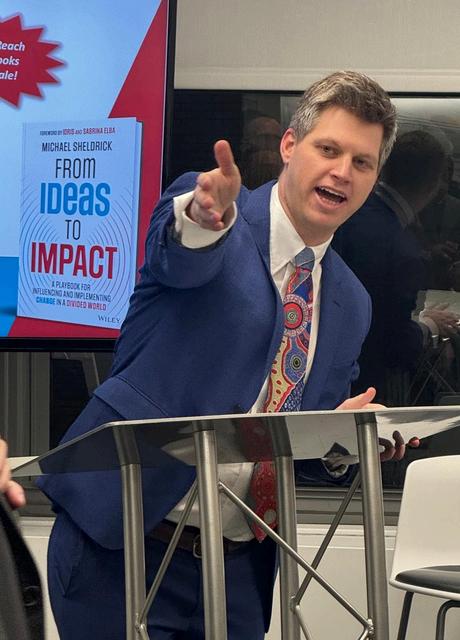




We’re changing that - one student at a time
LESS THAN 30% of foster youth graduate high school or earn a GED. This leads to unstable futures and limited opportunities
Our Approach:
✓ Individualized Tutoring
✓ Educational Advocacy
✓ Mentorship & Life Skills
✓ Emotional Support
✓ Program Expansion Through Community Support
With tailored supplemental education and compassionate guidance, we do more than fill academic gaps; we empower foster youth to believe in their future
info@fosteringheartsfl.org


AccordingtoMoreinCommonUS, 74%ofAmericanssaytheywantto workwithothersonsharedgoalsto improvetheircommunities,butonly 17%haveactuallydonesointhepast year.PlatformslikeGoodera, describedasthe"Airbnbof employeevolunteering,"illustrate howorganizedwaysforpeopleto collaboratecanbridgethisgap. Initiativeslikecommunitygardening projectscreatespaceswherepeople findconnection,healing,and purpose,demonstratingthepower ofcommunityaction.Inthenext decade,globaladvocacywill increasinglydependongiving peopleclear,practicalwaysto engagewithissuestheycareabout. Overcomingpolarizationwillrequire notjustinspiringstoriesbutalso organizedandaccessiblewaysfor
diversegroupstocollaborate,rebuild trust,andseetangibleimpactsfrom theirefforts.Ultimately,addressing thissenseofpowerlessnessiscrucial tomovingbeyondtoday'seraof division.
Q:Whatlessonsfromyour book,"FromIdeastoImpact," doyoubelievearemost criticalfordrivingchangeina dividedworld?
Oneoftheeightprinciplesoutlined inmybookisthepowerofsharing storiesofsuccess.Researchshows thathearingaboutothers'successes especiallyfromfriendsandfamily isoneofthebestwaystoinspire actionandovercomefeelingsof powerlessnessandlackoftrust.
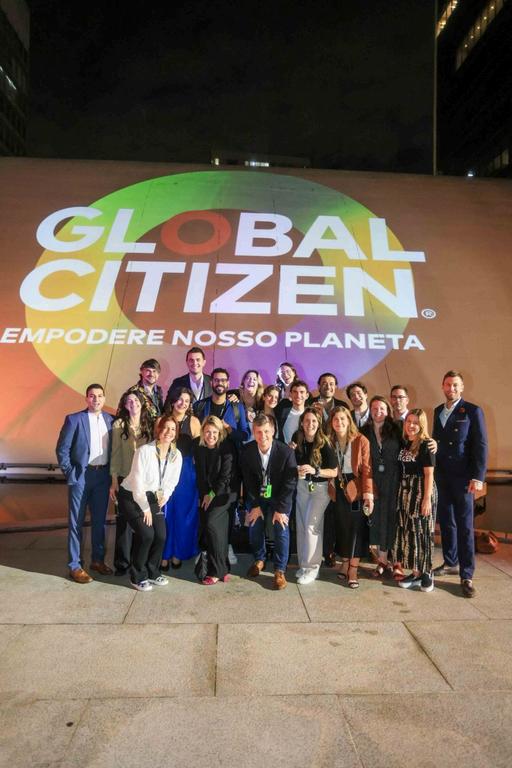
For example, the World Happiness Report recently found we often underestimate how trustworthy other people are highlighted by the surprising number of lost wallets returned to their owners. Real stories of impact, especially from people we know personally, can build our confidence in our ability to make a difference and in the power of working together. In other words, we can make a difference because we have made a difference. In my book, I share the powerful story of Len, a 105-year-old World War II veteran I
interviewed, and his incredible resilience in the face of overwhelming odds Reflecting on his experiences reminds me that today we have even greater opportunities available to us to make a positive impact If you've ever wanted to live a profoundly meaningful life, now is the time to do it. Our actions today will shape many lives in the future it’s up to us whether that impact is good or bad
As Len asked when faced with big challenges, will we 'give it a go' or not?
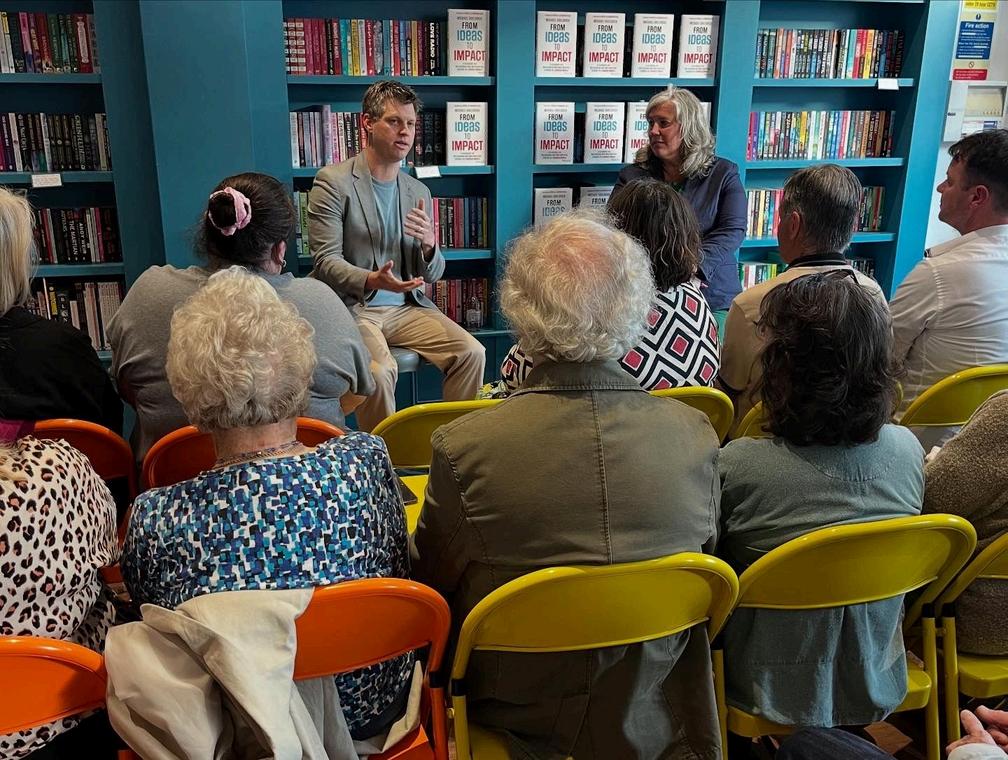
Being an outlier is fundamentally about resilience about persisting even when the odds seem stacked against you. One of my favorite stories is about the legendary violinist Itzhak Perlman, who famously continued performing after breaking a string mid-concert, saying, 'Sometimes it is the artist's task to find out how much music you can still make with what you have left. ”Similarly, being an outlier means staying committed, knowing you might hear 'no' nine times before you get a 'yes.'” It also means understanding that help often comes from unexpected places. While you might occasionally feel let down by people you expected to support you, more often than not, you'll be pleasantly surprised by who steps forward to offer a hand Outliers do not wait for perfection or let it become the enemy of the good and they figure out how to always land the plane.
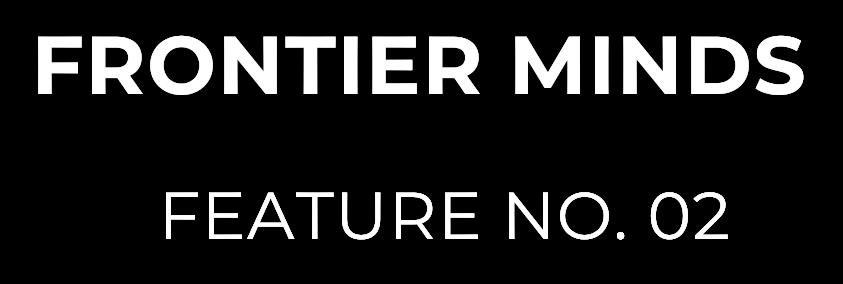
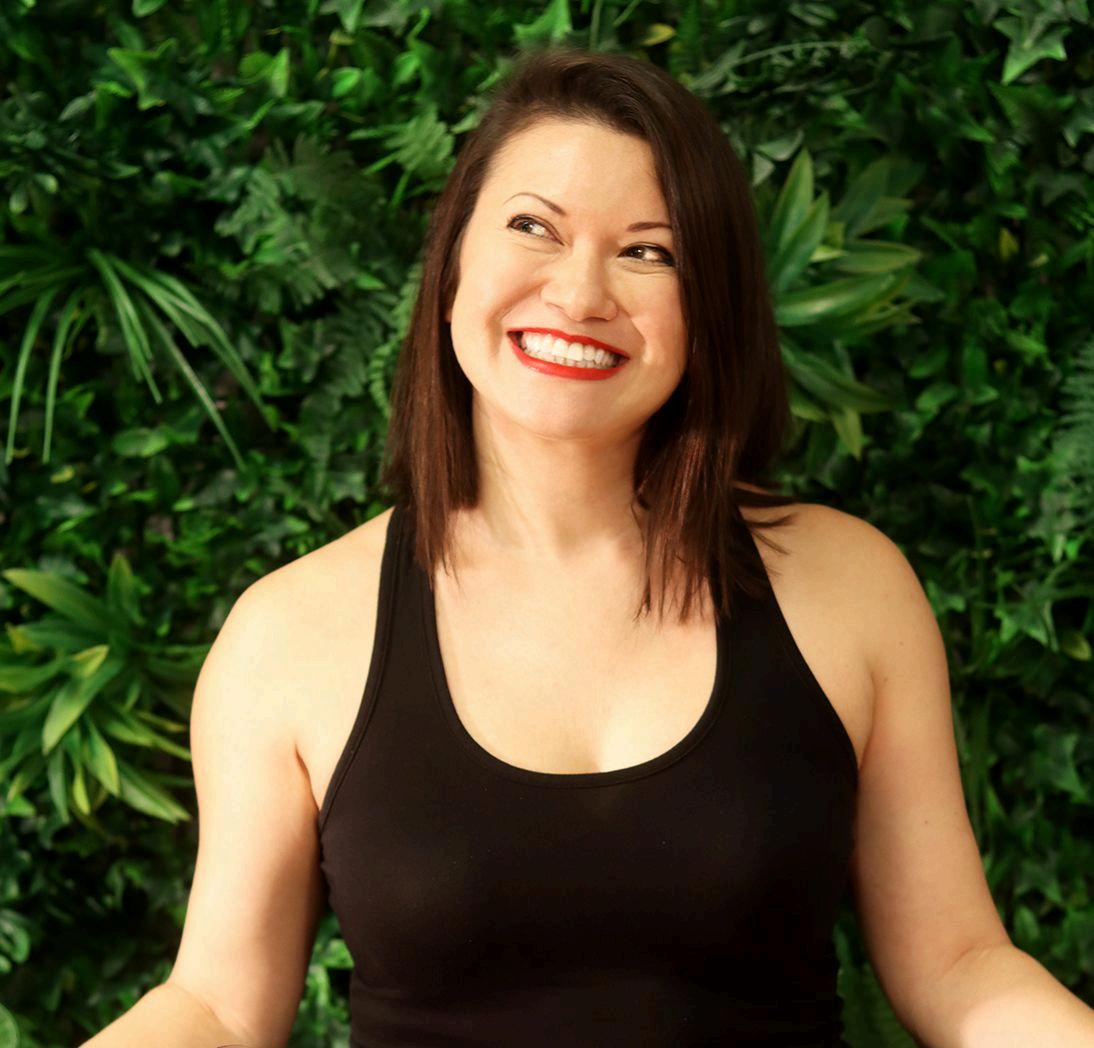
Founder/CEO @ Cheeky
Cocktail, Coach for Early-Stage CPG Founders (focus on idea phase to $500K+ in revenue), Podcast Host
Q:Whatinspiredyouto transitionfrombartendingand brandambassadorshipto foundingyourowncompanyin thecocktailingredientspace?
Iwantedtorunmyownbusiness fromayoungageandspentyears searchingforanideaworthinvesting in.Afterworkinginhospitalityand teachingcocktailclasses,Irealized thatwhilepeoplelovehostingand sharinggreatexperienceswith friendsandfamily,makinghighqualitycocktailsfeltoverwhelming formost.Evenwithmybackground asacraftcocktailbartenderand professionaleventplanner,making everythingfromscratchformyown partieswasalotofwork.Ikept thinkingtherehadtobeaneasier way.WhenIcouldn’tfindshelf-stable versionsofthesyrupsandjuices bartendersmakefromscratch,and mystudentskeptaskingwhereto buytheseingredients,Iknewthere wasagapinthemarket.Afterleaving mylastspiritsjobin2015,Idecidedto goforitandbuildsomethingthat madethehighest-qualitycocktails moreaccessiblewithoutallthework.
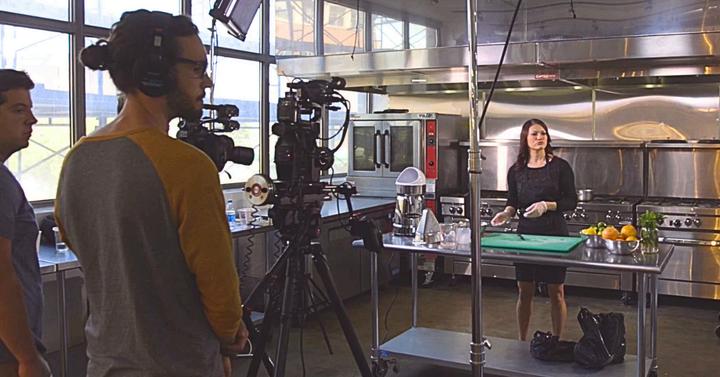
Q:Canyoushareapivotalmoment inyourearlyhospitalitycareer
Iworkedmywayupfrom“the bottom,”making$3/hrinafamily friend’sBed&BreakfastwhenIwas thirteen MybestfriendandIdid everythingfromchambermaiding,to cooking,toserving.Ilearnedthatthe mostvaluablepeoplewithinan organizationunderstandthebusiness holistically,notjusttheirdepartment andtheirspecifictasks.Thistheory remainedtruelaterwhenImanaged barsandrestaurants,andthenwhenI workedinthecorporatespiritsworld forBacardiandasaconsultantfor Diageo.Thebettertheteams understoodthebigpicture,thebetter theteamdynamicsandthebetter theperformance.WithCheeky,
“YOU CAN’T LIVE AN ORDINARY LIFE AND EXPECT
everyone has their core responsibilities, as well as visibility and understanding of responsibilities outside of their own. I also try to ensure everyone understands the “why” behind their tasks and company decisions This helps build empathy and understanding of why their work matters to our collective goals.
Q:Whatwerethebiggest challengesyoufaced launchingCheekyCocktails duringthepandemic,andhow didyouovercomethem?
WelaunchedinMarchof2020,just weeksafterCOVIDshutNewYork Citydown.Whilewegotalotmore exposureandimmediatebrand awarenessduetothelockdown timing,manufacturingandsourcing rawmaterialswasthewildwest. Caps,bottles,cases,andingredients werealltoughtosource,andgetting linetimeatco-manufacturerswas incrediblydifficult.Fortunately,we hadmultiplesuppliersformostof ourrawmaterials.Wealsohadour ownsmallmanufacturingfacility, whichwewereabletousetohandle someofourproductionneeds,versus outsourcingproductionentirelyto co-manufacturers.Likeanybrand thatsurvivedCOVID,oursurvivalwas duetoactingquickly,makinggood decisions,learning,refusingtofail, andpartlydumbluck.Icouldn’t
have planned our launch timing any better (luck), but we wouldn’t have been in that position without years of hard work and pivoting leading into COVID Not quitting counts for a lot!
Q:Howdidyourexperiences workingwithmajorbrands likeBacardiandDiageo influenceyourapproachto buildingandmarketing
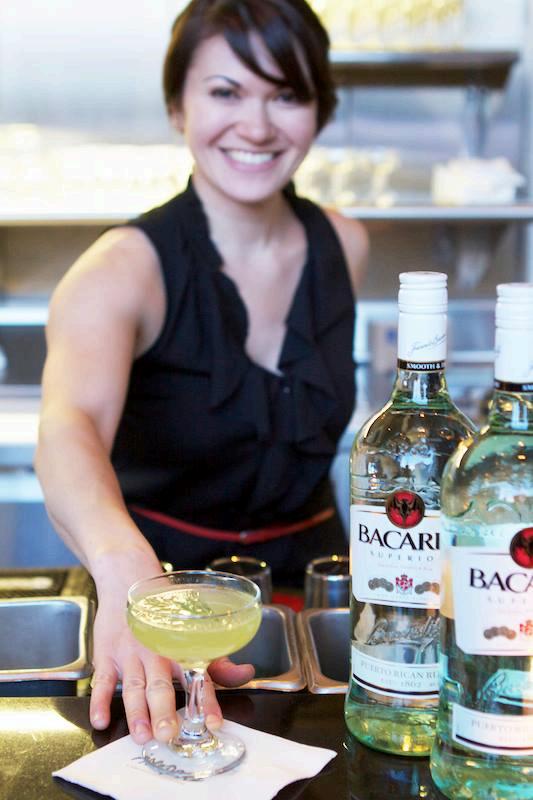

Workingwithmajorbrandslike BacardiandDiageogavemea strongfoundationinhowlarge companiesbuildandmarket products,butitalsomadeitclear thattheplaybooklooksverydifferent whenyou'reasmall,underresourcedbrand.
Oneofthemostimportantlessons wasthedistinctionbetweenapush andapullstrategy Bigbrandshave theresourcesto“push”productsinto themarketusingmassivead budgets,nationaldistribution,and retailerincentives.Thatstrategyjust isn’trealisticforsmallerbrands We havetorelyon“pull” creatinga productpeoplearegenuinelyexcited about,sotheyaskforitbynameand pullitofftheshelfthemselves.
This thinking played a significant role in how I approached launching Cheeky. While I knew the carbonated mixer category was bigger in terms of total market size, it was dominated by large incumbents and heavily resourced players. On the other hand, the noncarbonated mixer space had fewer competitors, a clear gap in barquality options, and growing interest in premium cocktail ingredients. That whitespace helped shape our product lineup and gave us a strategic entry point to build a brand rooted in real mixology, not just another mass market mixer brand filled with artificial ingredients and preservatives.
Youreallydon’tknowifconsumers willpurchaseaproductuntilyou launchit,sotherehavetobe strategicreasonstodosointhefirst place.Everyinnovationcanadd valueoraddrisk,dependingonhow it'sreceived.Weofferarangeofcore productsthatwealwayshavein stock,andlaunchallnewinnovations as“limitededition”products.Some products(likeourEspressoSyrup) graduatewithhonorsandbecome partofthebestsellerlineup,some becomeseasonalofferingslikeour MintSyrup,andsomeweretire permanentlyifthey’retoonicheor underperformingrelativetotherest oftheline.
Inregardtocompanyculture,I’m fortunatethatmostofourcoreteam hasworkedwithCheekyinaparttimeorfractionalcapacityfortwoto threeyears,andthey’reallawesome, friendly,driven,hardworkingpeople whoworkgreatasateam.Whenever wehireanewperson,wedoatrial dayoratrialprojecttomeetthe teamandgettheirassessment Ultimately,it’sadecisiononmutual fit(they’realsoevaluatingus!),but theteamhasbeenveryconsistentin identifyingwhowillbegreatcoworkers,soit’sateameffort
Q:Asafounderwithalean team,howdoyouprioritize tasksandmaintaincompany culture?
Prioritizationisaconstantbattle.I starteachdaywithalistofnonnegotiabletasksandnice-to-haves(if there’stime),andenditbyupdating thelistforthenextday.Thelist includesthemajordeliverablesfor thewholecompany,anddepending onhowwe’reprogressingthrough thelist,I’llpullindifferentresources tohelpwherenecessary.
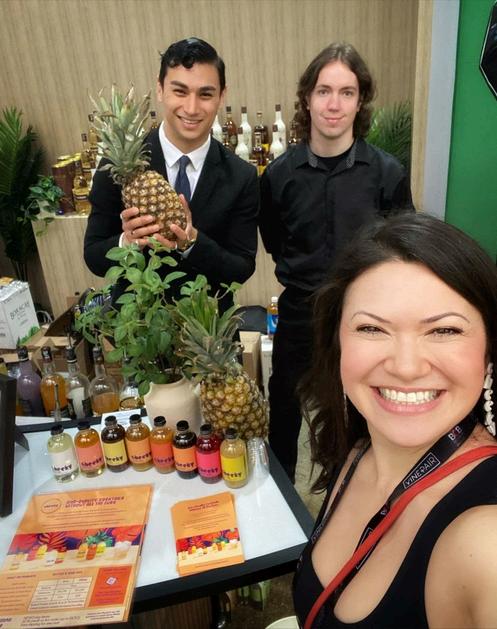

Q:Whattrendsdoyousee shapingthefutureofat-home cocktail-makingandthe beverageindustryoverall?
Thereareamillionmicro-trends surfacingatanygiventime,butfrom the30,000footview,consumersare becomingmoreconsciousandmore investedinwhattheyputintotheir bodies,andlikealways,haveaneye towardsconvenience.There’salotof conversationaboutconsumers reducingalcoholintake,andwhileI agreethatthisisarealphenomenon, Idon’tthinkconsumerswill meaningfullyreduceconsumptionof whatIcall“recreationalbeverages” atanypoint Currently,many consumersareexperimentingwith theirbeveragechoices,dabbling withnon-alcoholicandTHC beverages,etc,butineverycase, they’restilllookingforbrandsthey identifywith,anddrinksthatfittheir lifestyle.
Q:What’sthemostsurprising lessonyou’velearnedabout yourselfthroughoutyour entrepreneurialjourney?
I’vealwaysknownthatlearningskills getseasierovertime,butIdidn’t realizethatI’dbecomemore emotionallyresilientthemore challengesweovercame.Overthe years,wehavehadnumerousneardeathexperiencesasabrand,and

whileinitiallyIlackedthehardskills andemotionalarmortohandlethe stress,I’vebecomealotmorelevel andcalmwhennewcrisesarise!
Q:Howdoyoumaintainyour motivationandemotional energywhenfacingsetbacks ortoughdaysasafounder?
Exerciseandspendingtimewith friendsaremygo-toremediesin toughtimes,butI’vefoundthatifI’m exercisingandseeingfriends(and gettingdecentsleep)ingoodtimes, it’slesslikelyI’llexperiencetough daysinthefirstplace

Being an outlier is essential to success because you can’t live an ordinary life and expect extraordinary results. The path to something remarkable requires a willingness to think differently, take risks, and do the hard things most people avoid. If you want to build something extraordinary, you have to invest tremendous effort By definition, that makes you an outlier!

Founder of Card.io, Shark Tank
Season 16, Forbes 30 Under 30
Austin, Austin Black 40 Under 40
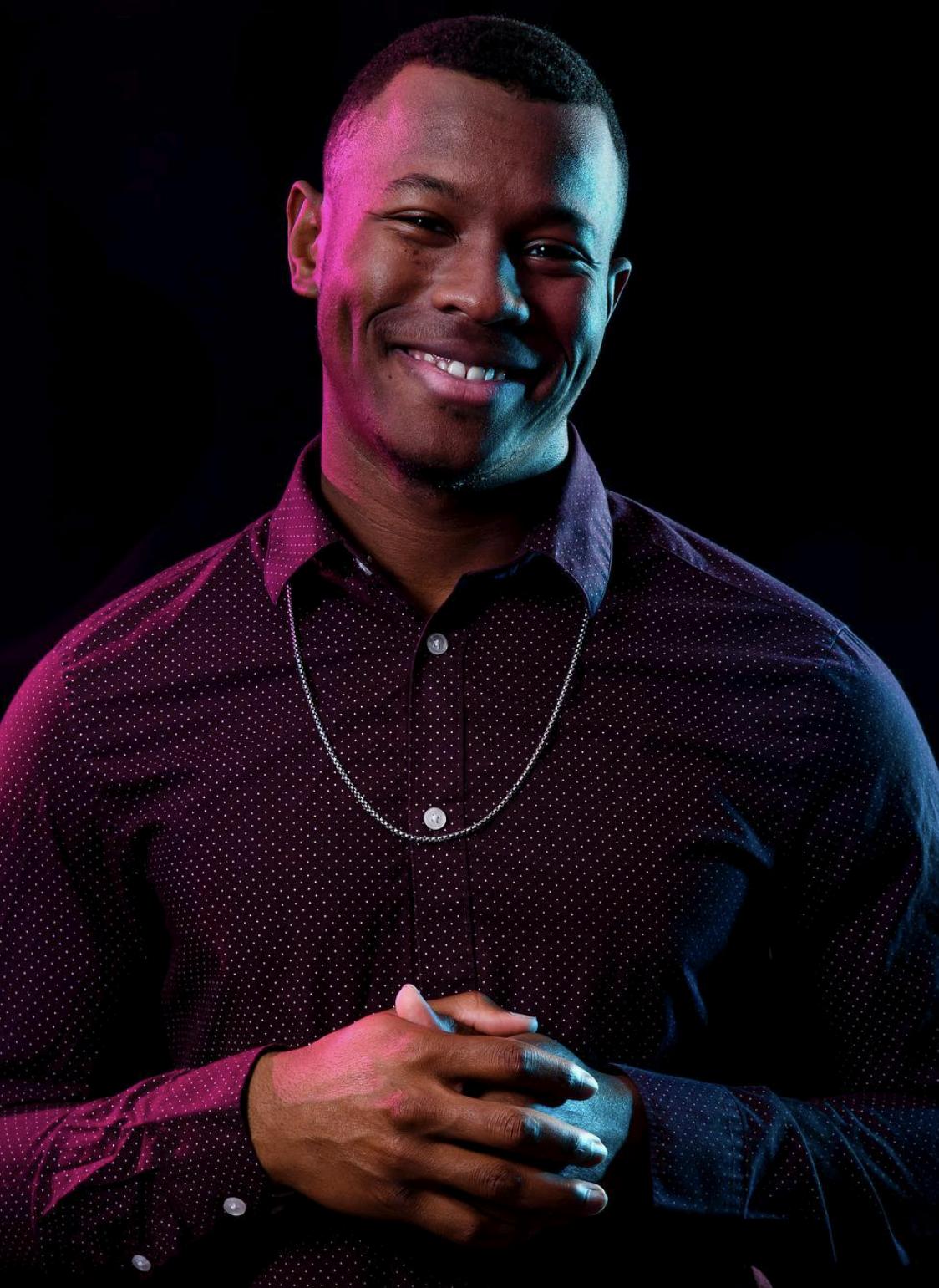
Q:Whatinspiredyoutocreate theCard.ioappandhowdoes itchangethewaypeopleview exercise?

DuringCOVID,I,likemostpeople, wasstuckathomeandlookingfora waytostayactive,withgymsclosed andsocialactivitiescanceled.And justlikemostofthosepeople, runningbymyselfwithnoother purposebeyondstayinginshape wasn’tthemostappealingthingin theworldtome.Evenrunningwith myroommateatthetimewasn’t muchbetter,ashewaswayfaster&
I’dfindmyselfrunningalonewithin thefirstquartermileanyway.Iknew therehadtobesomethingtomake runningbymyselfbothfunand social.Ilookedatotherproductsthat existedatthetimethatwerehelping getpeopleoutside,andtheonethat byfarwasdoingthisthebestwas PokemonGo
Atonepoint,theyweretracking moredailymilesthanStrava,which wasabsolutelynutstome.Itmade meask“CouldPokemonGobecome arunningapp?”Moreover,canyou usegamificationtomakeoutdoor cardiofunenoughthatpeoplewho mightnotbecompelledtorun becauseofStravawanttodoa5K? ThemissionofCard.ioistomake cardiofunforeveryone,onestepata time.Takingrunningandmovingit awayfromperformance-based competitionfocusedonspeedand distance,ourgoalistomakeany activity whetherit’samarathonat Boston-qualifyingpaceorawalk withyourdogintheneighborhood feellikeafun,socialexperience We wantittostillgiveyouthefeelingof “winning.”Mostpeopledon’tcare
"SUCCESS, AT LEAST ON THE LEVEL I WANT TO ACHIEVE IT, IS BY DEFINITION AN OUTLIER OUTCOME... I ALSO COULD NEVER SEE A LIFE WHERE I SETTLE FOR THE COMFORT OF MEDIOCRITY." -DESTINBELL
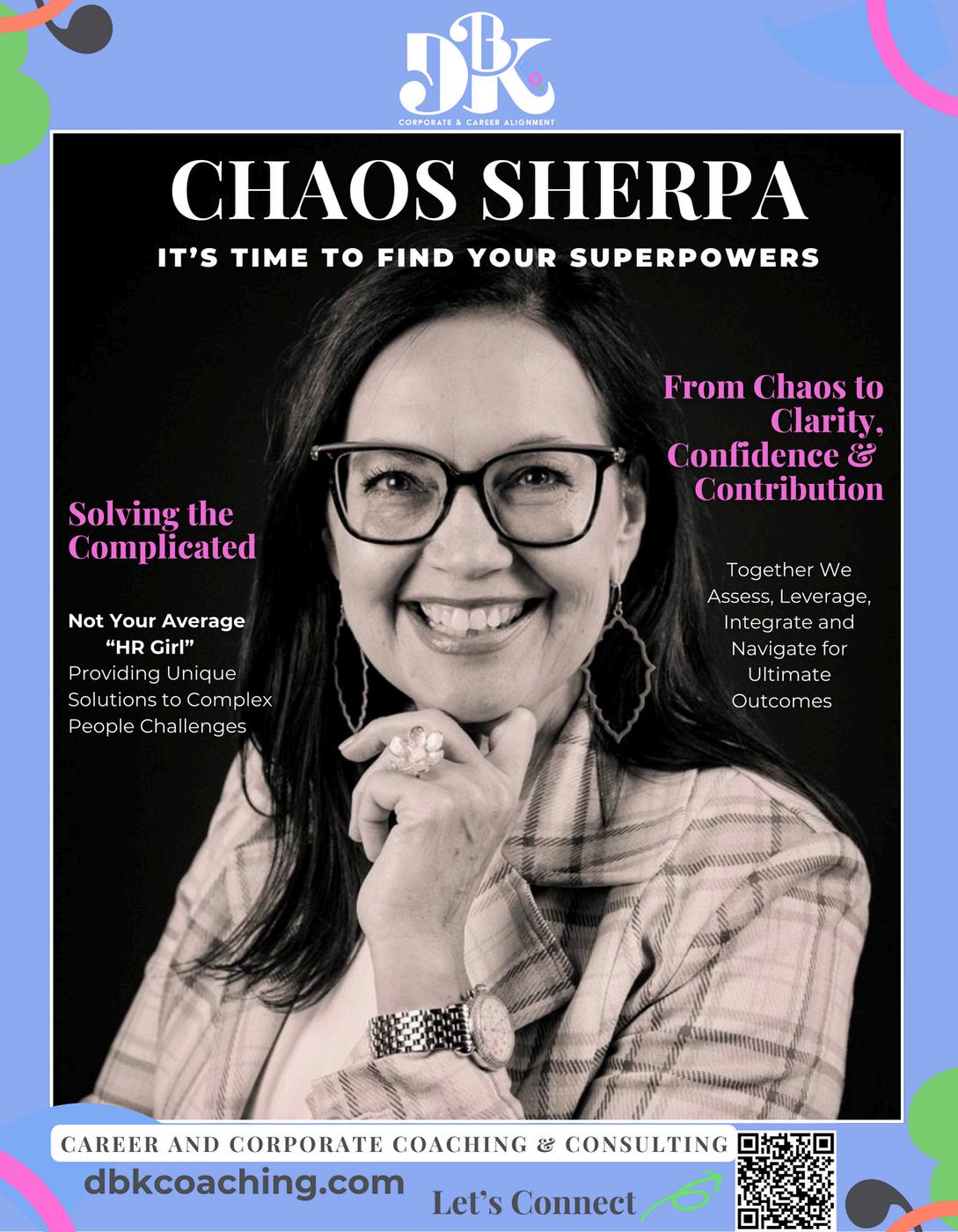
about PRs or VO2 levels, they just want to feel good about having moved enough to break a sweat Card.io is designed to tap into that same dopamine that gets people who generally aren’t athletes to walk, on average, 2 miles a day using Pokémon Go
Q:Howdidyourexperience withastutterinfluenceyour approachtopublicspeaking andpitchingonSharkTank?
WhenIwasyoungerspeakingwasa challenge PartofwhyIeverstarted watchingSharkTankatallwas becausemyMomtoldmeseeing peoplepresenttheirideaswould helpmelearnhowtodothesame better Watchingpeopleknowtheir stuffinsideandout,andalsoseeing howbadlythepeoplewhodidn’t wereabsolutelyhumiliated,made memakesuretobefullypreparedto knowexactlyeverypointIneededto handleanyobjection,question,or concern.
Funnyenough,onethingthat helpedevenmorewiththiswasmy childhoodfriends.Wespentsomuch timeroastingeachotherandonly hadafewsecondstomakeawitty comebackbeforegettinglaughedat bythegroup Igotwittybydefault I thinkthatwasthebiggestreasonI wasabletogobackandforthwith Mr.Wonderful.Duringourepisode hesaideveryonebeforemehad
been as confident their company was worth their inflated variation, and I was able to verbally spar and beat him with a quick response that made him back off (at least that's what my friends told me when they watched the episode, haha).
Q:Whatwasthemost challengingmomentduring yourSharkTankappearance, andhowdidyouovercomeit?
Tobehonest,themostchallenging partwasallthewaitingIhadtodo andgettingreadytobepitchready TheprocesstogetonSharkTankisa lengthyone-ittookabouttwo monthsfromwhentheyapproached metowhenIactuallywasselectedto pitch
Duringthattime,wehadcountless callswithproducers,re-writesformy monologue,and,whichwasthemost difficult,gettingtheapptobewithin regulation ABChasatonof regulationsaroundbranding, copyrightandownershipofIP,so gettingourapptofitintothat thresholdwasdifficult.Wecouldn’t seecitynames,streetnames,notable

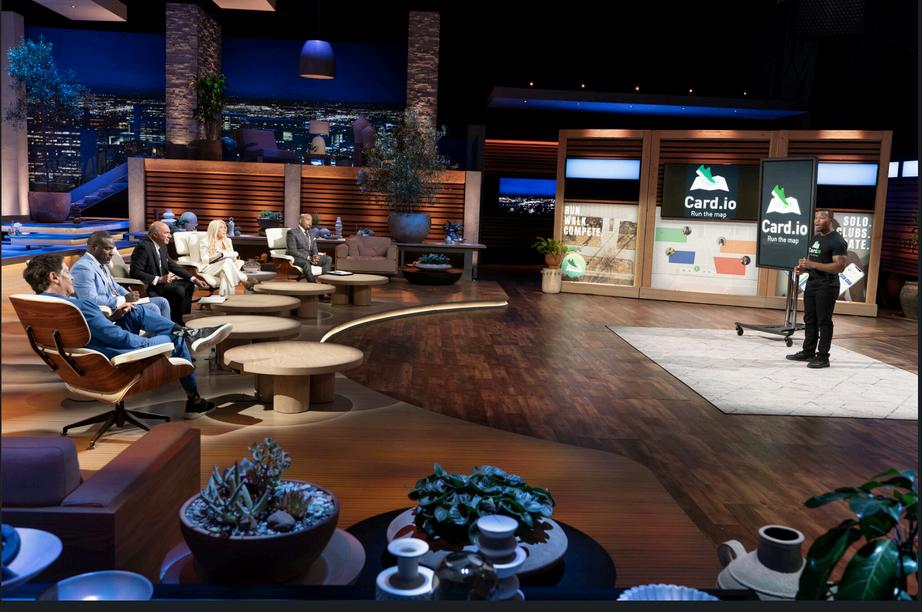
locations, anything We couldn't even have the same color of the map as it is normally because it would be infringing on Mapbox who we use for the map, even though we literally have a license to use it, LOL
It got to a point they asked if it was possible for us to pitch without showing the app and we almost didn’t even film because I refused to do it without a visual aid. Like bruh… it was a hassle to say the least.
just felt embarrassed to talk Toastmasters, and even more so my mother, gave me the confidence to try and helped me take steps to mitigate the challenges those things presented I learned which words made my lisp more prominent and changed my vocabulary to work around it. It’s why I almost never say “yes” and always say “yeah” instead, which sadly comes off way less professional.
LikeIsaidearlier,myconfidencein myabilitytospeakinfrontofcrowds wassomethingIstruggledwithasa kid.Withbothastutterandlisp,I
It also helped me be okay with taking time to gather myself and not rush into speaking. I gather myself to make sure I have a plan for the words coming out of my mouth, since talking too fast before I know where I’m going usually makes it worse.
Q:Whatstrategiesdidyouuse topersistthroughthecold calls,networking,and rejectionsearlyinyourstartup journey?
Honestly,thebeststrategywas lookingatreal-lifeexamplesof peoplethatinspiredme.Beyondmy mother,KobeBryantwasmybiggest inspiration.He’sconsideredoneof thebestscorersofalltime,butatthe sametimehasthemostmissed shotsinNBAhistory(atleasthedid upuntilLebronpassedhimrecently). Thefactthatbothofthesethings canbetruehelpedmeconceptualize thatpeoplerememberthemakes morethanmisses,sojustkeep shooting.
MarkCubanhimselfsaysitbest:“You onlyneedtoberightonce”Aslong asIgotonesale,onegreathire,one investment,thenallthe“no’s”before thatwouldn’tevenmatter.
Q:Howdoyoubalanceshorttermhustlewithlong-term
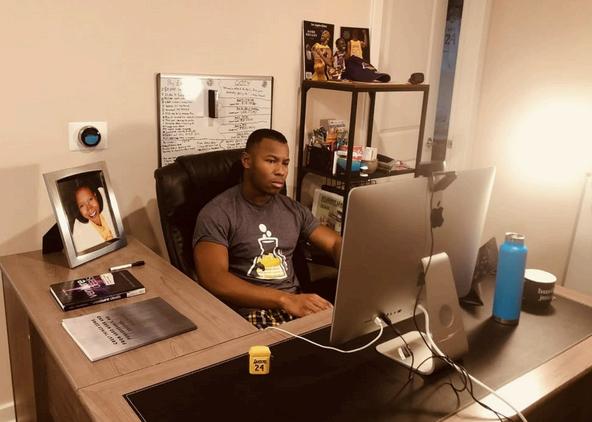
visioninbuildingyourbrand andbusiness?
Inthis,Iconsidermyself“patiently aggressive” Everysingleday,Itake actionrelentlesslytoprogressasfar aspossible.ThinkingIhaveinfinite timewilleventuallyleadmedowna pathofinaction(aggressive).Ialso knowthatbuildingastartupislike buildingRome nomatterhow manybricksIcanlayinaday,a week,amonth,evenayear,therewill alwaysbemoreworkahead,andI havetobewillingtotrustthe process(patience).Nowhereisthis betterillustratedthaninmy situationwithPokémonGo.
InMay,IsenttheCEOanemail Two monthspassedbeforeheeven responded.Wehoponacallaweek later.I’mecstatic.Idon’tevensleep thenightbefore,chuggingcaffeine tofine-tunemydeck,Figma wireframes,mypitch,etc.Thecall starts...he’snotevenonit.Histeam tellsmeno,basically.Didn’teven wanttoseethewireframesorthe deckIspent,inallhonesty,thelast sixmonthspreparingforthis moment.I’mdevastated,andpartof mewantstoquit.Ihadmyshot.I blewit.Ihavenomoney,no engineer,andmybestshotatboth justwentoutthewindow.ButI remindedmyself"Patiently aggressive”.Today’s“No.”isnext week’s“Maybe?”,andmaybeeven nextmonth’s“YES!”
Soforthenext3monthsIsentthem weeklyemailsupdatingthemonmy progress,evenifitwasnothingmore thanafewdozennewemailsona waitlistsignupform.Throughout, theykepttellingmethey’dreachout iftheyhadanyupdates.Atonepoint, someoneevenaskedmetowaitfor theirnextcycleforaBlackdeveloper initiativeinMarchofthefollowing year.ButIneverletthatrattlemy aggressiveness.ComeOctober,they callmeagainandgiveme$50K The restishistory.
Thesamephilosophyhasheldtrue formeacrossfundraising,product development,marketing,andeven gettingthroughtheSharkTank pitchanddealduediligence.It’sa marathon,notasprint.I’mbuilttogo thedistance.
Q:Whatadvicewouldyou givetoaspiringentrepreneurs aboutovercominganalysis paralysisandtakingactionon ideas?
ThebestadviceIcouldgiveanyone whoisthinkingabouttakingariskis: “Whatdoyouhavetolose?”Formy fellowyoungentrepreneurs,freshor afewyearsremovedfromcollegeor highschool,mostofyouhave nothingtoloseatall.Nomortgage, nofamilytoprovidefor.Youcanstill getawaywitheatingcheapfoodand havingacrapcar,acrapapartment,
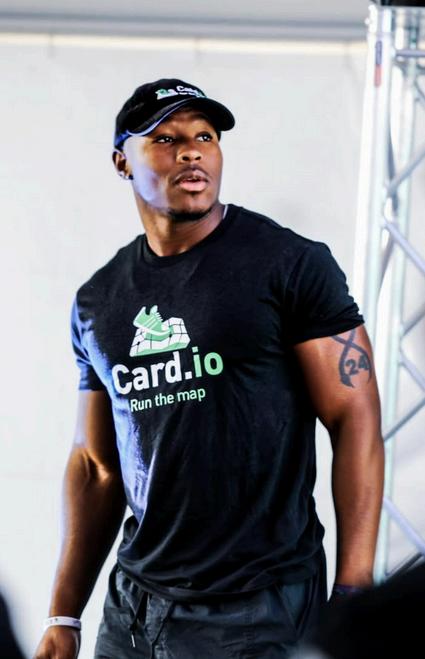
ornocarorapartmentatall.Thisis theabsolutemostflexibletimeyou willeverhavetostartabusiness. Onceyoustarthavingthingsyoucan lose,orafamilytofeed,itbecomes somuchhardertotaketheleap.SoI begofyou:startnowwhenyouhave nowheretogobutup!Forolderfolks withacomfycorporategig,nice retirement,andaspouseand children,myadviceisthesame,but moremeasured.Imyselfhave reachedapointwhereit’shardtobe asfluidasIusedtobe Icareway moreaboutmyhealth.Ihavea mortgage,twodogs,andageneral qualityoflifeIliketokeepup.To thesepeopleIsay:Whatdoyouhave tolose,andhowcanyoude-risk losingit?Ifyouneedtowork

onyourideapart-timeuntilit generatesrevenueoryougetan investment,dothat Needtosaveup anesteggfromsavingworkchecks forabitbeforegoingallin?Start buildingitupthen.Ormaybeyou just“quietquit”,barelyhittingyour quotatoinvestinyourbusiness beforeyourbosscatchesonandfires you.I’mallforit!
Thebiggestthingtomeisknowing thatwhenIdie,Icanlookbackand havenoregretsaboutthedirection ofmylife.ItriedtobeanNBAplayer, andonceIgaveitallIhadforafew yearsinhighschool,Irealizedbeing 5’9”andmoderatelyathleticmeantit wasn’tinthecardsforme.Butwhen IwatchNBAgamesnow,Ineverask, “Man,whatifIhadtriedalittle harder?”Andthatletsmesleepso
muchbetteratnight Sowillyou, evenifyoutryandfailwithyouridea
Q:Howdidyoudecideto accepttheSharkTankdeal despitealowervaluationthan expected?
Awisemanoncetoldme,“Betterto haveasmallpieceofsomething thanalargepieceofnothing.”I’m young,dumb,inexperienced,and wide-eyed,butI’mnofool.I recognizethepowerthatinfluence, connections,exposure,and experiencecanplayinboostinga brand,especiallyaconsumerbrand likeCard.io.Ontopofthat,having thechancetolearnfromtwosmart, successfulblackmenwho’vebeen whereIwanttogowasworthfar morethantheequityIgaveup
Andfrankly,Iknowthisisn’tmylast startup,soIdon’tneedittobemy $100Mpayday.I’drathermakethe connectionsandlearnfromitto makeitassuccessfulaspossible, thengetreadyforthenextone!


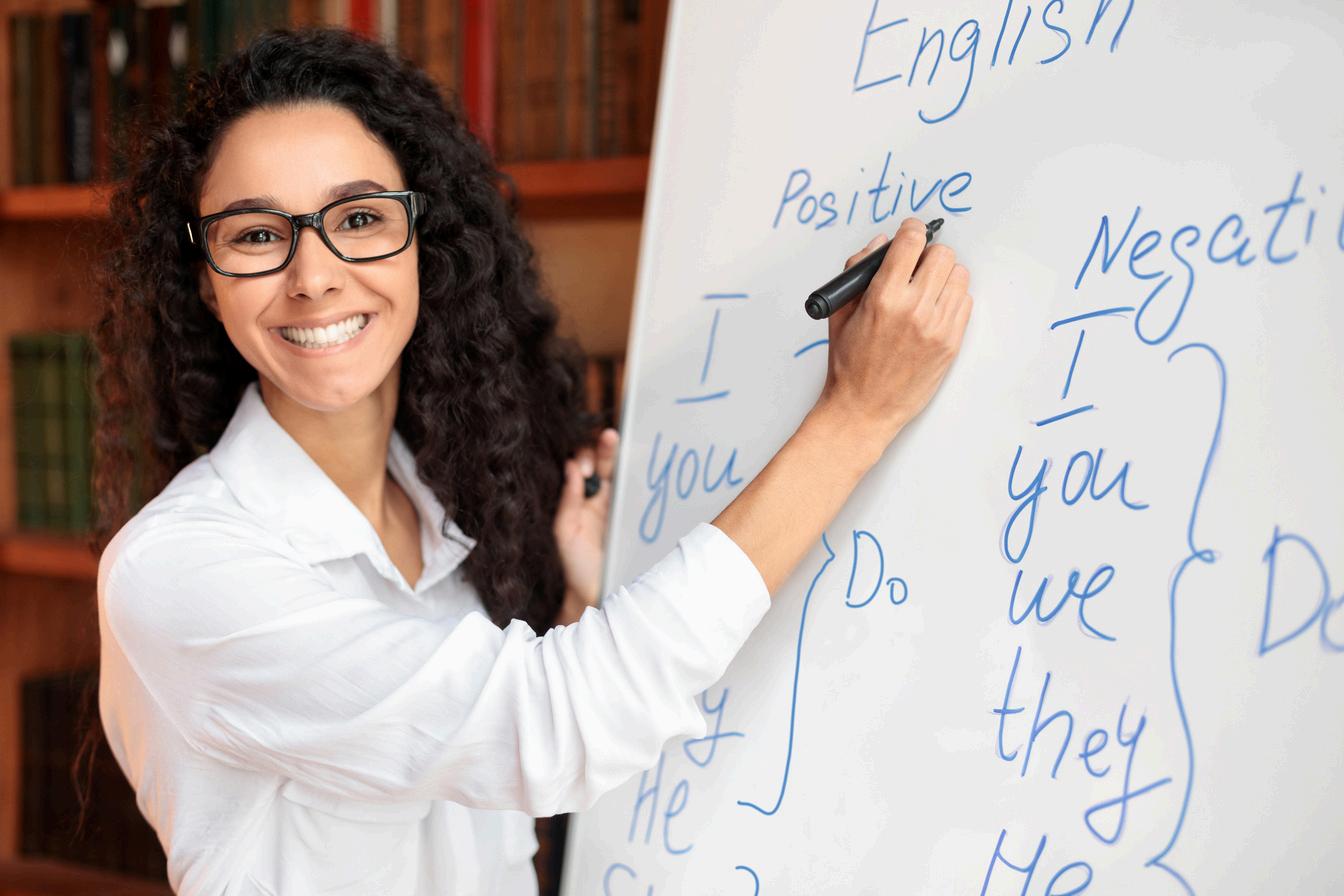

Private and
Lessons Join us at Lingua Nexus - the Language Connection. Because when you can communicate, the world feels a whole lot smaller.
*Use code OUTLIER for 10% off your first course package.
Q:Whatrolehascommunity andnetworkingplayedinthe growthofCard.io?
It'sliterallybeeneverythingforme. Fromourfirstrunclubontheapp startedbythefirstrunnerIever interviewedabouttheidea toour firstmarathonpartner,whichcame fromanexpoboothwhereIuseda picniccloth,asinglebusinesscard, andmytablettoshowwireframes andgetbetasignups.Evengetting onSharkTankhappenedthrougha
friend of a friend who found us and had heard good things about me online. Connection, community, and networking have been game changers for me. I mean, even getting the CEO of Pokémon Go’s email came from a guy I DMed on LinkedIn about the idea. We had a Zoom call, and he believed in my hustle enough to illegally leak the email, lol I genuinely don’t know where we’d be without my amazing community of supporters, advisors, investors, and friends.
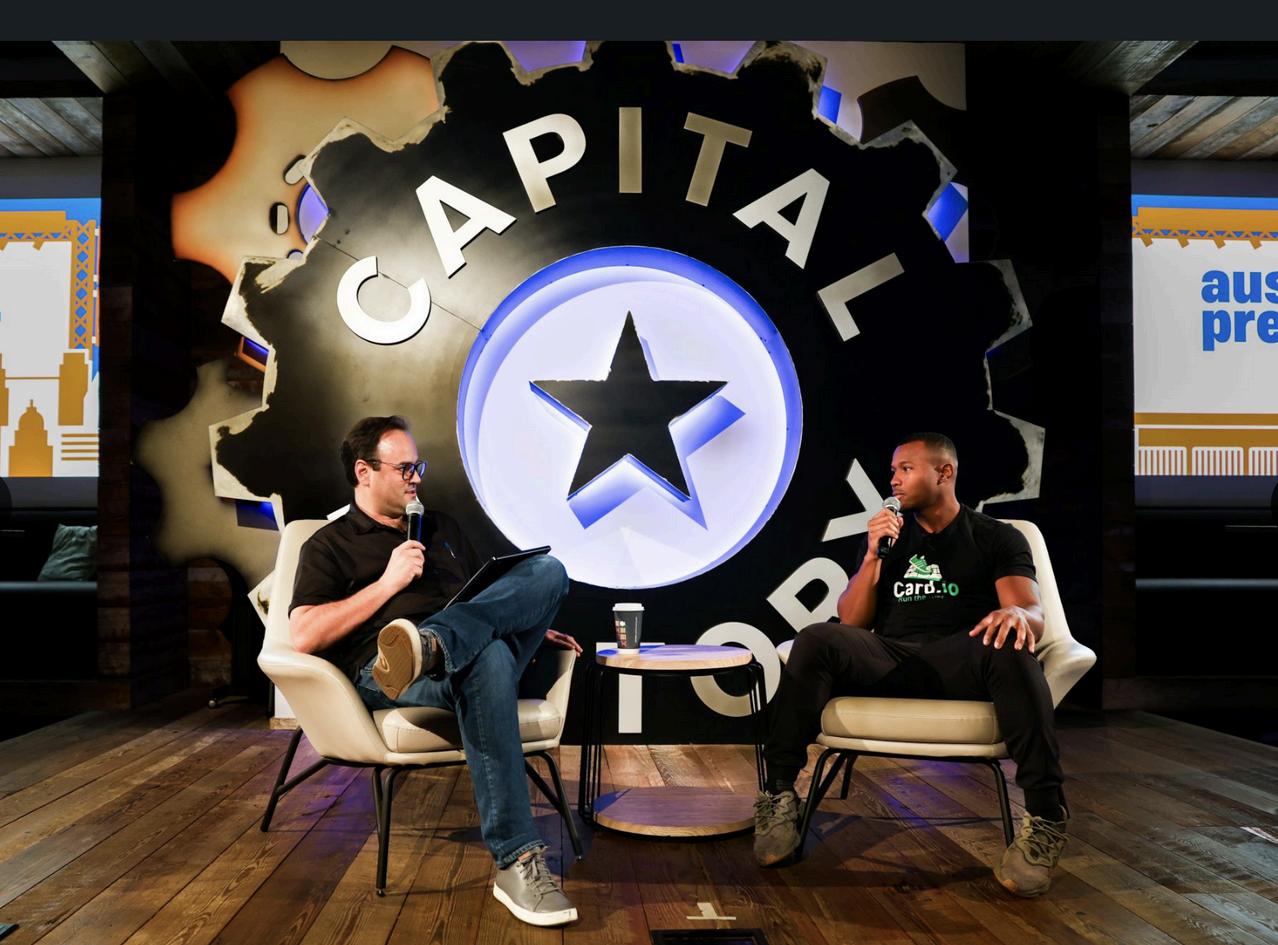
Success, at least on the level I want to achieve it, is by definition an outlier outcome 99% of businesses will never reach millions in revenue, and even fewer will be bought by a competitor at a figure that’ll be profitable for the founder and investors. This is what I want for Card.io, and to do that I have to find ways to become more than the average. You have to be willing to work more hours, take more risks, and sacrifice more emotionally, financially, and even physically than others that want exactly what I want. It’s a difficult path, one that probably has cost me years of my life, relationships, and part of my sanity, but I also could never see a life where I settle for the comfort of mediocrity




So James, as we do this interview, you are 12 days in with no food on a 21- day, water-only fast. What are you up to? And are you delirious yet?
James: Not delirious. It's fascinating what I'm learning about myself, my body, and my relationship with food. I’ve gotten freedom from prep, consuming, cleanup, sourcing. I'm also not working out this month. I’ve literally gained about four hours a day back in my life It’s wild what I'm accomplishing, even in this state I've done three big stages so far I have three more to go Next week I'll be in Rhode Island, New York and Hawaii I was told I couldn't function when doing this very specific protocol And as you know, don't tell me I can't do something
You know, let's talk about that for a second. I've seen your travel schedule. You've sent it to me multiple times as a very soughtafter speaker. It seems grueling. But then I think, “Grueling? This is James Lawrence. He's done some of the most crazy, physically grueling achievements ever.” Is it grueling at all for you?
James: Well that's what I think is interesting about life and this journey that we're all on It's perspective and perception I'll also say that everybody's heart is different And so what's grueling for me may be different for somebody else And it's exactly why I encourage people to do absolutely insane things that push their limits so that normal life becomes easy, palatable, navigable But the reality is, you know, it's grueling. But compared to what? Right? My baseline
has changed so much over the past 20 years that it's just what we do. We do the non-negotiables, we do what's required because it all leads to joy and freedom.
You know, you call yourself a regular dude, but you are probably more of an outlier than you even know. And I think this is a prime example. On the cover of your bestseller Iron Hope it very prominently says, “Guinness World Records Title Holder: 100 Triathlons in 100 Days.” Which isn't true because you did 101 consecutive full triathlons. Doing one 22.4 mile swim, 112 mile bike and a full 26.2 mile marathon is a lifetime
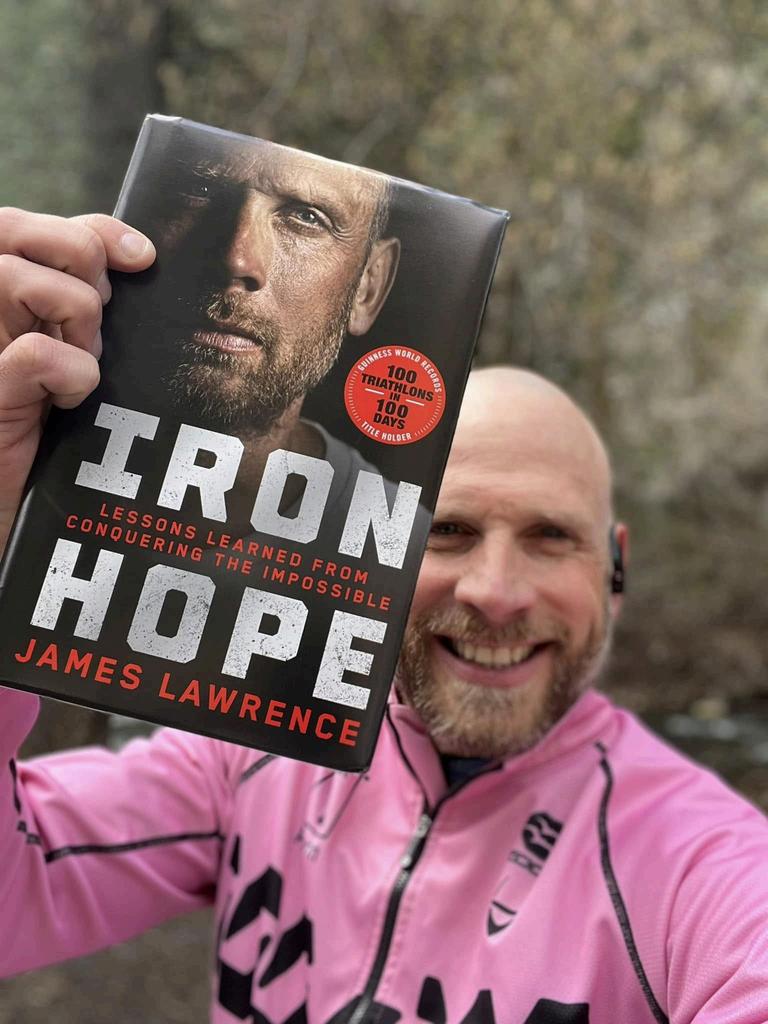


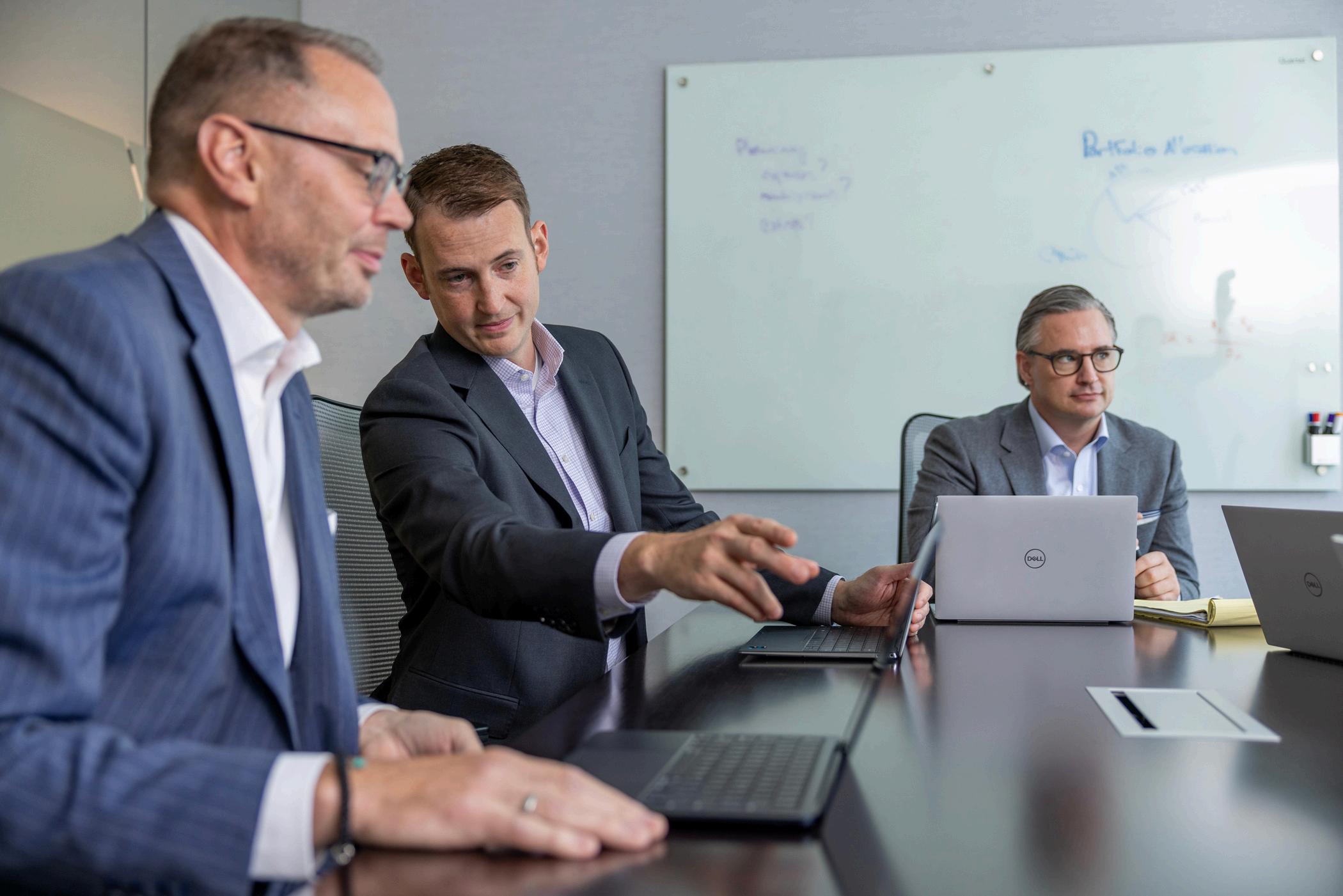


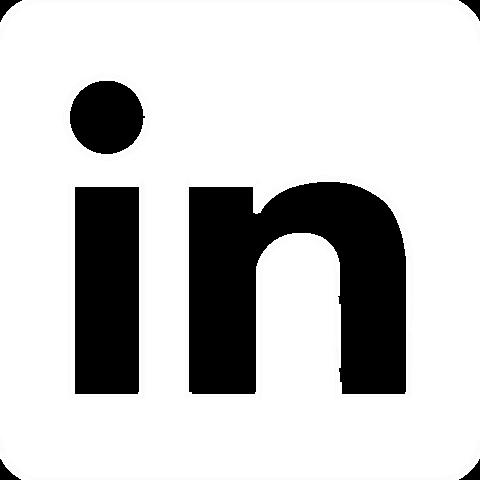
EQUITY INVESTING INVOLVES RISK OF LOSS AND IS NOT SUITABLE FOR EVERY INVESTOR. THE
MONEY.

achievement for most. But for you it's so normal that you were okay leaving it off. I'm curious why you left it at 100 when it was really 101.
James: Yeah, because the goal was 100 And I like to leave some things to surprise It’s just a very valuable teaching point that when the task or goal is done, that doesn't mean we stop. There's a story called the Marathon Monks, it's a journey of these Japanese monks way back when. They took on a thousand-day challenge, and there's a mountain. The circumference base of the mountain is about a marathon long. And these monks would take on the challenge of doing basically a marathon a day, sometimes longer, with rituals in between for three years, which is mind blowing Any world record right now and running that Guinness has, I don't care, I don't believe it
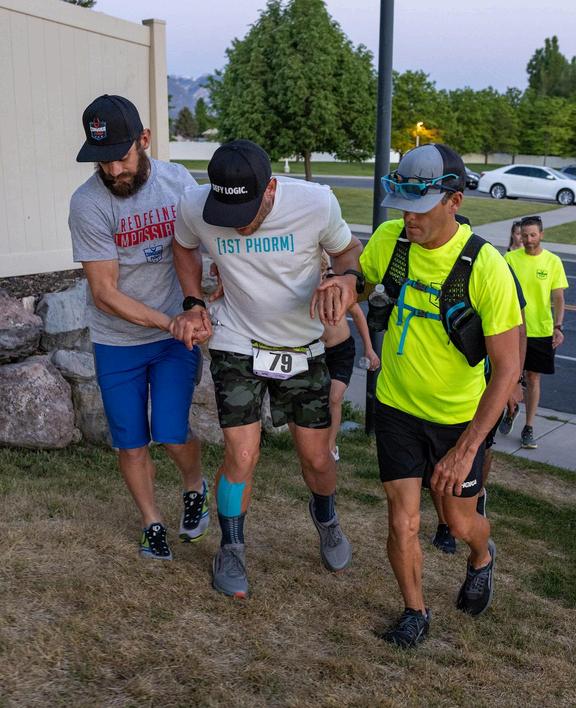
If these monks started on day one, two, three and kept going all the way to a hundred, they were allowed to quit this journey. If you start day 101, you have to continue on. And if you don't or choose to stop, you have to sacrifice yourself on the trail. And there's actual monuments on the trail of individuals that quit from day 101 to a 1000. They didn't make it. They lost the battle with their mind or whatever it was And so day 101 was extremely symbolic for two reasons
One, first I'd be a hypocrite if I got on stages around the world and said, “I get it, you're beat, you're broken, you're defeated, but you can get up and do one more ” I believe leaders lead from the front and I had to set that example first. But two, it was a commitment to myself, to greatness for the rest of my life. It was
a commitment to being excellent beyond the 100 challenge. And 101 signified that commitment to do that.
When did you decide to do that one more?
James: Yeah, it's interesting. Early in the journey, I'm talking like the first week, I'm broken on day five I'm starting to really get into the hurt locker My runner wingman Casey, doing all 100 marathons with me said, "Oh, my gosh, wouldn't it be cool if on day 101, just me, you and Aaron, the other wingman, went out and did one, just the three of us, an extra one."
And I was like, "If you ever say those words again, you're fired off the team.
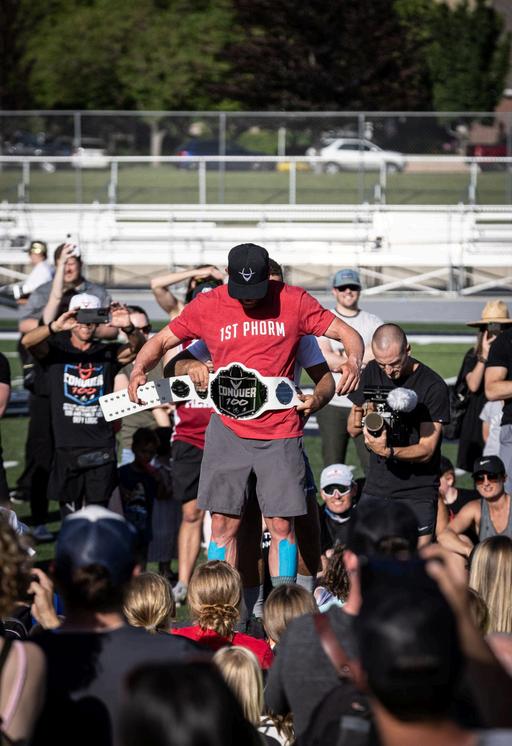
You're not my friend. And we're done." About day 96, I'm out on the run trail with Casey. I can see the light at the end of the tunnel. And I say to him, "Remember that conversation we had?" He goes, "Yeah." I said, "I think it's possible " He goes, "What?" I said, "I think we should do it " And he got all excited And here's the lesson It's where you are in your journey, the perspective you have, and basically where you're at Because on day eight we'll call it, I couldn't conceptualize doing one more because of where I was on the journey
But on day 96, the phrase switched just a little bit to “What’s one more?” Life is about perspective and perception, and how we view and see things. And that only morphs and changes because of the experiences that we have. The number one question I get as I've traveled and spoken around the world is, "How do I become more mentally tough?" It's only through experiences You're not going to read this article You're not going to
watch our documentaries You're not going to read any books You have to show up and have an experience And that's what's fascinating I've got those five kids, and I'm watching this generation sit at home waiting for purpose and passion to knock on their door. And it's not coming. You have to go find it. And they feel alone and isolated and all these things. And it's because they're sitting at home. The only way to grow, adapt, evolve, expand your network is to go make yourself uncomfortable, have experiences, mingle with people, talk to people, have conversations That is truly the point in life as I've navigated a lot of the nuances of it

How did you get the moniker Iron Cowboy?
Listen to Scott and James’ conversation about this question here:

How do you prepare mentally and physically for consecutive Ironman triathlons over such extreme durations?
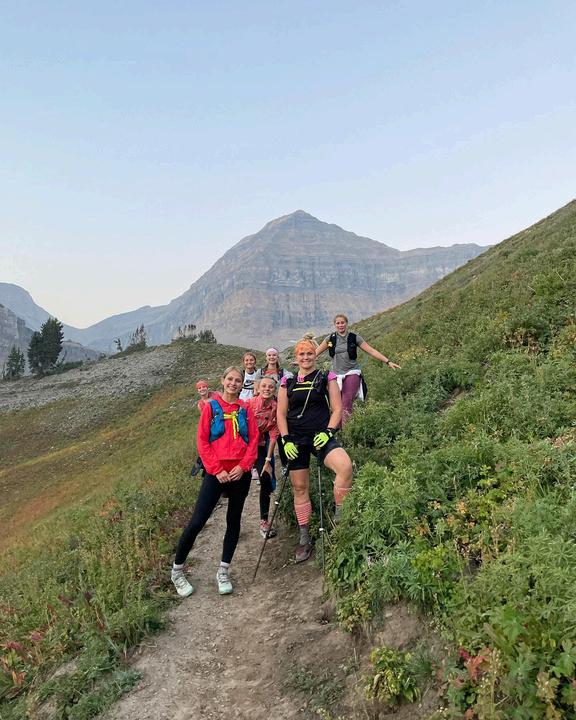
James: Yeah, it takes 20 years to where 100 Ironmans becomes the next possible step It's amazing I've become an overnight success in just 20 years And I heard a great quote the other day and you might need to look up who said it or maybe nobody did and I'll take it. I mean somebody said it, but I don't know if they've owned it. “The harder I work, the luckier I get”. You know, because as you become more successful and break through barriers and grow as a person, all of a sudden people start to say, “Oh, you just got lucky.” or “You're gifted, you're talented ” All these things validate their reason why they're not thriving in life And so I think this way of thinking is incredibly powerful and liberating because you're taking accountability for where you are at and what you're accomplishing and who you're becoming
What role have Sunny and your five kids played in supporting you through your 50-50-50, and then your 101:101 challenges?
James: I am not the Iron Cowboy. We are the Iron Cowboy. There's so many moments that I could pinpoint, and you can learn about them by reading our book Redefine Impossible. Reading the book Iron Hope, watching the two documentaries that are on Amazon Prime, you will see those moments. I couldn't have done it without Sunny, the five kids and frankly the two wingmen And you know, could have I done it without Sunny and the kids and just the
wingmen? I don't know It'd have been a very different experience But I truly don't think so because this was not a solo pursuit and you know, nothing great is ever accomplished on our own
It would seem like those obligations, because you see them in the documentary, would almost make it more difficult. But you're saying it made it easier.
James: Oh, 100% It gives you purpose, it gives you community, it gives you togetherness, it gives you support It creates value, creates connection Again it's why The greatest lesson we learned through the pandemic is that we are a tribal group. We’re a tribal society. We are meant to co-mingle. We are meant to do things together. We are meant to help each other. We are meant to grow
and have relationships and feel and do all these things Serve together, suffer together And you know, the statistics don't lie I mean, Covid produced a terrible stat line of the highest rate in history that we started tracking of depression, alcoholism, addiction, abuse, suicide Those are scary, scary stat lines
You know, watching the documentary, the last one, I think it was day five, you were just broken. You had a serious, serious issue. And then even later on seeing you literally passing out on the side of the road, how did you manage pain and exhaustion during those events?
James: Yeah, again, I'm going to keep going back to a similar response of experience Your baseline changes When you start small and go big, you understand where perceived limits are and how to break through them You develop coping mechanisms, and I'm not talking about alcohol or things like that
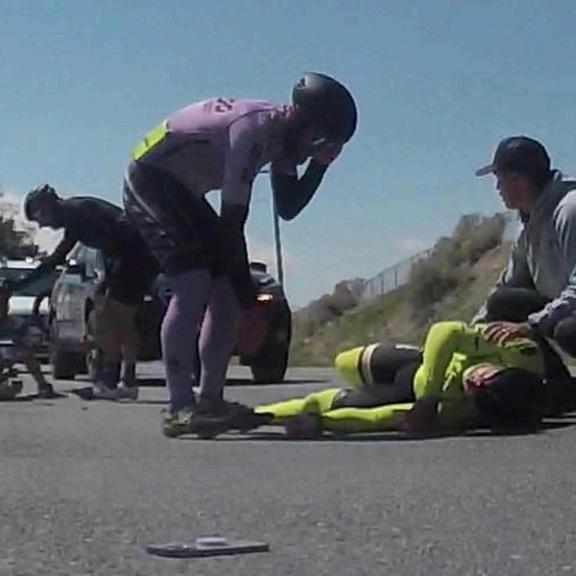
I'm just talking about mental toughness coping mechanisms, the ability to turn things on and off, the ability to shift your attention from suffering to good.
Here's a couple fun, fun things. Science has proven that as humans we can't have two thoughts at the same time. And science also says that darkness can't exist in the presence of light, and all of that to say we have choices on where we put our focus and attention And I could focus on the pain, sure, but it's not going to solve it I now need my team and me to start solving those problems But now I get to develop a skill set to manage pain
And what I realized is for the most part, especially in general normal life, we hit these thresholds and then you recognize that it doesn't really get worse beyond that threshold. And so you just have to go, “Okay, if I can manage this level, then I'll be fine.” And then you change who you are through that process. But again, you can't go from 0 to 100, meaning you can't go from off the couch to 100 Ironmans. There’s a lot of experience and moments and foundational building blocks that happen before that moment, to be able to conceptualize it to where you get to the point where: “Okay, this is the next logical step” And an Ironman a day does become routine for what you're doing in life And that sounds crazy, but that's the place we need to get to as humans, to where an Ironman a day becomes “routine”, right? Because then when normal life happens to us like a pandemic, we can handle it with ease.
I could look around my circle of friends and peers, and co-workers, and strangers, and how they handled covid. I could tell instantly who had dealt with things in their

previous journey prior to that moment and those who didn't Because those that had, thrived and those that hadn’t, turned into a pile of marshmallows
Can you share a moment during any of your challenges where you thought, “I'm not going to be able to complete this,” and maybe even contemplated quitting, and how you overcame that?
James: Yeah, two moments But I'll just share the first one and you can tell me it's not good enough It was day 59 of the Conquer 100 when I was in a very freaky random crash on my bike, knocked unconscious. Laying in the middle of the road opening your eyes from that, you're like, “Journey's over. Zero chance I can continue.” You look over at the other person you're in the accident with and their face is full of blood. Bike’s broken, people are on their phones calling 911. You're like, “Yep, 59 is going to have to be good enough. That's the new world standard ”
And then you start going through your process And I also like to say that no decision in the history of decisions has ever been made in the peak of emotion. Which is why it takes a lot of prethought and deciding what you'll do, what your ethos is and who you are. Black and white. Because at that moment, the decision needs to have already been made. And so when I was coming back to consciousness, Aaron was standing over top of me He's the other wingman doing all 100 bike rides with me He was ready, he knew our ethos He asked me a series of questions and when he was done with the questions, he basically said, “Get back on your bike, it's time to ride ” And I was like, “Oh yeah, nothing's broken ” And I could. So I might as well try. I went on to finish that bike ride, and ultimately found out that I cracked my L5 in that crash and had to do 41 Ironmans with a very intense pain.

But here's the point. In life, we get to choose where we put our focus and attention. I was raising money to free human beings that are being sex trafficked and enslaved today. I knew my suffering would end in 41 more days. These individuals have no idea when their suffering would end. Everybody knows what they want I wanted to do 100 Ironmans, but not everybody knows what they're willing to sacrifice in order to accomplish it
So powerful. You have become a very successful entrepreneur. What lessons have you learned that apply to your business life now through all of your endurance feats?
James: Yeah, if I can parallel physical pain to failures in entrepreneurship, you
have to be able to have very thick skin. Entrepreneurship is truly the greatest example of endurance. Social media has glamorized it. It takes 10 times longer than you think it'll be. I see all of these posts where people are like, “Become an entrepreneur, sit on the beach and work two hours a day.” No, don't quit your day job, and just work your 40 hours a week Because becoming an entrepreneur requires 20-hour days sometimes
There is no off switch and there's going to be failures and missteps, and you really need to fail 10 times before one hits And so it takes an insane amount of mental toughness. You have to be great. There's a lot of lonely moments and all of these things in entrepreneurship parallel endurance racing, beautifully. And life for that matter. There's just so many similarities and parallels between the two.
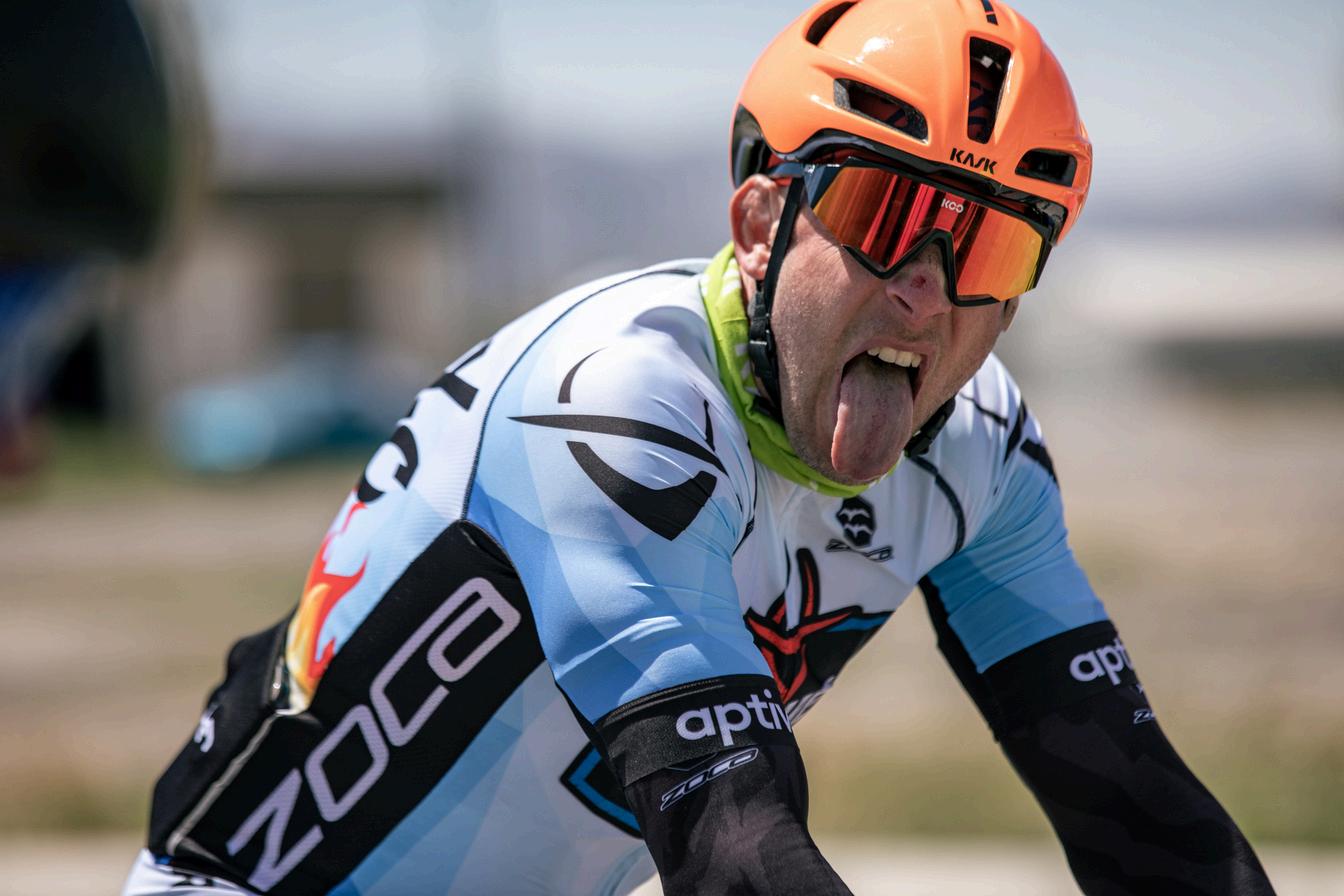

“We believe anyone can be ordinary, but we all have the power to choose to be extraordinary.”
- Scott MacGregor
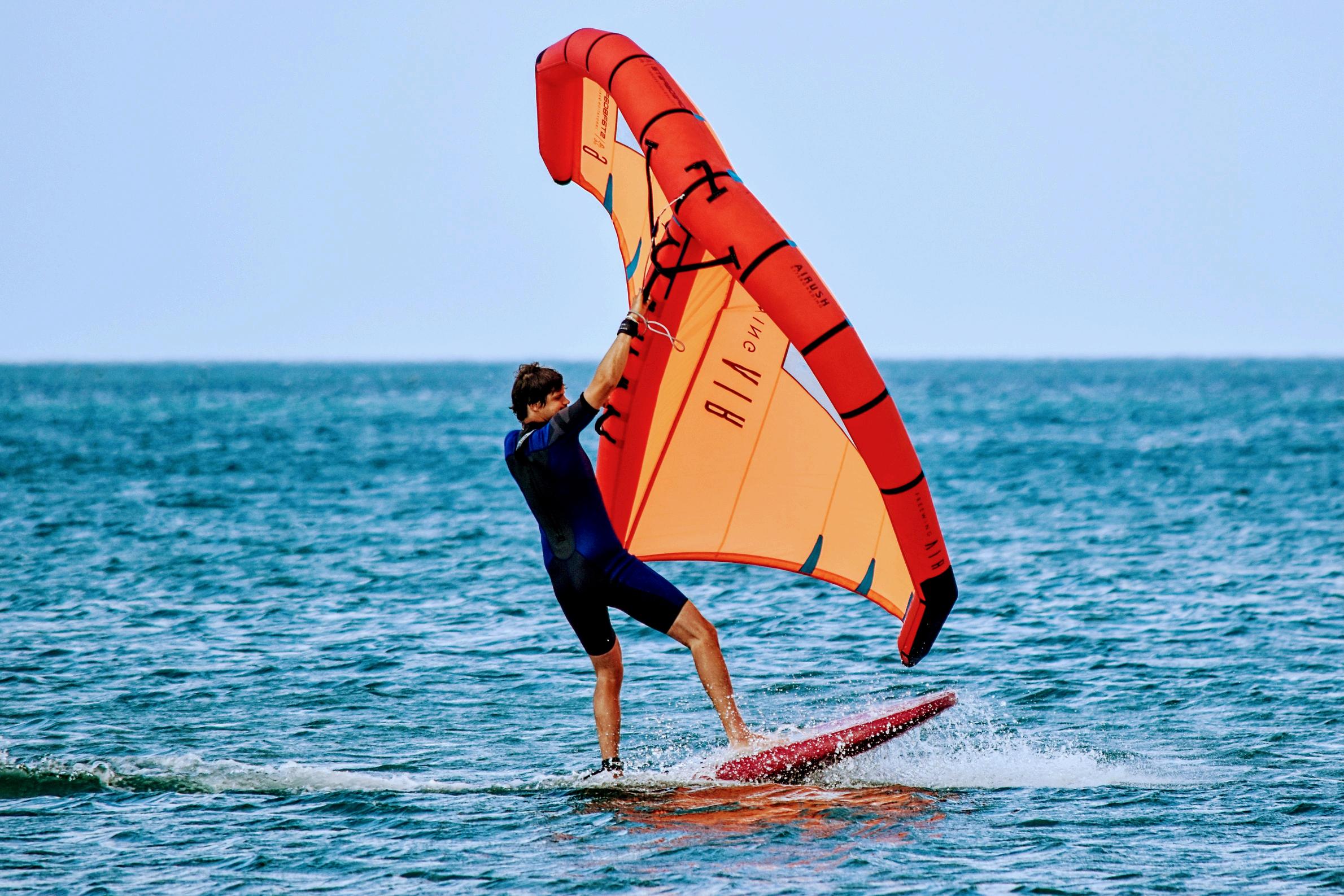



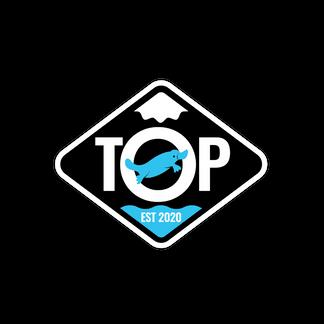

James: It’s impossible. Anybody that's trying to achieve balance 100% of the time is delusional. In fact, to become great, you have to become out of balance. The secret and the key is to not stay out of balance for so long that it's disruptive, and also to communicate these imbalances with your loved ones and figure out what the benefit or bonus is because of these sacrifices And then come back into balance for periods of time
You hear extremes in my stage presentation, in our documentaries and in the books, but these are snapshots of an overall picture and moments of being out of balance. What you don't see is time with my daughters, moments with my son, incredible times with my wife. Family vacations, dinners on every Sunday, game night, you know, all these things that we do. I don't post everything on social media. People don't want to see me playing cards with my kids, you know what I mean? They want to see me
suffering, riding my bike, going up a mountain, all these things. And so again, be careful. What you see on social media and the full big picture is of somebody's life entirety are not the same. But in order to be great, you have to come out of balance.
And man, controversially I'm going to say that, and not knowing the man, David Goggins says you have to be out of balance at all times I don't believe that He is an example to me of someone who's out of balance and has stayed out of balance, and I don't think that's healthy. I totally respect what he's done, and who has become, and the iconic figure that he is. But I do not resonate with how he does what he does. I believe you can be exceptional, you can be world class, the best, still have a loving relationship with your wife, still have incredible children, meaningful relationships with friends. I golf a ton. I enjoy great food and I do incredible vacations I have a very balanced, balanced lifestyle
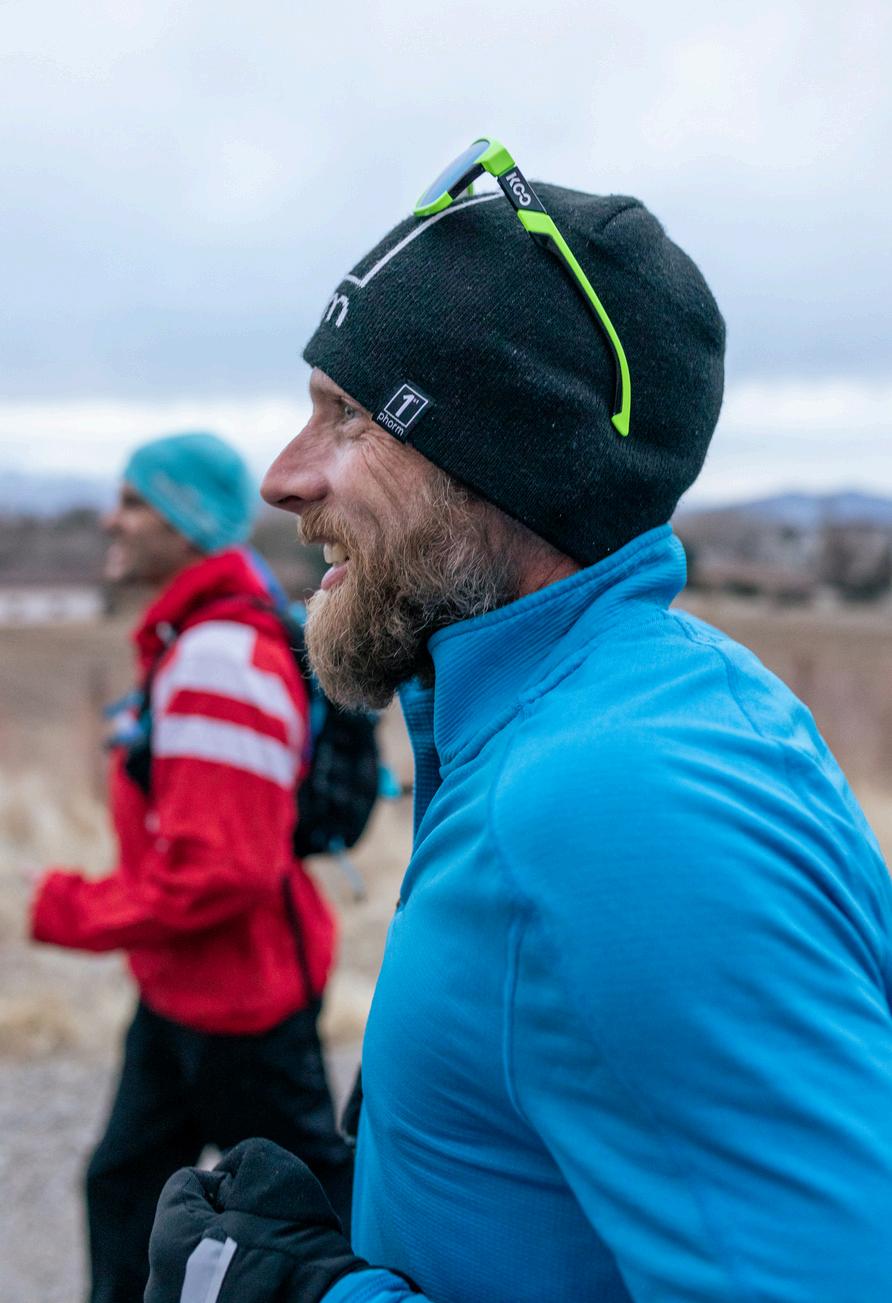

Are you a good golfer?
James: I'm a 4 handicap
What, how often do you get out?
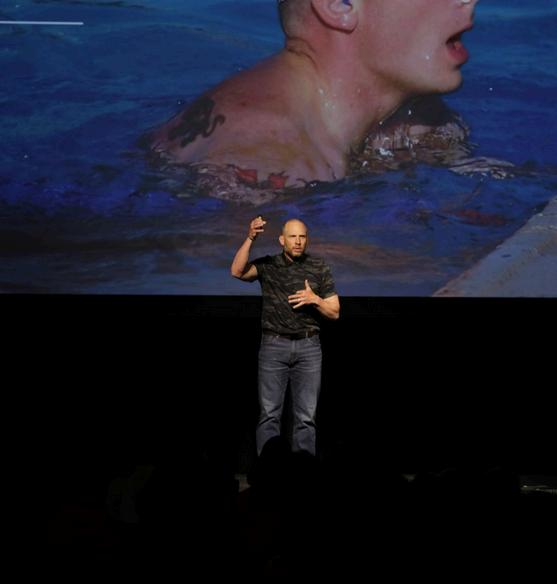
James: This year's been unique because of the amount of my speaking and some physical goals and health recovery things that I'm doing But usually, I'll play about 30 rounds a year. In fact, I'm doing an expansion on my house right now because I love it so much. I'm building a golf simulator room so that I can play 18 holes in 45 minutes. I love it and work on my game. In fact, for my 50th birthday next year, I'm going to Scotland for a week to play all the old courses.
Oh, phenomenal. Enjoy! What strategies do you use to maintain motivation and focus day after day?
James: Motivation is crap and discipline’s a lie. It comes down to systems and protocols that turn into habits and routines Motivation is a spark and it's great from time to time But if you're relying on motivation, it is a pure path and recipe to failure
Totally agree. How has your mindset evolved from your wrestling days to becoming the Iron Cowboy?
James: I attribute my mindset to my wrestling days, my upbringing, challenges that I had. Glimmers of greatness that I had early on, understanding how powerful the mind and the body is and then just having built a war bunker of mental toughness through all those experiences But, I believe my journey started even before
wrestling Before my wrestling days I wasn't old enough to get a paper route and I grew up in Calgary, Canada where the winters are freezing And so I convinced my sisters to sign up for the paper route And then I was motivated by a five-year gold watch that they would give you if you delivered papers, and the mental toughness to get up at 3:30 as a 9 to 13 year old, whatever five years is. A 14 year old kid throwing papers in sub-40 degree Celsius weather is mentally grinding.
I mean, I don't know many kids that do that. And so really that's when I started to develop my mental toughness And I can't tell you the disappointment I had when I got the gold watch and realized it was gold plated It was probably a $15 watch
Wow, you certainly earned it. What advice do you have for people wanting to develop mental toughness and to potentially achieve what they think of as impossible goals?
James: Yeah, you have to get out of your own way You have to start, you have to get uncomfortable The question I ask people all the time is, “When was the last time you intentionally became uncomfortable?” And that's what my mind, and Sunny's and our family's life has been. We do this on purpose. We intentionally don't choose the path of least resistance. Man, I don't think it's by chance that we have five incredible kids. That's not by luck. That's not by chance. We have five amazing kids and it's because they've had a front row seat to chaos, confusion, suffering, pain, failure, but also love, connection, community and togetherness

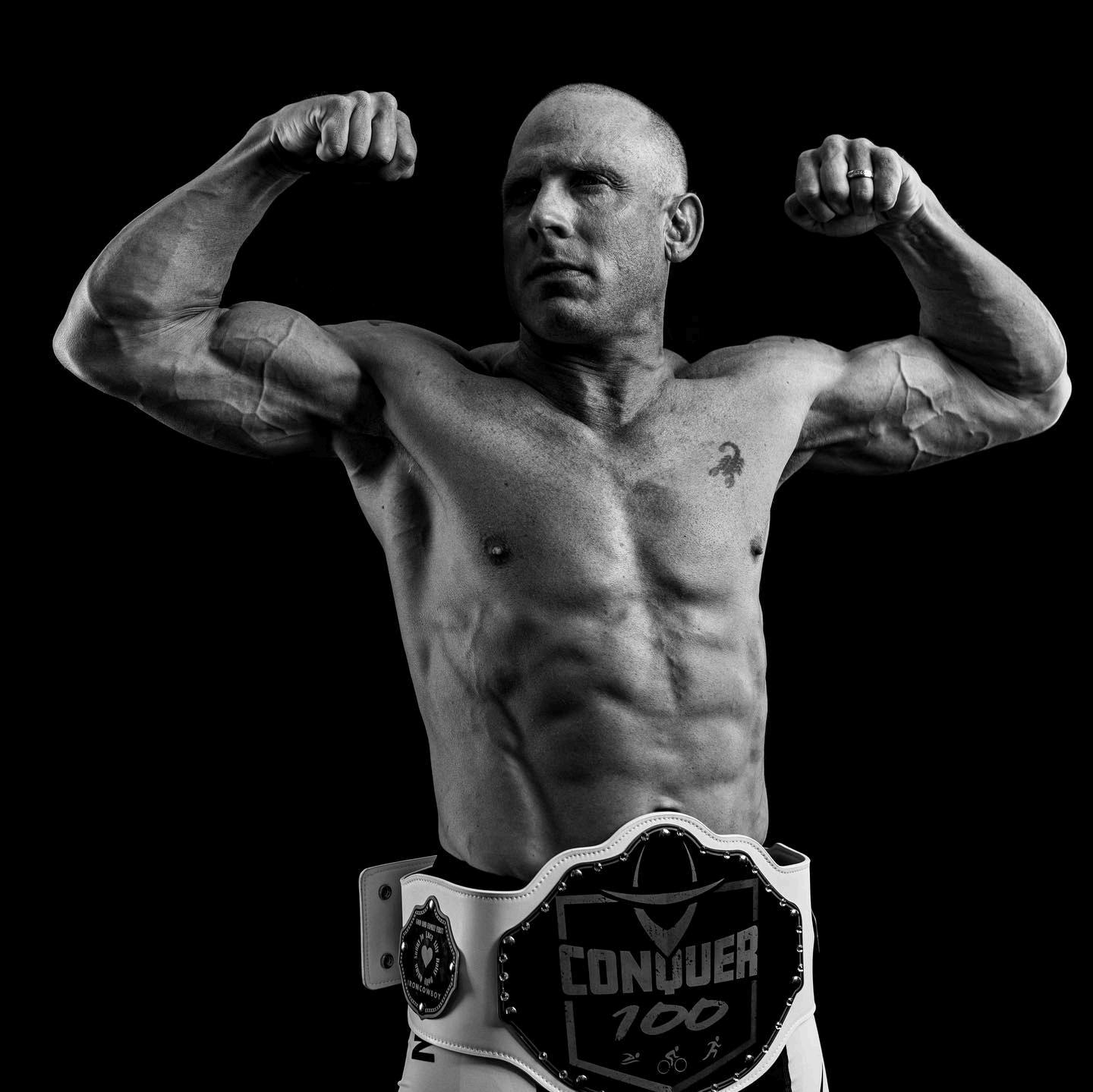
So lastly, what's next for you?
James: Give people hope. You know, I'm walking around watching people just hopeless, like lost, confused, beaten down So much misinformation out there I really want to help people achieve whatever their version of what we did is And it's one stage at a time It's one book purchase at a time It's one documentary viewing at a time It's one article at a time. And then you know, I joke and I'd be like, “I want to be the first person who's 100 years old to do an Ironman.” And if that's the case, then I've done an incredible job with longevity, health, and happiness continuing to live the principles that I believe lead to a great life. I just want to experience extreme levels of peace and joy, family, community I'm going to be a grandfather in July and I just really want to enjoy it I want to play some golf rounds I want to continue to do hard things and just live a purposeful life filled with passion and joy with the people I love the most
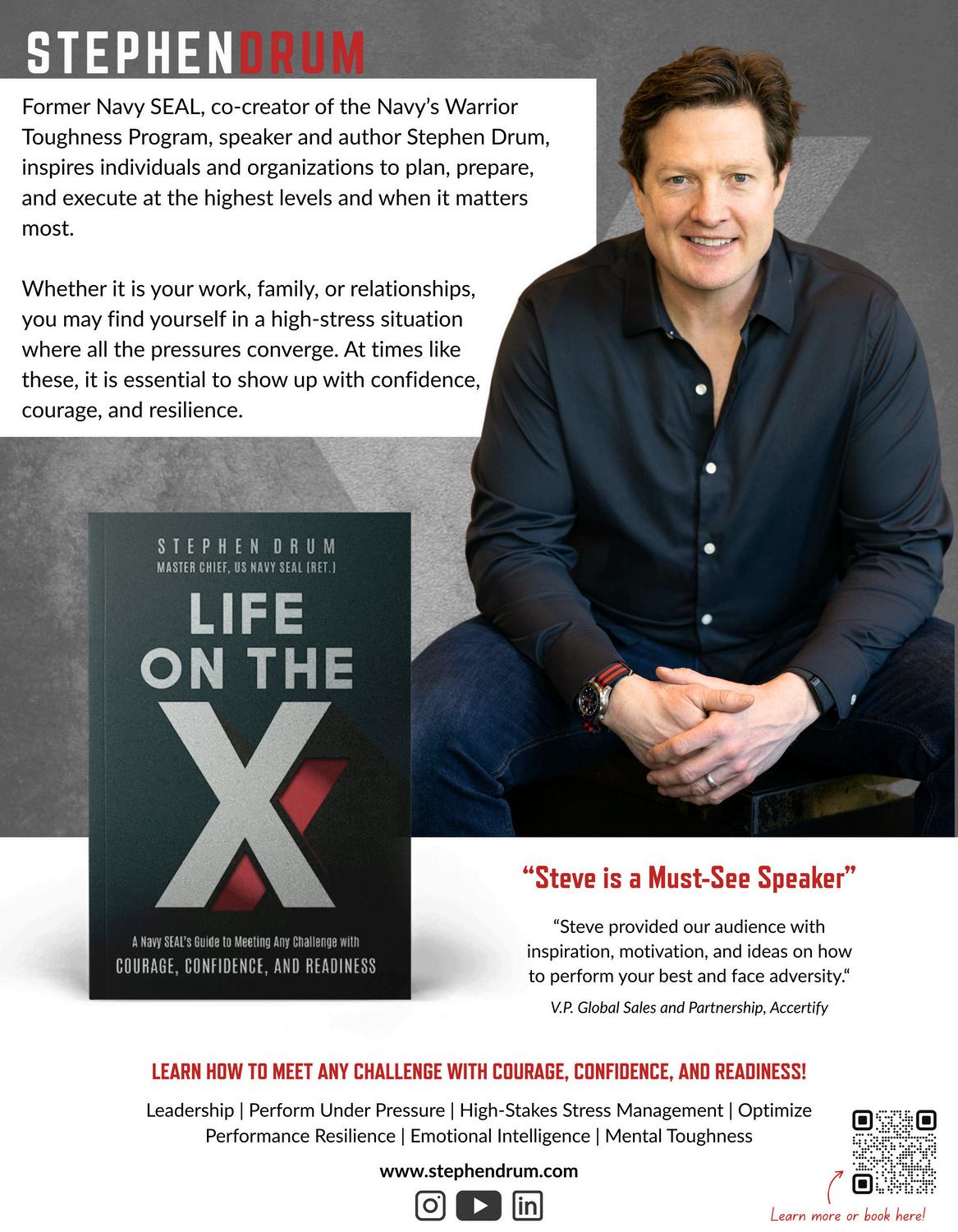


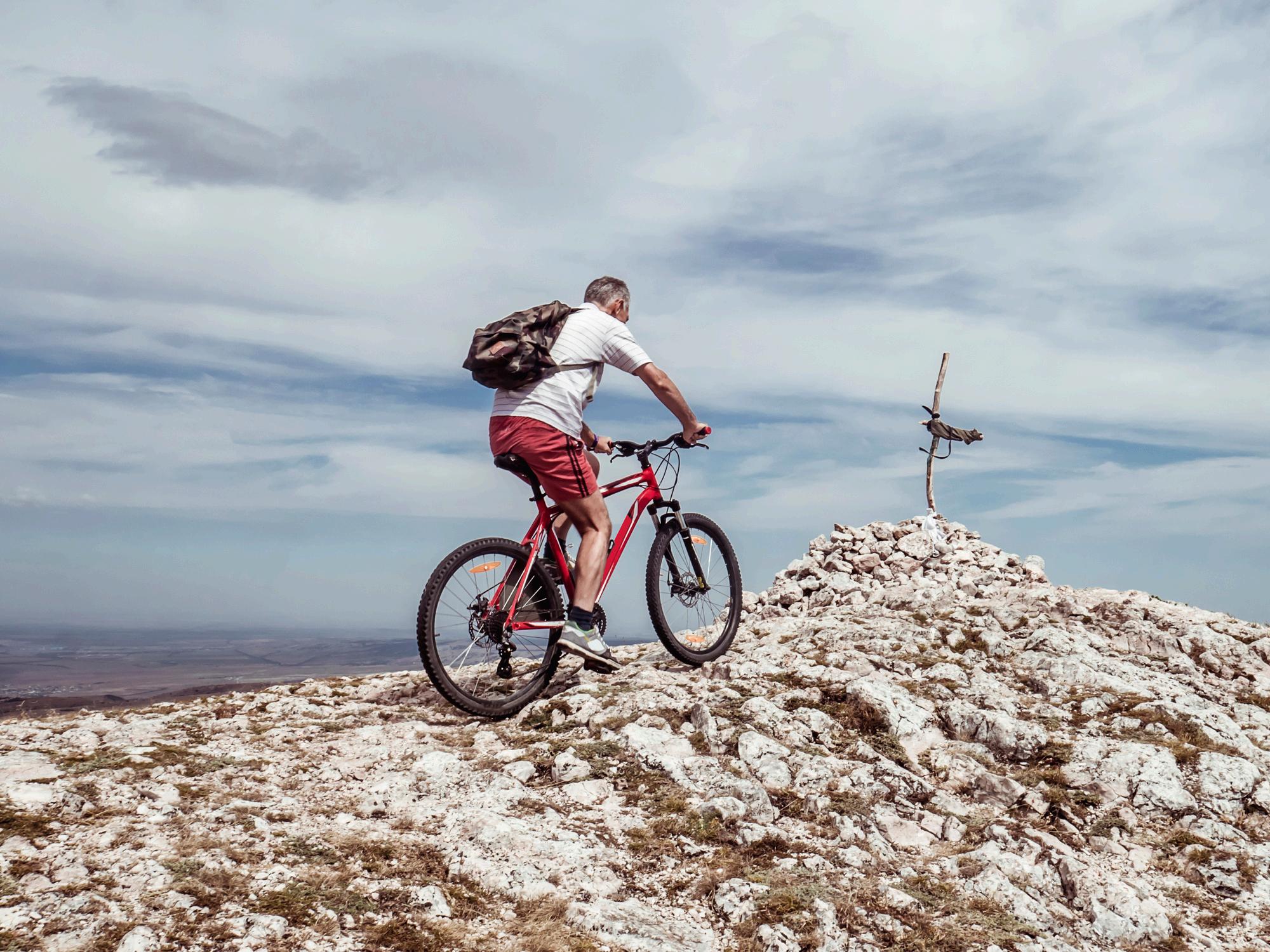


“This book is a must-read for anyone looking to understand how being an outlier can lead to innovation, inspire leadership, and reshape industries.”
OM Staff pick-Scott

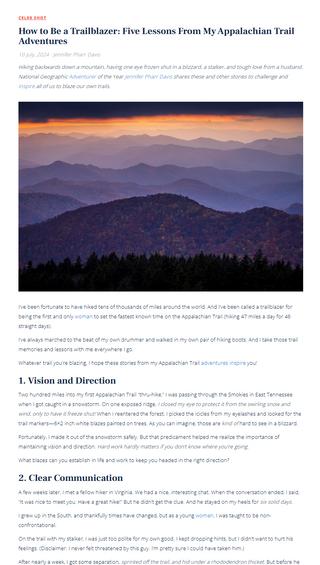



“Jennifer’s story will inspire anyone daring to forge their own path, reminding us that resilience, vision, and adaptability are the true markers of a trailblazer.”
OM Staff pick-Victoria

“This a powerhouse anthem that celebrates fierce female grit, making it the perfect soundtrack for anyone daring to lead, defy, and redefine the rules.”



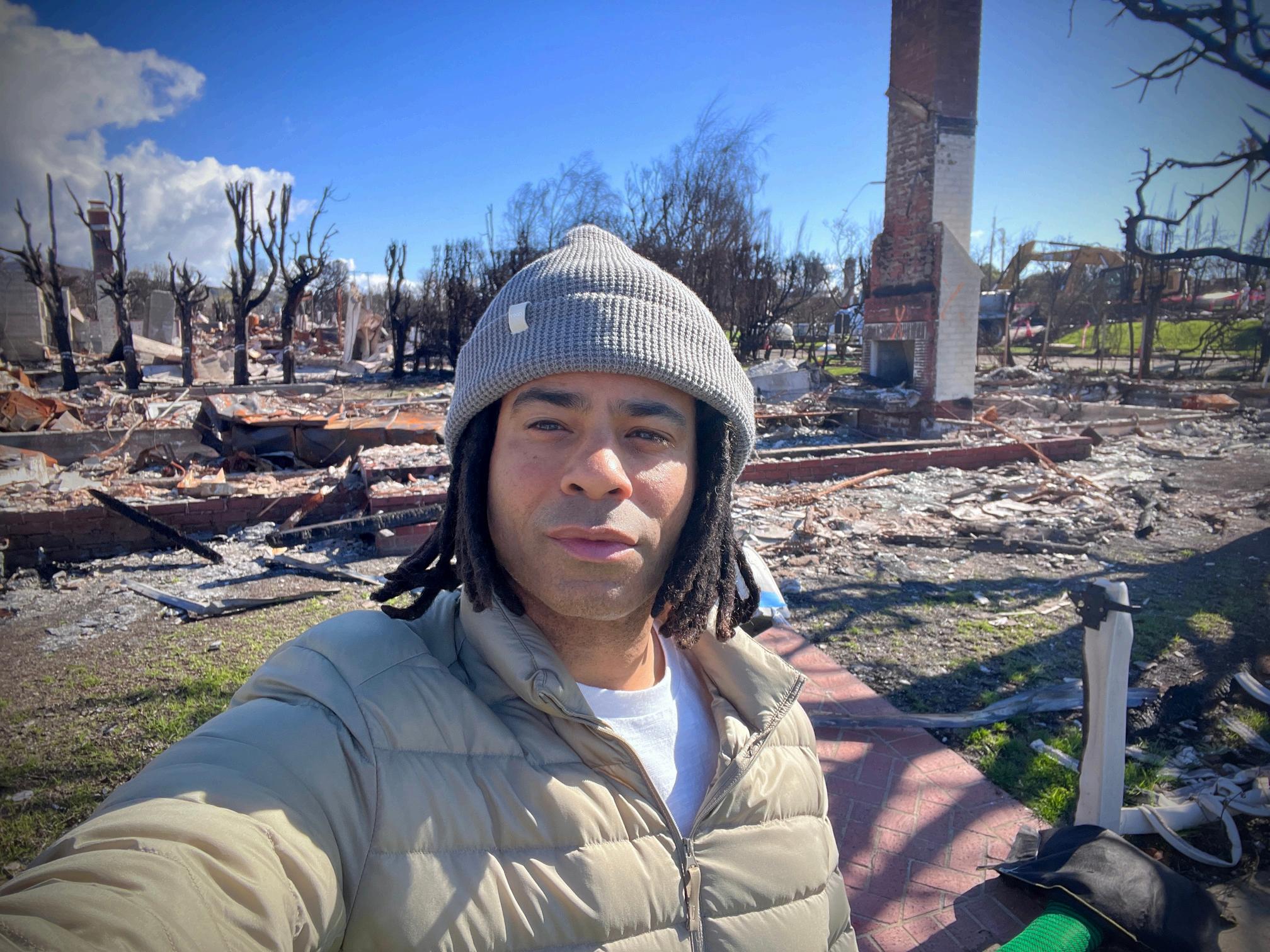
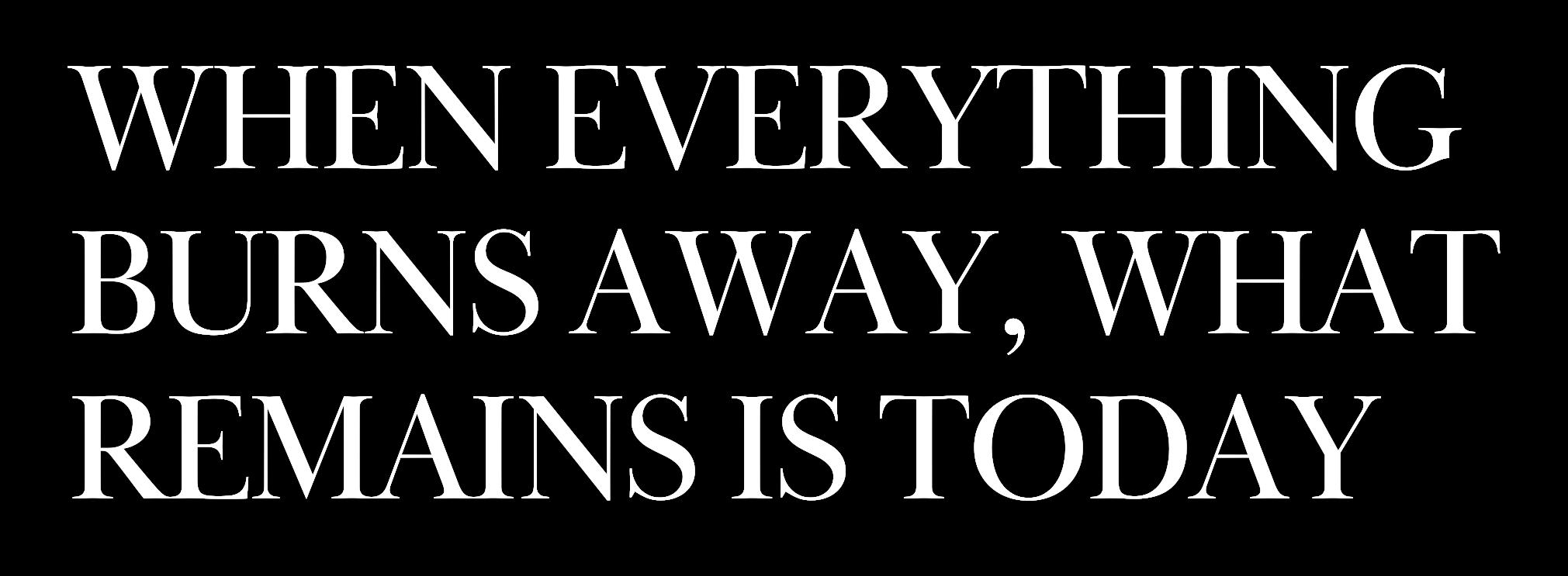



In January 2025, wildfires tore through our Los Angeles community of Pacific Palisades and took our home with them. Everything we had built was gone.
The Christmas presents we had just opened Old family photos that were never digitized The books we read to our twins before bed The kitchen table where we had dinner and hard conversations. The wall where we tracked their growth in pencil.
All of it, gone.
Before the fire, I was like most people doing everything they can to make great things happen
Always thinking a few steps ahead I'd written a book called Stop Living on Autopilot and was planning the next one We were going to renovate the house. I had a plan. The kind with bullet points, timelines, and "somedays."
Then the fire hit. And the plan didn't matter anymore.


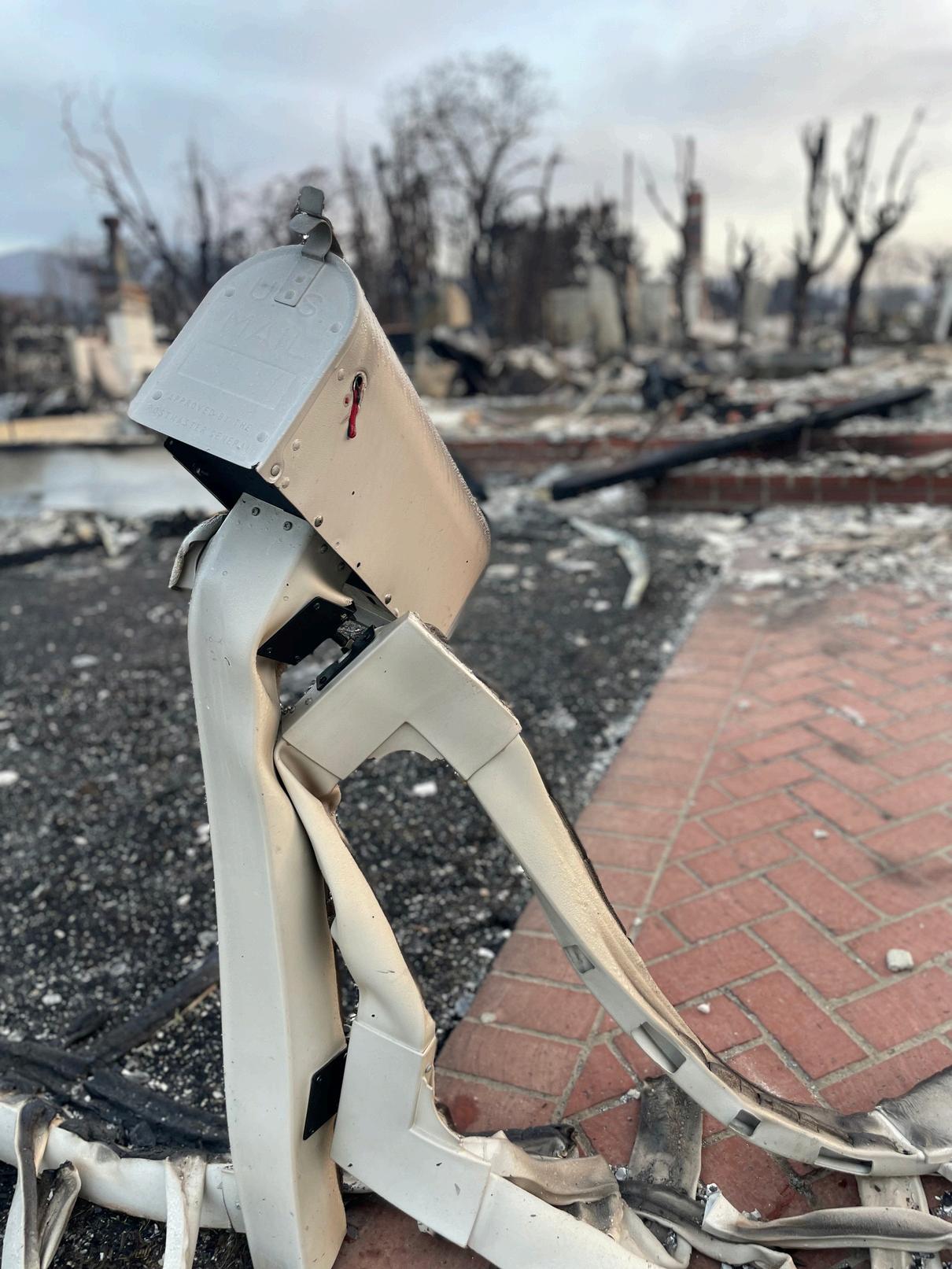
When you lose your home, everything you hold dear, and the foundation of your family's life, you don't get to think in years or even months. You think in hours.
Where are we sleeping tonight?
How do I make sure my kids feel safe today? What's the next move?
Our eight-year-old twins were scared My wife was devastated I was angry There were tears, sleepless nights, long silences where nobody knew what to say.

There still are And the truth is, I didn't have some deep insight or silver lining. I just didn't have a choice.
I couldn't think about next month or next quarter. I had to think about breakfast. About clothes for the kids. About creating a sense of safety and peace in a world that had been flipped upside down I had to ask myself what success looked like today And sometimes just for the next hour
Ironically, I'd been coaching people on this exact idea
long before the fire What if you stopped obsessing over five-year goals and just focused on winning today? Not some vision board version of life. Not your personal brand. Just today. Define what would make it a win. Pick the essential things that matter Take action
However, it always felt a little too simple A little too "lowtech" to actually work And then it became the only thing that did
In those first chaotic weeks
after the fire, I'd sit with a blank page each morning and ask myself: What would make today a success given where we are? Often, the answers were heartbreakingly simple. Call the insurance company. Find a place to stay for another week. Make the twins laugh. Small wins that kept us moving forward when forward was the only direction available
There's something brutally clarifying about disaster You don't get to perform You don't get to impress You just have to show up. Fully. Right now.
The fire didn't just burn away our home. It burned away fear.
For years, my worst fear was "losing everything." That fear fueled the planning, the saving, the doublechecking But then my worst fears came true, and I actually did lose everything Yet I was still standing My family was still here We were hurting, but we were together.
One day at a time.
That's when I stopped waiting to publish The 1-Day Method. I'd been sitting on it. Waiting for a publisher to tell me it was time Waiting for better conditions
But the truth is, there's no such thing as the right time There's just now So I put it out in the world. Not because everything was perfect, but because everything wasn't.
The core of The 1-Day Method is simple: win today. That's it. Not your five-year plan Not a manifestation board Not your personal transformation arc Just today
The method includes five daily actions One of them is "Connect" Real connection Not a text. Not a comment. An actual voice. A call. A moment. That's what saved me. Friends who called, showed up, and didn't let me hide behind "I'm fine."
I watch my twins now in our temporary home, building forts and routines out of what we've got. They're not really worried about where we'll live next year. They care about what we're doing tonight. The game we're playing. The story we're reading. They're not waiting for someday. They're in it.
And maybe that's the real lesson We're sold complexity Productivity systems Long-term plans Morning routines stacked like Jenga towers But maybe it's simpler than that
What if it's about today? Then tomorrow. Then the next.
What if extraordinary lives


aren't built single days deeply felt, and bravely faced?
I look at my life now, still messy and still rebuilding, and realize there's a strange freedom in starting over
different kind of power in today Not the power to control the future, but the power to be fully present in what's happening right now And oddly enough, that presence creates its own kind of momentum
earn that e. But life doesn't ask for permission before it teaches you And when everything burns away, what remains is today Make it count Because today, fully lived, becomes tomorrow's foundation, whether you're rebuilding a home or a life.
“When you stop chasing someday, you find a different kind of power in today.”
-Antonio Neves
*Antonio Neves is the author of “The 1-Day Method” and creator of The 1-Day Method™ Planner, an international leadership speaker. He helps individuals and organizations achieve breakthrough results through focusing on what matters today





‘emout(liers)...


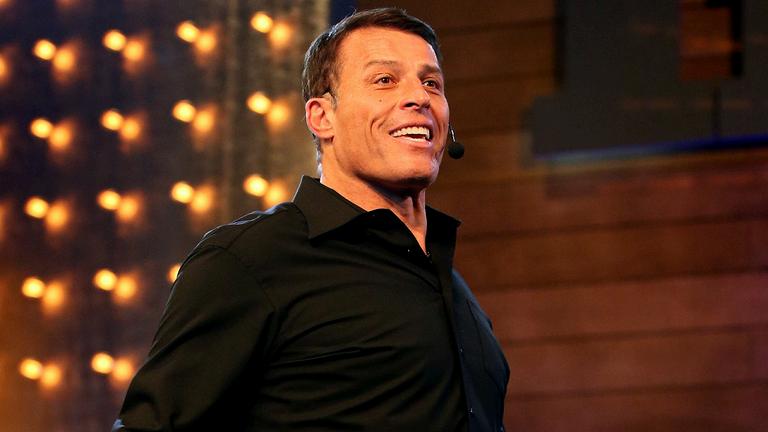
Tony Robbins

Meet the dreamers, the doers, and the visionaries who are living proof that the most extraordinary lives are often built on the foundations of the unconventional. Support these four incredible outliers who are redefining what it means to truly live an outlier life.
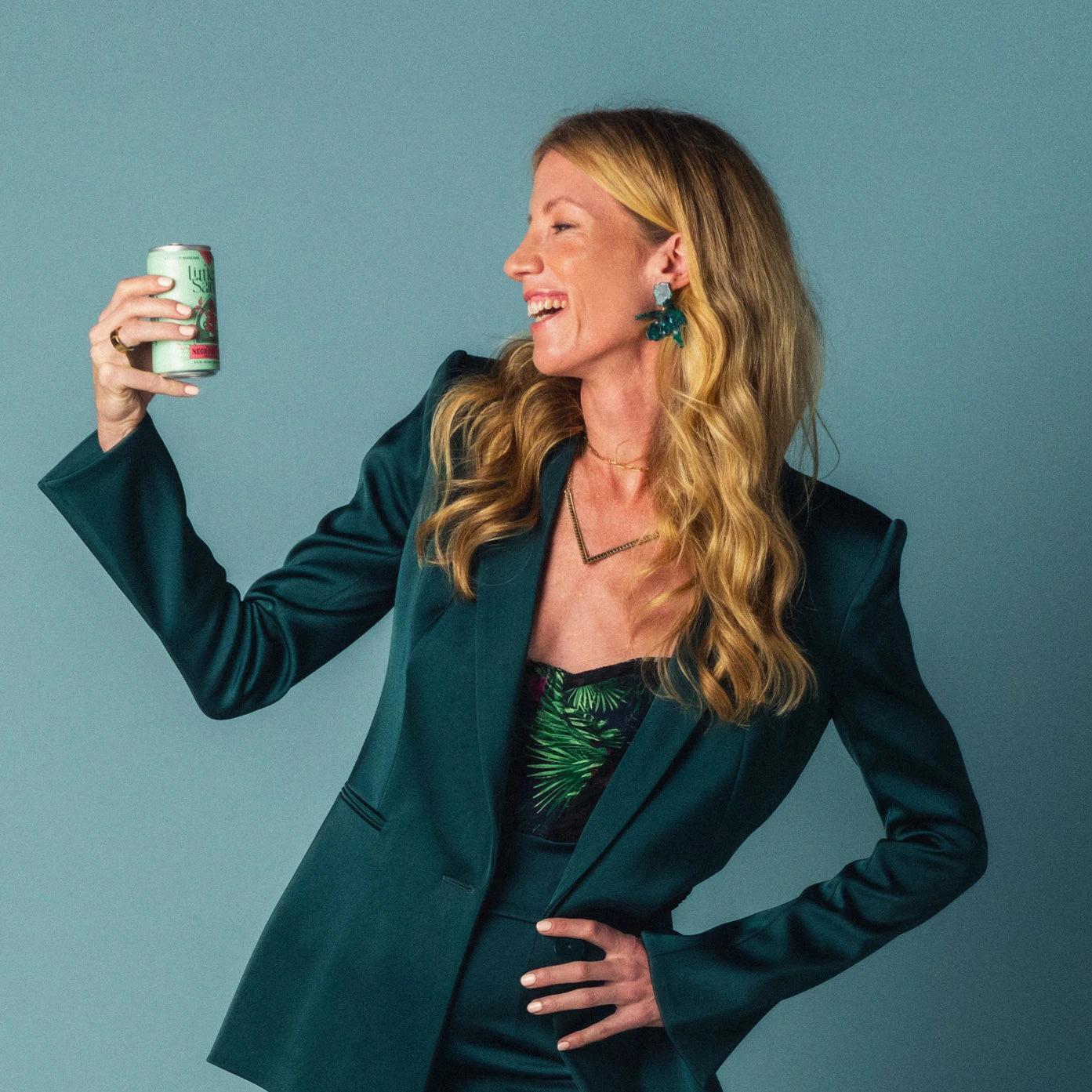


MEGAN KLEIN

Megan, let's start with you kicking off Season 16 of Shark Tank. You got three offers, turned them all down. After the show, that proved to be a pretty wise decision. What was that whole experience like?
Megan: It was wild and really fun. I pitched them in June 2024, and the show aired about four months later. And I really wanted to make a deal with Mark Cuban. I was like, "You know, Texas is our next state after Florida that we're going to go after "
I know he does a lot of very clinical stuff in the health space And so that was my goal when I went in there You need to memorize a 90 second pitch And I am not good off the cuff.
I was like, I did not prepare for this. You know whatever you’re getting is, like, coming straight out of my mind. But, that's the deal with Shark Tank. So you work with a producing team. You write your own 90 second pitch, and then you just have to rehearse it
So I was nervous about getting through that That was the only thing I was nervous for And then once that was done, I was like, “Oh, I’m fine, because I know my numbers ” And then once the 90 second pitch is done, then the sharks really start firing real investor questions at you.
And all I felt like I had time to do was react. I think I blacked out some of it. When I got off, I was like, “Oh no, I barely said anything.” And they were like, “You
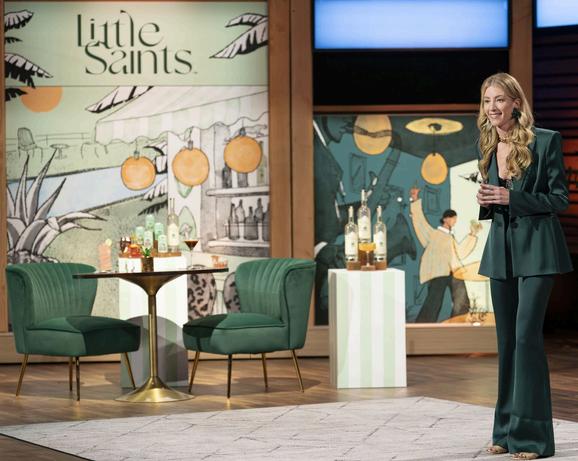
were out there for 45 minutes,” which felt like five
They were valuing your business at a fraction of what you did after the show. Tell us a little bit about that.
Megan: Yeah, exactly. At the point that I filmed the show, we had $5 million in trailing 12 months revenue. Right now we have like $13 million, something between 13 and 14. So we've grown a lot. But at the time it was $5 million We were growing quickly and I was raising at a $20 million valuation I just did a little safe round
I came in asking for $500,000 for 5% of the company So I was giving them, you know, a Shark Tank discount I was giving them a 50% discount to what non shark investors were getting in the market.
People with that amount of awareness and customer trust, you're going to give them a premium. So I was telling them that. I was like, “Listen, 50% is a really good discount, especially at the rate we’re growing.”
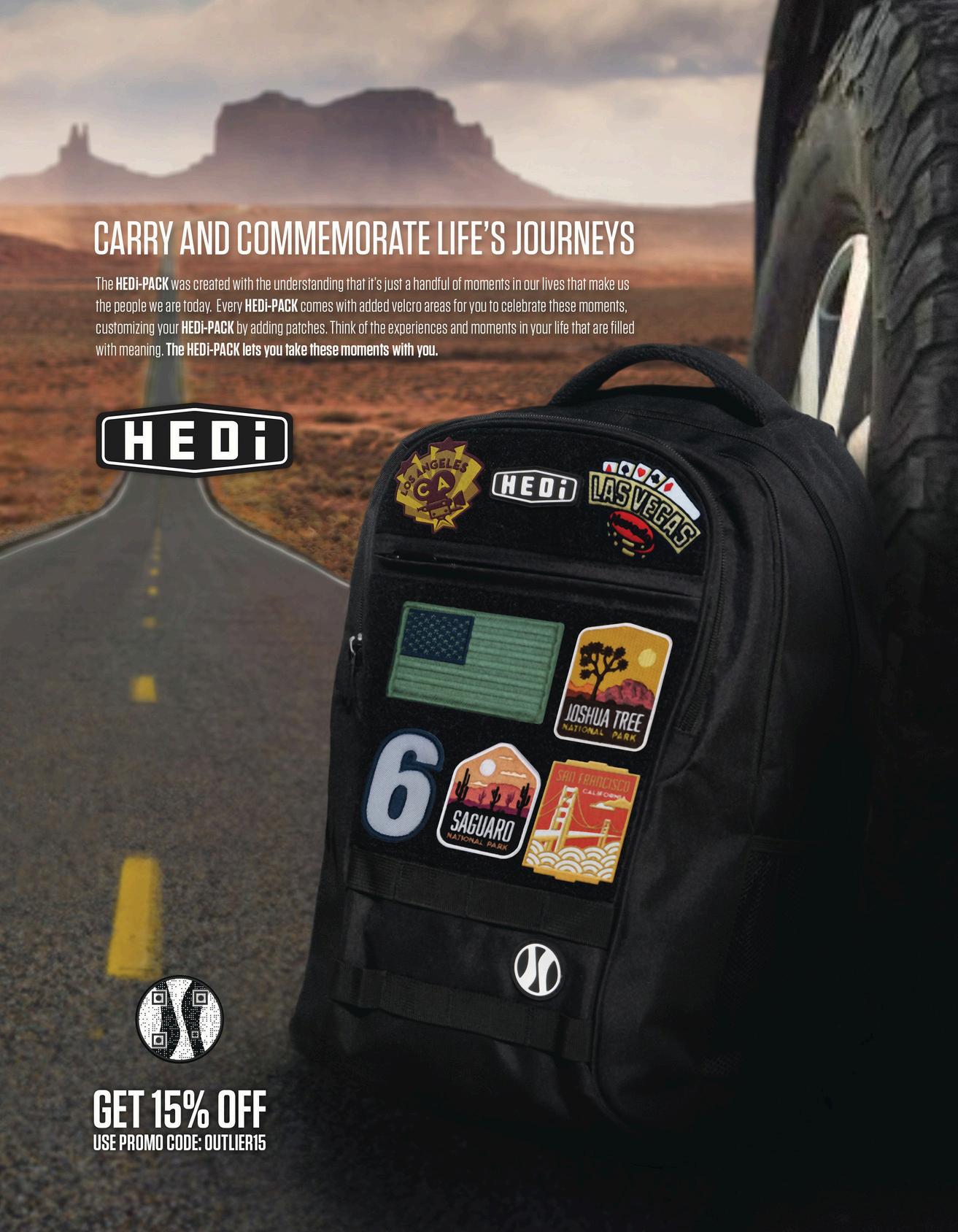
We grew 600% year over year and they didn't want to give me that. Rashawn Williams, who is a new guest shark, he was great. He knows a lot about beverages, he's invested in beverages. And he offered me a five million dollar valuation I was like, "Why would I do that?"
Why would I give you a one times trailing revenue when the month that I pitched, we had our first profitable month We've had a few profitable months after that That's like punishing me for good work. So I said no to that one.
Kevin then offered me a three and a half million dollar valuation. I was like, "That's a no, why would I do that?" And then the two of them came in. Kevin and Rashawn came in at a $5 million evaluation together And that one I mean, listen, they're great business people
They were very convincing I had to take a second and sort of put my hand on my heart and check in with my intuition And then I realized I was like, no, I still cannot do a $5 million valuation And so I'm really happy that it worked out that way.
You know, I was bummed to walk off the show without a deal, but now, I was able to close a round of about $900,000 at a $20 million valuation, right before the show aired. And now that I’m trying to raise Series A, investors would have been like, “Well, you’re an idiot. Why would you have taken a deal for one-time-through trailing revenue?” And then that would have set an anchor for everything moving forward And so I'm really happy I kind of stuck to my guns and that it worked out like that
All right, we're going to pivot back to early years, but we're not going back to childhood here. You, my friend, are a smarty pants. You graduated magna cum laude from Boston College. You graduated with honors from Fordham Law School. You got your MBA from the prestigious Kellogg School at Northwestern.
And you took time in between each of those, so they were pretty planned and intentional. Did you get what you hoped you would get from all those different experiences?
Megan: Yes. I would say college was great. You know, I don't really know what I was doing in college I was a great partier in college I learned a lot of skills that have helped me just really understand the party mindset for Little Saints
I still don't really know why I went to law school My parents would be like, "Well, you're really good at fighting. You're really good at negotiating, so you should go to law school." And I wanted to do something good for the environment.

That's the only thread throughout all of my random careers I really love nature I want to inspire people to love trees, and love nature, and treat the planet better And so I went to law school wanting to do something environmental But then law school does not teach you how to get the right job. So I went to Chadbourne & Parke, which is a big New York law firm. My office was in 30 Rock, and I did, like, energy on the main, so I was doing wind and ethanol deals.
Now, I see that that's not really environmental at all, but at the time, I thought it was. But it was 2006 to 2009. So then by 2008, I was doing bankruptcy litigation because there was no energy M&A And so I did that for three years, and then I was like, “Oh my God, I’m, like, contributing to the demise of the world with this Like, what am I doing?” And so I pivoted, and then I went to work with Earthjustice So then I did real environmental nonprofit law in New York for two years. And I fought coal plants in Tennessee, the TVA.
I helped one of the senior attorneys start the factory farm practice. Factory farms on the east coast were polluting the air and the waterways. I also worked on the fracking team

worked at a little law firm in Chicago for a bit to learn small business law
My family are all in real estate, and everyone's an entrepreneur My dad never had a normal job, and so I was kind of like, "What am I? This doesn't feel right to me " And I wanted to be an entrepreneur, but like many lawyers, I felt like I had no business skills.
And so I was like, "Oh, my God, what do I do?" I was living in New York. I moved to Chicago. I started my own little law firm. I
And then I started my own small business law firm And that taught me a lot about small businesses I was obsessed with vertical farming, farming indoors There's going to be 9 billion people on the planet in 2050. How are we going to feed them if most of them are living in cities?
One of the biggest indoor vertical farms in the country at the time was called
FarmedHere. They were located in Chicago. And so I basically, I just stalked them until they hired me. And they were like, “Well, we don’t have any money.” I’m like, “I don’t care.”
I have a law degree I know that they have a rent lawsuit against them, and they were having some financial trouble So I helped them get out of their rent lawsuit and I helped them raise some money I was just working for equity for about nine months until we raised our Series B.
And then they hired me. I became president of FarmedHere. That was kind of baptism by fire. I learned business just by doing it. I just made myself useful wherever I could.
I started out with law, food safety, and HR stuff And then I moved to, you know, sort of doing more of the business stuff But one thing I realized was that all of my business partners there were men And not to make this men versus women, but I would be in fundraising meetings and no one would sort of look at me
I thought, “Well, this is because I didn’t go to business school. But I run a business. I understand business.” But if I'm being honest, I did not really completely understand our P&L. And I would notice that my business partners had language that I didn't have.
And I was like, "All right, well, I'm going to be the best business person I can be " Then I got my MBA I did my executive MBA at Kellogg, while I was running Field and Farmer, which was an offshoot Long story short, we shut down the vertical farm because it was not financially viable
We created a plant based foods company that still exists today. The company is called The Fresh Factory. And we used to have a brand which I ran, which was called Field and Farmer. So we made value added products Like, we took local produce and we made it into juices, dips and salad dressings
So while I was running Field and Farmer, I got my MBA at Kellogg
So you are now a trailblazer in the red-hot, non-alcoholic space. Tell us why you started Little Saints and your scrappy beginnings in Detroit, driving Baby Mint around. And people may need to understand what Baby Mint is.
Megan: I wanted to do something that I felt really personally passionate about And also, you know, when I started Little Saints, I was 42, and I realized like, “Oh,



okay, I always thought I was going to get married and have kids ” So I had some savings.
I had been not so happy with Field and Farmer for a while. It was a beautiful company. I loved what we did, but it wasn't a total fit with my business partners on either side. And I was like, "You know, I could birth something."
I could birth a brand And I wanted to just do something that felt like, number one, something that was actually filling a real need on this planet, and number two, something that I felt personally passionate about And so one of the sort of lingering kind of doubts I'd always had, or something that really gnawed at me, was my alcohol consumption.
I've always considered myself a really healthy person. I have a really serious morning routine. I wake up, I meditate and do yoga every day. I’ve done this for years and years, 15 years maybe. At this point I was eating really healthy.
I'm pretty witchy, so I had great mushroom supplements, and was so
healthy during the day And then every night, not every night, but probably four or five nights a week, I'd meet a friend for a drink or sometimes I would have a glass of wine at home.
I would get kind of drunk on the weekends, and during the Covid pandemic in 2020, I was living alone, and I was just like, "Oh, God. I drink a lot." I didn't really realize it before because it just felt like it was part of socializing
But during Covid, I couldn't escape just the reality of how much alcohol was impacting my life If I was being honest, it felt like I was using the first couple hours of the morning just to get back to baseline
Like, I felt sort of foggy. All things I just didn't realize before. And then, just to be honest, I've got a lot of alcoholism in my family. I was like, "Oh, I'm thinking about alcohol a lot."
I wasn't getting drunk by myself all the time, but I was thinking about drinking I'd be like, "Am I gonna drink tonight? Am I gonna have one or two drinks?" And
if I would meet a friend out, I would be thinking about alcohol, and I just didn't want that anymore.
So, long story short, I did dry January 2021 for the first time after just drinking a ton in December 2020, by myself, living alone in Detroit. I ordered everything that was out on the market, and there were a lot of beautiful brands that still exist today I still like them, but I was trying to be healthy, and everything was full of sugar There are some brands, certainly, that did have functional ingredients in them, but none were leaning into mushrooms And I've used mushrooms I know the difference between a good mushroom and a bad mushroom.
I got the best stuff to put in my coffee. I know from just experience that this really helps during the day. I knew we should have mushroom cocktails, and there were none. And then nothing had a smell.
The reason we like alcohol is because it's nighttime and we'll smell the wine or the cocktail and that'll signify kind of like, oh, this is a reward This is an adult drink It's night And so nothing had a smell And so that's where I felt like I could be really helpful
And that's when I started Little Saints.
And you started scrappy. Tell us about Detroit and driving Baby Mint around.
Megan: So Little Saints The reason for the trailer was that my goal has always been the same, and that is to be a major part of the evolution of imbibing away from a universe that's only alcohol and
water behind the back bar The back bar is a rainbow of fuels and flavors and just like a whole rainbow of things. So, I was like, okay, we're gonna do a microdose THC edible, and we're going to pair that with the non-alcoholic cocktail.
When I started Little Saints, our canned cocktails had CBD in them, and they've always had mushrooms in them So it was a blend of CBD, reishi mushroom and terpenes, which is the smell And I also had microdose THC edibles, which were very expensive They were like the nicest gummies ever made
I swear They were like 2 milligrams They were shaped like mushrooms. They were margarita and pink champagne flavored. But of course, marketing THC in 2021 was hard. And so I was like, "Okay, I'm going to get this vending trailer, and I'm going to take it around to events, and I can legally sell the CBD mocktails."
We called them mocktails at the time. We call them non-alcoholic cocktails now We could legally serve these canned non-alcoholic cocktails, but I couldn't do the THC at that time And so that's how I was going to build the brand And so I took Baby Mint all over Michigan that summer
I would dress up like the terpene queen. I realized that a lot of people thought CBD got them high, which it doesn't. A lot of people thought reishi mushroom got them high, which it doesn't. And a lot of people had no idea what terpenes were and they thought it was probably part of weed.
And so I would dress up like the ingredients just to kind of tell a story and

make it fun I would tow that damn trailer by myself I know how to hitch a trailer, much to my dismay

We opened at the Movement Music Festival, which is a Detroit staple for techno. It's over Memorial Day weekend. So we launched over Memorial Day weekend, 2021. It was outside this club called Spotlight. I was serving the drinks and I was trying to talk more about the gummies and kind of just serve and sell the CBD mocktails as an afterthought.
And all people really wanted to talk to me about was how much they drank It was the same story I had Everyone was like, “I drank too much during Covid ” That Memorial Day was sort of the first weekend people were out, and it felt like everyone was like, “Oh my God, I'm so happy to be out seeing people I just drank too much. I don't want to. I don't want to have this much alcohol.” The cannabis part of it felt like an afterthought. Everyone was kind of like, “Yeah, I know how to get gummies. I'm not going to pay a lot of money for a microdose. I'm just going to buy a cheap
20 milligram gummy and bite a piece off of it ” No one really cared So I took the gummies off the market really quickly I mean, they didn't sell for more than a summer I never made a dime off of them.
That was a great lesson. And just like, "Whoops, thank God." That was my only money at the time. But then I would take the trailer around and sell the cans. It was a real kind of culty, grassroots way to grow the brand because some people started begging me to order off the website
You know, if I would do an event in Grand Rapids, but I lived in Detroit, they'd be like, "How can I get this?" And we didn't launch the website until November 2021
That was a great summer I got a lot of great feedback. Sometimes I think I can be a little bit too wordy about the product. And what I realized was that people were just searching for a sugarfree, one-to-one version of their favorite cocktails. So for example, I used to call our paloma, which is our best selling can, I used to call that a plant loma.
And I realized that was just too cutesy and didn't make any sense People were like, “I know what a paloma is I’m going to look at the back of the can, I’m going to see that it has zero grams of sugar, and then I’m also going to see that it has reishi mushroom in it So I know that's good for me, so I'm going to drink it."
So I needed to make it really simple and just say these are non-alcoholic, sugar free, mushroom powered cocktails. So that was just really helpful to talk to so many people.
Where did you get the name Little Saints? I always think it's fascinating. If it were not named Little Saints, what was the alternative? It's like if you weren't named Megan and you asked your parents what was, you know, name number two?
Megan: I always think that Little Saints means a bunch of things Our original tagline was “Your savior is here ” You know, it was like, okay, like we're gonna save you from the prison of only having alcohol and water as something to drink It also is a nod to mushrooms, actually Little saints has been a nickname for mushrooms. And then also during the 50s and 60s, apparently housewives used to refer to their happy pills as little saints.
So it's just kind of like a fun name. Mostly it was that originally we launched with "Little Saints. Your savior is here."
Love it. Where did your love of nature and seeing the magic in it come from? I mean, you're literally a tree hugger.
Megan: Literally Yeah I could teach a tree hugging class I feel like I should do that tomorrow for my team My mom used to take us hiking. I always went on hiking trips with her. She's the type of person that knows the name of every bird and every tree.
Her little office is full of bird books and tree books. And so I would say from my mom, definitely.
Tell us about your philosophy on marketing. It seems like business as a whole, it seems to be around having fun. That seems to be a really important component.
Megan: One of the values of the company from day one celebrating and having fun Because I would say I wasn't that fun actually, in my previous businesses. This is now absolutely the way that we operate and I believe it’s a value that actually produces great financial results.
But originally, it was kind of like, “I've got to live the values of the company.” One of the values is celebrating and just having fun. And in the beginning, the verbiage around non-alc was pretty serious
I felt like people thought that they had to align with the sober movement I'm not sober I take psychedelics, for personal growth And I also like microdose sometimes So I was like, "Okay, well, I can't call myself sober because I'm not " I just don't drink alcohol anymore.
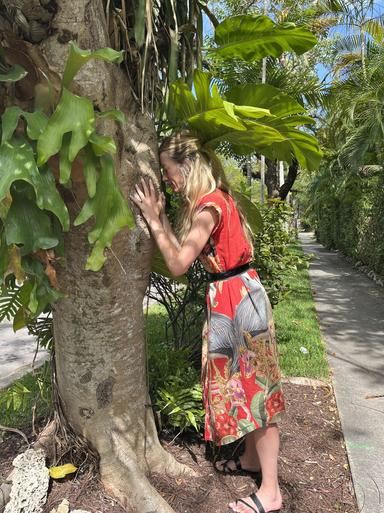
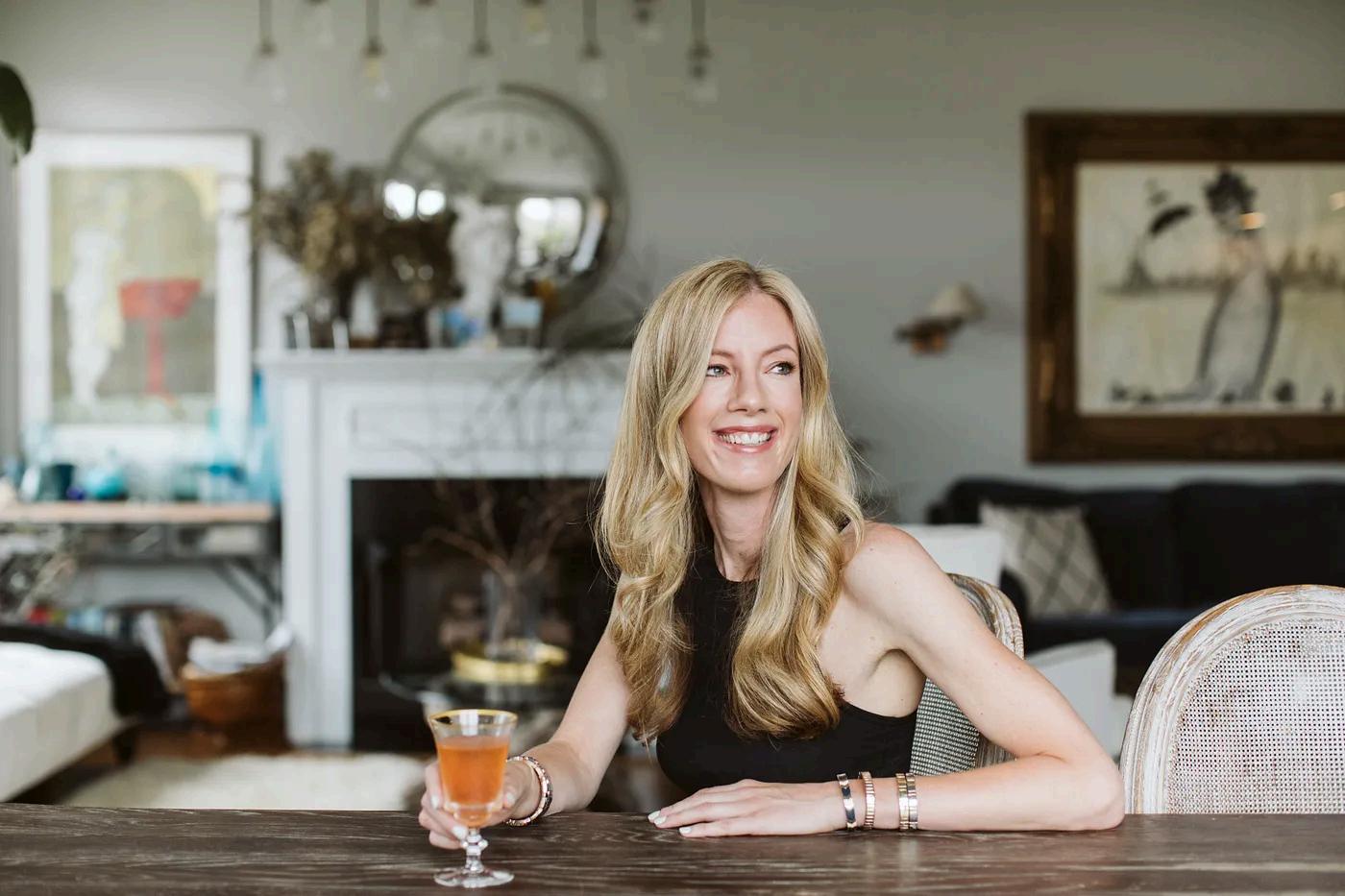
But more than that, I was afraid before I quit drinking that if I quit drinking, I wouldn't be fun anymore. So I was so committed to making sure that I embodied this sort of aspirational spirit, like, no, actually, your life can be way more fun.
And I'm not just going to use those words. I'm going to show it and live it. We still have a small team, but I use the words But more than that, we actually have a good time and I believe that shows through in our creative
If you're not walking the walk, all day long, I think then it's gonna show through in the way that the brand shows up And I think we've done a good job on that. You know, there are many ways that we can improve, but I would say that my team has fun when they come to work and I think that flows through in the creative.
Your content on Instagram is great. I love that you get excited about going to Michael's and buying stuff and putting together costumes and stuff like
that. Megan, when I think about you, I think about you being a very passionate person. How important is it for an entrepreneur to be wildly passionate about what they're doing?
Megan: I think it's essential I don't think you should do it unless you feel wildly passionate about what you're doing I love waking up and going to work every day. And I can say this because I've now run three different startups. I used to love the idea of it, but at the end of the day, if you're not passionate about it, it's just a job and then you're not serving whatever brand you're working for.
You're just kind of going through the motions, especially when you're the sole founder And like, we haven't raised any venture capital Things are stressful, you know, but I love it It's never even a thought in my mind to not give it 100%, but I think if I wasn't passionate about it, I just don't know where the motivation would come from on those really hard financial days.
And then also for your team, if you're not bringing the passion for what you're doing, the team picks up on that too So it's really important for the founder to be passionate and also be keeper of the vibe
It's top down If I'm not showing up and having a good time and really loving what we're doing, then my team is going to leave or it's just not going to work
You are or seem to be very risk tolerant and it seems like you don't overthink things even though you are a smarty pants. That kind of just do it attitude. Is that a DNA thing
or is that learned?
Listen to Scott and Megan’s conversation about this question here:

You've lived all over the place. Milwaukee, Chicago, New York, Detroit, and now you're in Miami. Why Miami?
Megan: My money astrologer told me that Miami would be the best place to grow Little Saints. In February 2023, I was living between LA and New York. I was like, "Oh, those would be the best two cities to start a non- alcoholic beverage brand." I was literally in Airbnbs and shared housing. I was bouncing back and forth and I was kind of like, "Okay, this is not sustainable "
I usually am very decisive, but I could not make a decision on this one And so I talked to my money astrologer who has a Wharton MBA Her company's called Soulful Wealth I was like, "Just do my astrocartography. I want to know where the stars say that I should live."
She mapped it out, and Miami was by far and away number one. Next were Boulder and Denver, and that just didn't feel right. And then the third was LA, and I'd already been living in LA, and it just never really clicked for me I was single at the time, so I moved three weeks later to Miami My business partner, Katie, was our Chief Creative Officer I convinced her to move with me
Jen the astrologer was right It's Miami She said things would feel easier for me in Miami, which they do. And it also was great for business because there's no other non-alcoholic beverage brand with the team based in Miami. And Miami is one of the fastest growing cities in the country.
It's got a lot of things that are complementary to us: people are health focused, people like to party. There's people often traveling here, so they might like Little Saints here and then go back to their hometowns and order it. It's also really fun and Miami is a ridiculous place. It's just great, it's the perfect place for Little Saints.
Megan: We're gonna be a category leader, if we're not already We're just gonna really solidify ourselves as a category leader in the non-alcoholic cocktails and spirit space We’re growing really fast
We grew 600% year over year from ‘23 to ‘24 and we're already on pace to at least 2.5 exit for 2025. So we're doing really well. I think what's next is we need to get on more bar and restaurant menus. At this point, there are still many people that do not order non-alcoholic cocktails and have them in their fridge all the time.
There's room to grow there But the place that I'm really passionate about is getting Little Saints cocktails on bar and restaurant menus The distribution network is not built out right now I've been talking to some of the major distributors that distribute alcohol, and they just haven't wrapped their heads around the non alcoholic space. This means that there's very limited options for bars and restaurants that want to do a non-alc cocktail menu. So we're getting ahead of it. We have this expert mixologist doing a no and low-alc cocktail book, showing how to mix Little Saints and non-alc cocktails and lowalcohol cocktails.
So mix Little Saints with something else We really want to nail that the bars and restaurants, the On-Premise distribution. In 2026 we'd really like to be everywhere we can in Florida and Texas. Those would be our first two states.
There's also still a lot of education to be made. I think there's tons of room in DTC. We just hired a VP of Growth and ECommerce to help us build our long term sustainable strategy
I think there's a decentralization of all kinds of consumer packaged goods, but especially in the non-alcoholic beverage industry, because the truck distribution network is not there. And so I know that there's tons and tons of room for expansion on our online Shopify business too.

Photocredit:MeganKlein’sLinkedIn

So last question. This is the Trailblazer Issue and you've been called a renegade, you've been called a maverick. I prefer outlier. Do you embrace those descriptions?
Megan: Yeah, I'm gonna say the weirdest thing right now, but I'm just gonna say it. Every day, I check in with my intuition and I like to think of my intuition as like the council of the ridiculous. So I have this really good business baseline. I'm always looking at my numbers, I've got my MBA
But then I'm like, "All right, we’re
operating without fear here What would we do today? You know, what has not been done before?"
I think entrepreneurs are channels for the ideas that are out there that are not being brought to life in the way that people want them to be brought to life. I think that is my job. And just being an outlier, you know, just kind of like acting in a way that some people might think is ridiculous, some people might think is too risk tolerant…
I think that's really authentic to me first and then also to Little Saints And you know, if it's not broken, don't fix it So we're going to keep doing it

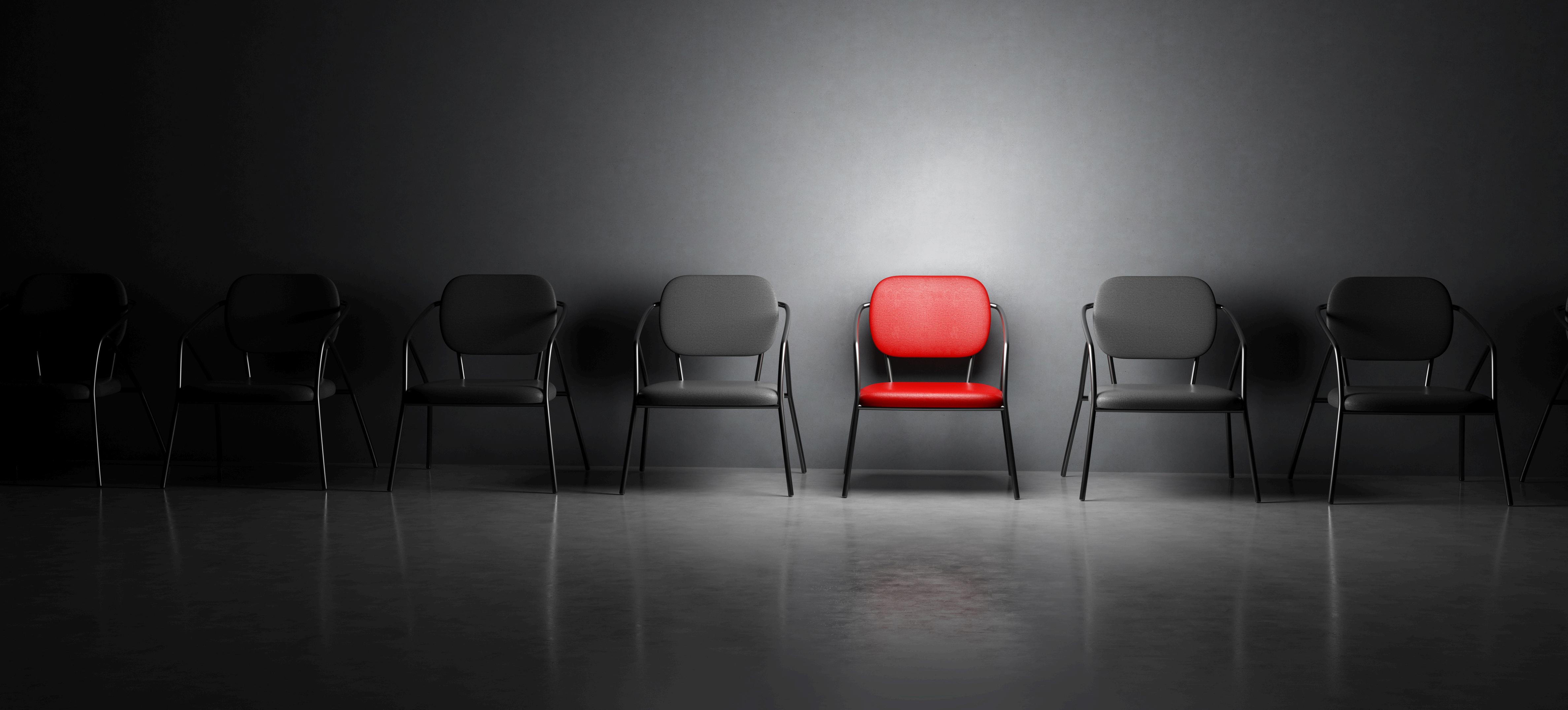


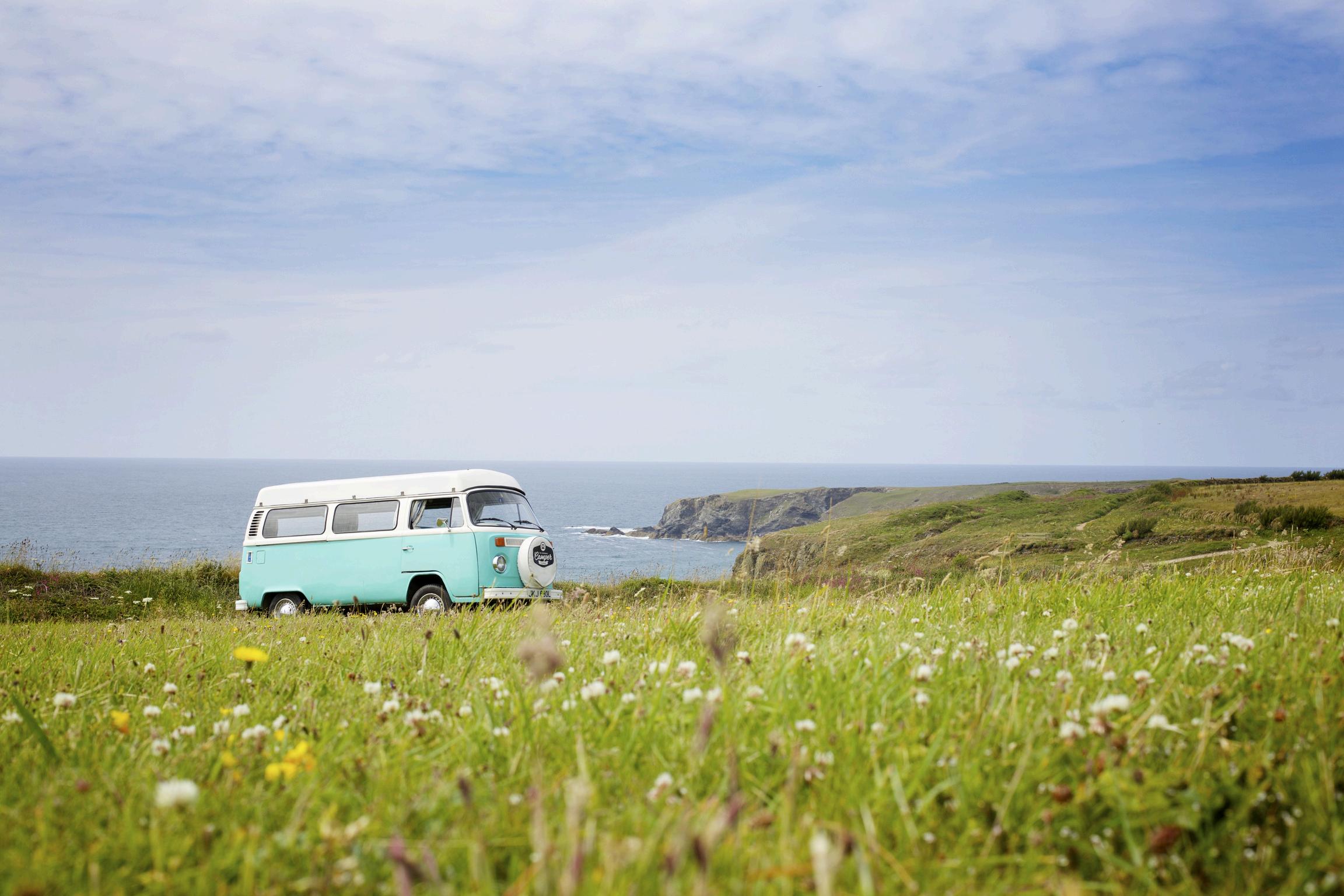



The Outlier Project Guest - April 8, 2025
Active duty United States Marine Corps Captain, Team USA Bobsled Pilot with a goal is to be the first female Marine in the Olympics, Bestselling Author of “If You Can Dream It, Be It”, Motivational Speaker, Female Marine Athlete of the Year
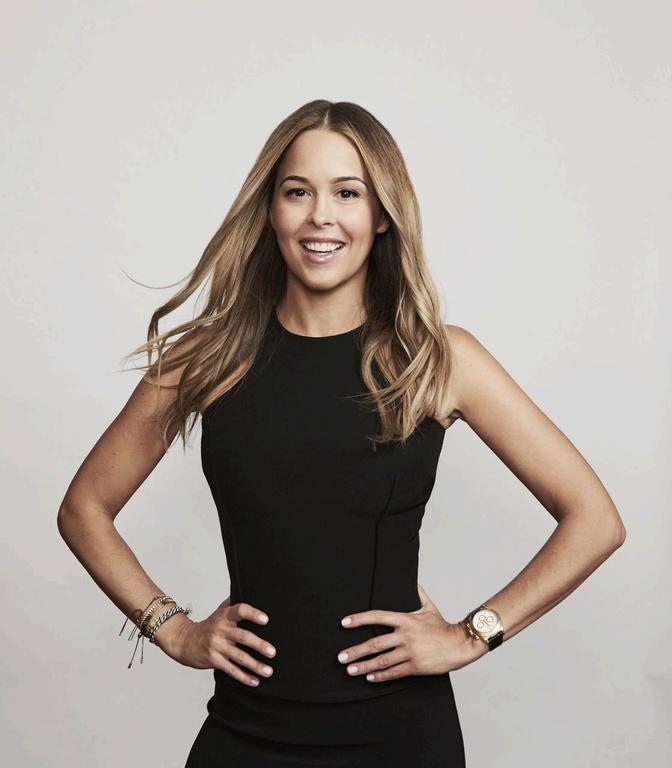
“THEGREATESTTHING MONEYAFFORDSISTHE FREEDOMTOTHENPURSUE YOURPASSIONS.”

The Outlier Project Guest - May 6, 2025
Award-winning Strategist, Keynote Speaker, Teacher, and Bestselling Author of The Life Brief: A Playbook for No-Regrets
-PALAKPATEL
Living, AdAge CSO of the Year, “100 Women to KNOW in America” honoree, Yale ELI Advisory Board, Eames Institute Curious 100

"FEAREXISTSEVERYWHERE. IT'SNOTTHELACKOFFEAR THATBUILDSFORTITUDE. DESPITETHEFEARYOU CONTINUETOGOFORWARD."

The Outlier Project Guest - April 15, 2025
Award-winning entrepreneur, USA Today bestselling author, Produced & starred in “Side Hustlers,” with Reese Witherspoon’s Hello Sunshine
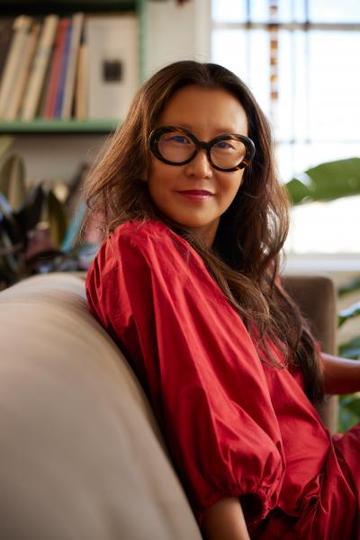
“CREATIVITYISALWAYS ATEAMSPORT.”


The Outlier Project Guest - May 20, 2025
“YOURHABITSFORMTHE PERSONWHOYOUARE.”

The Outlier Project Guest - June 3, 2025
Philanthropist, Founder and President of the Defend the Dream Foundation & Derrick Johnson Foundation, Kansas City Chiefs All Time Leading Tackler, Texas Sports Hall of Fame
-PALAKPATEL
Former Criminal Defense Attorney, Founder of Askinosie Chocolate a small batch, award winning chocolate factory, Named by Forbes "One of the 25 Best Small Companies in America”, Cofounder of Lost & Found, a grief center serving children and families, Author

“SOCIAL ENTREPRENEURSHIP,AS WEKNOWIT,ISDEAD; LONGLIVEDOINGTHE RIGHTTHING.”










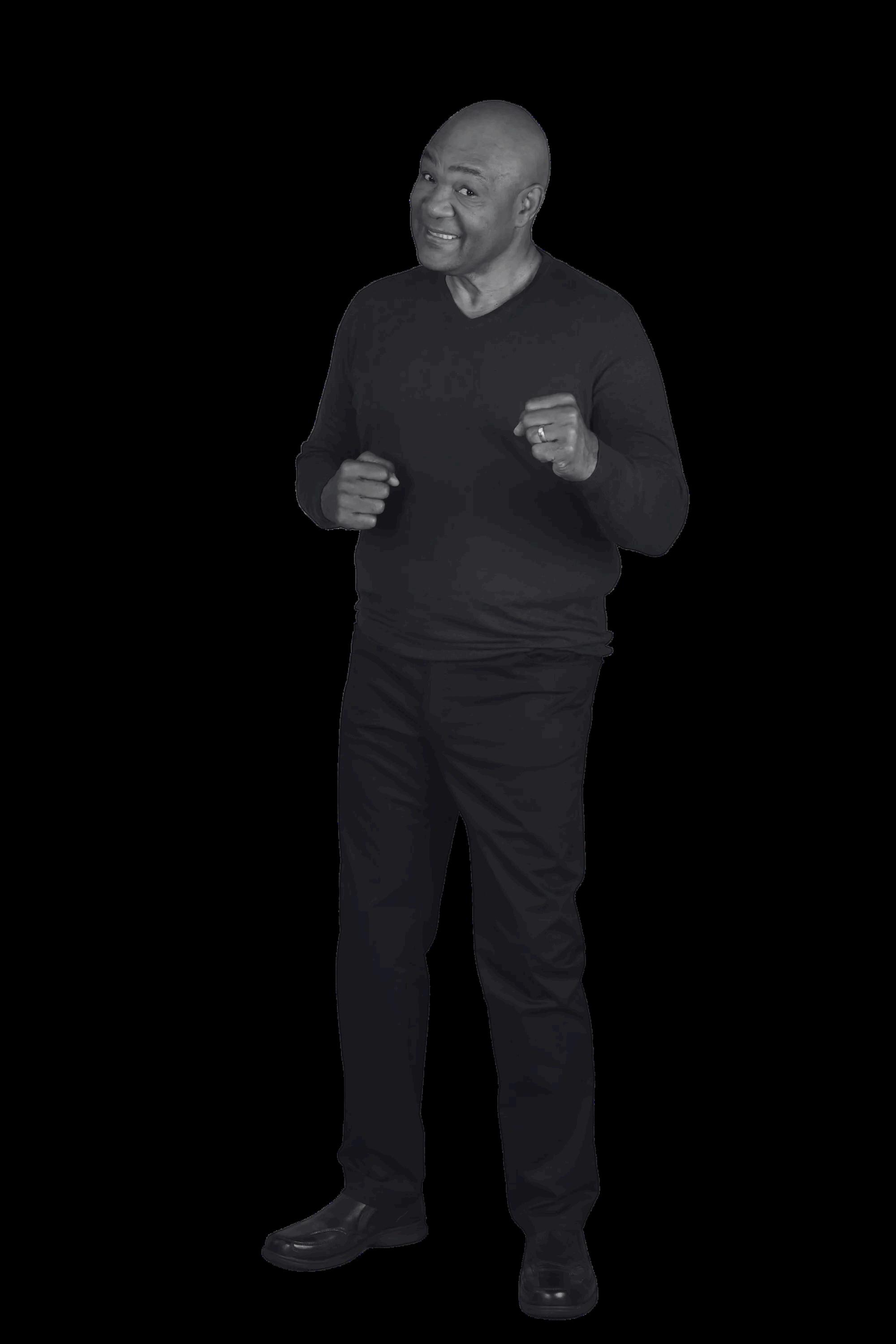


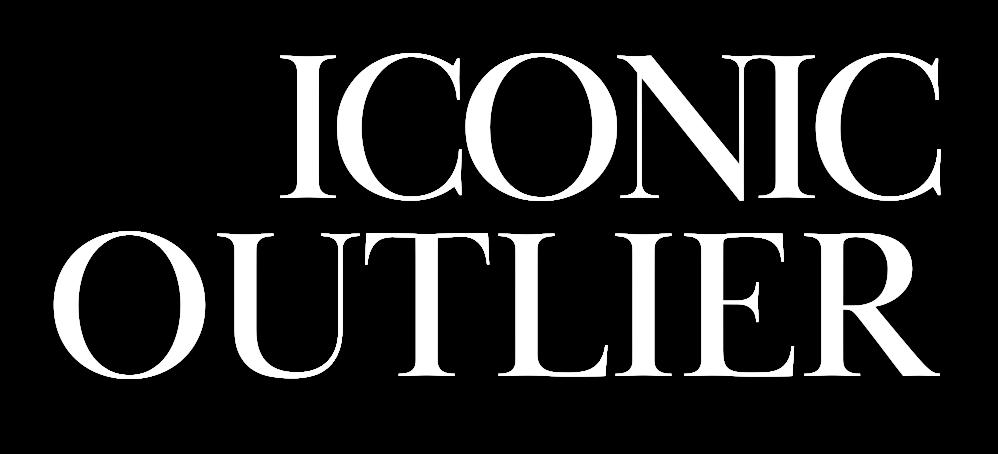
“I’M NOT AFRAID TO LOOK LIKE AN IDIOT.”
ANTHONY BOURDAIN


